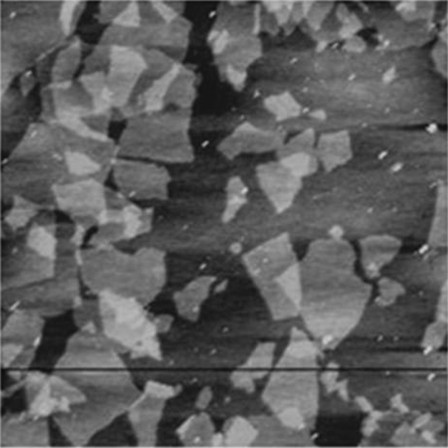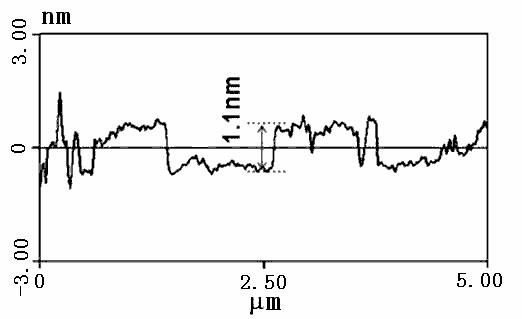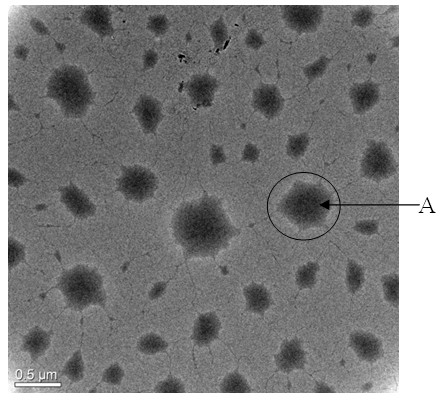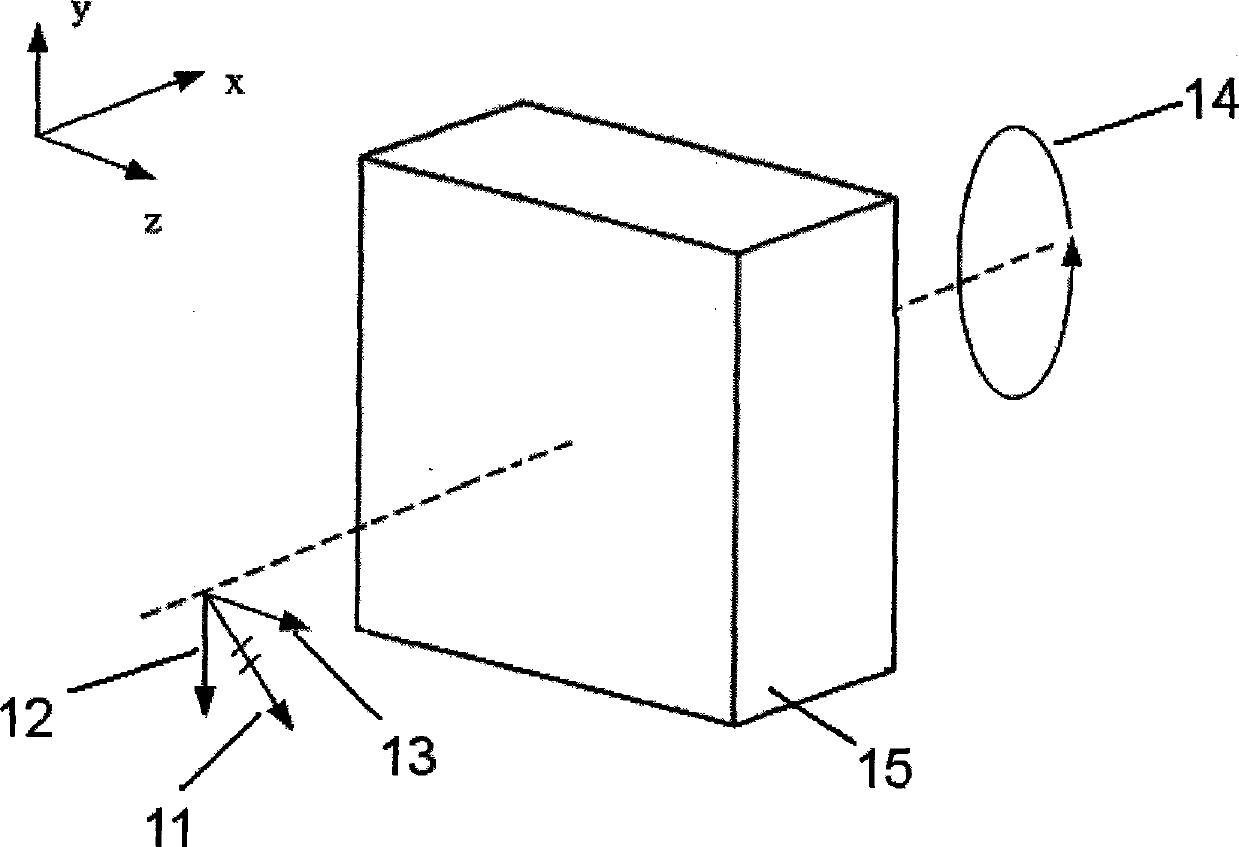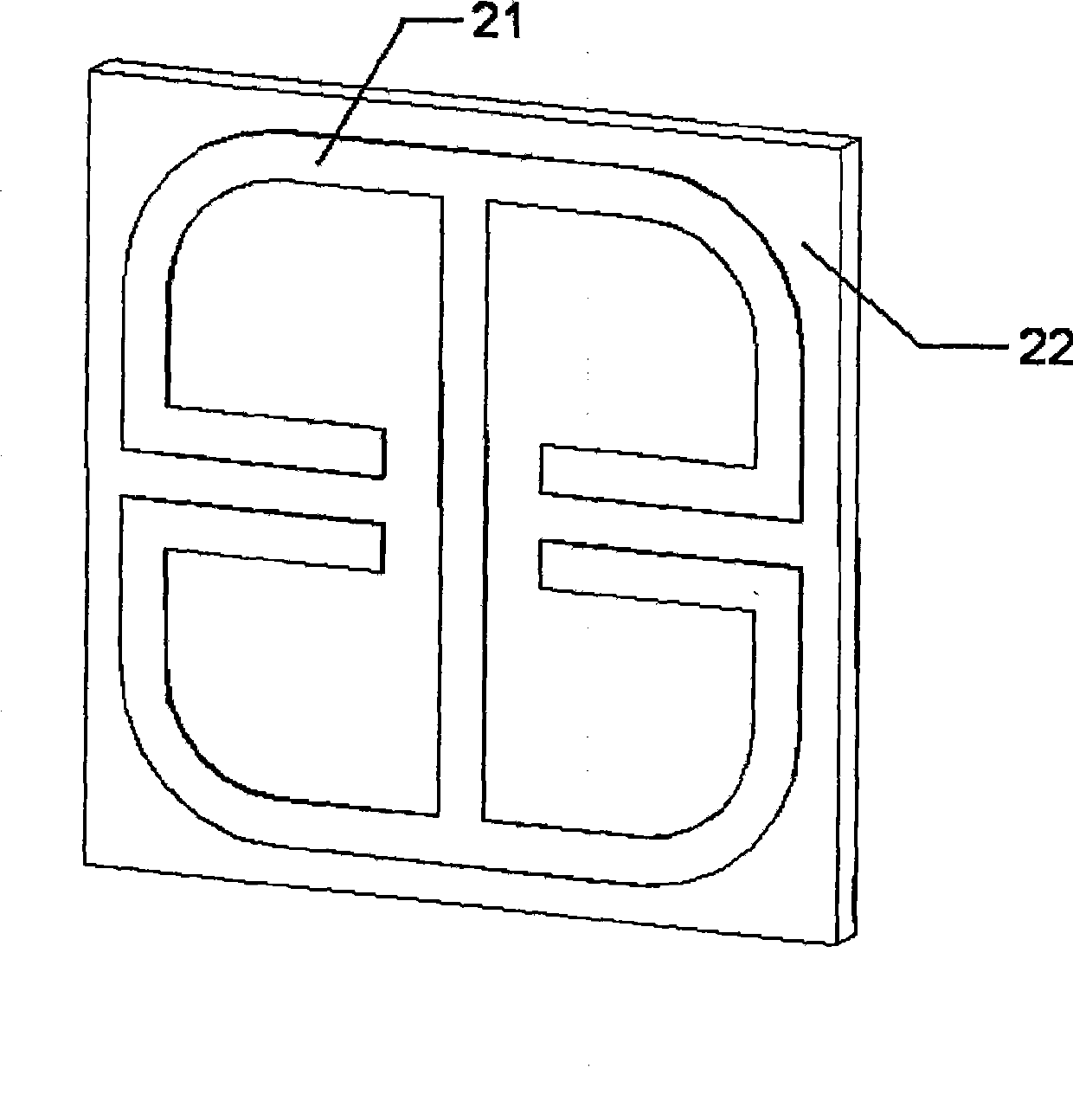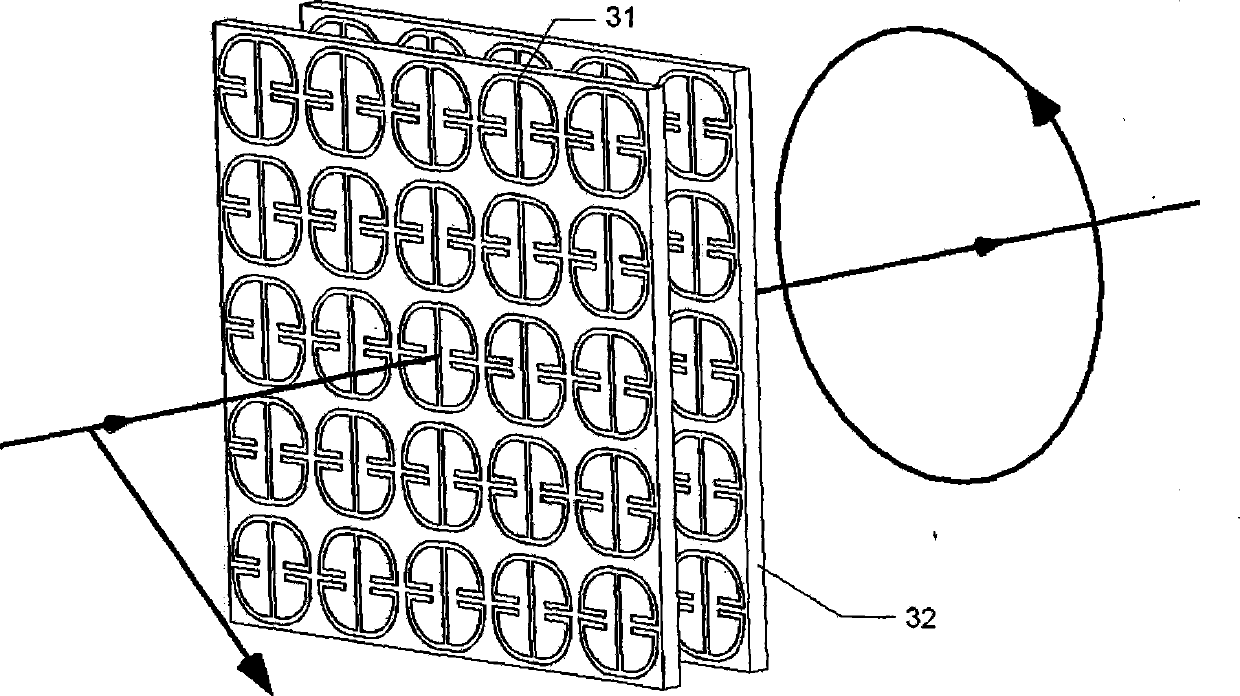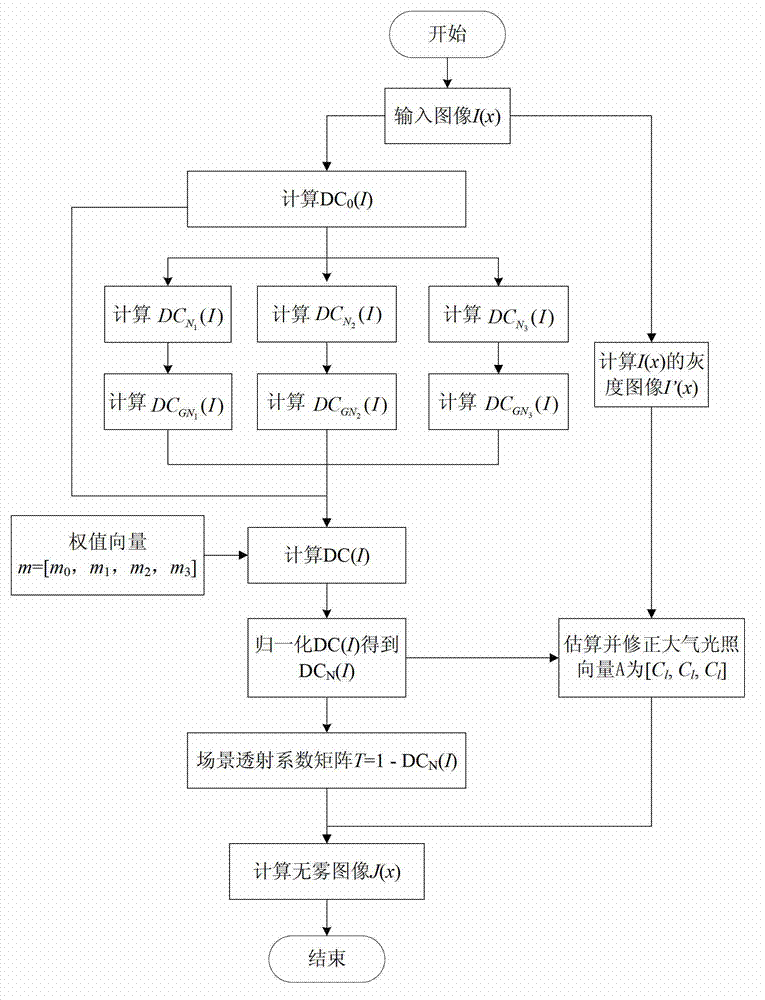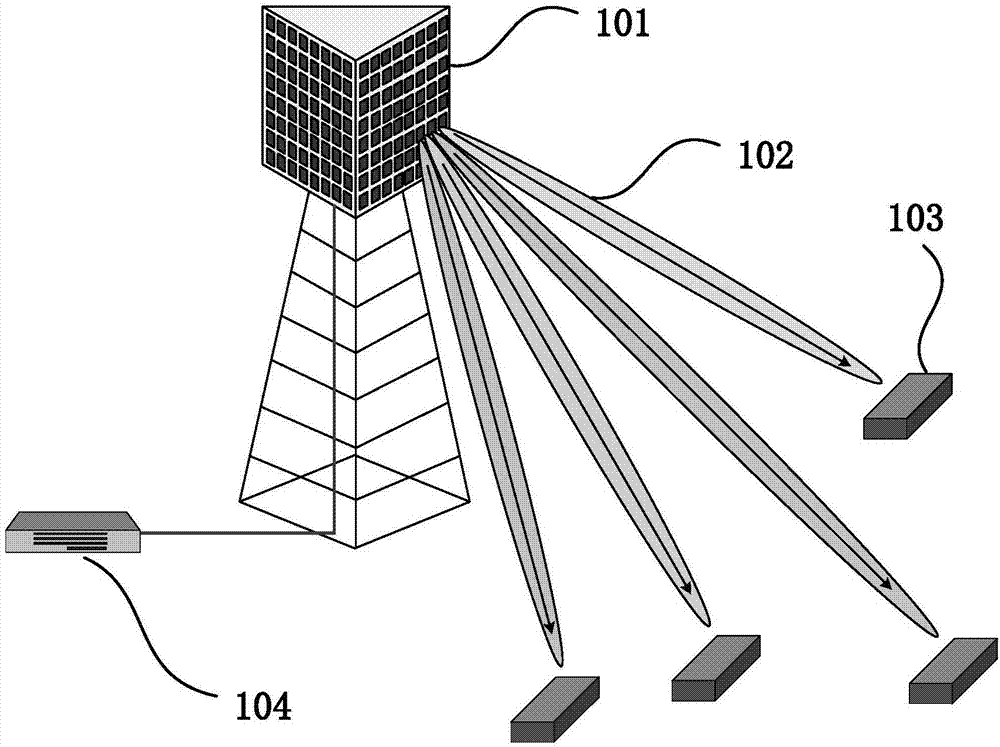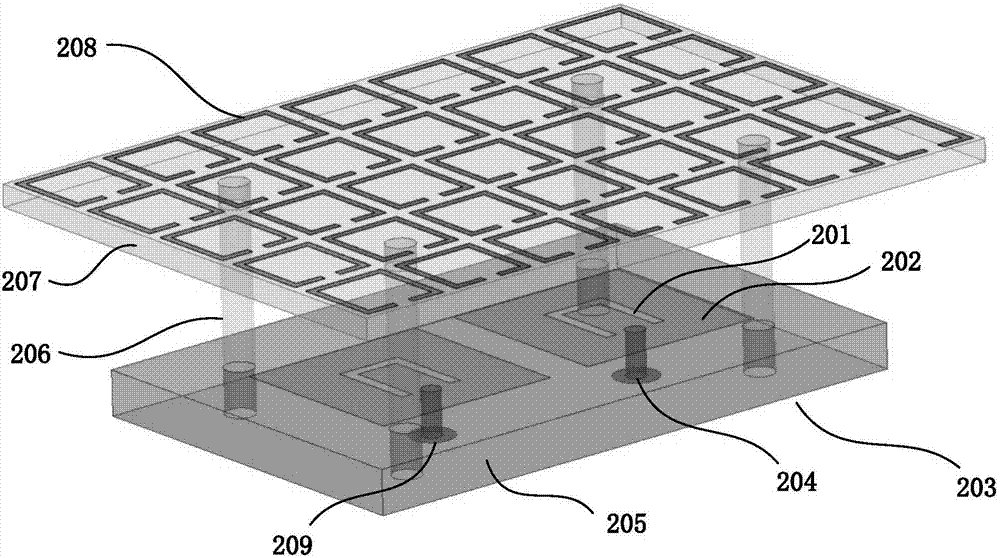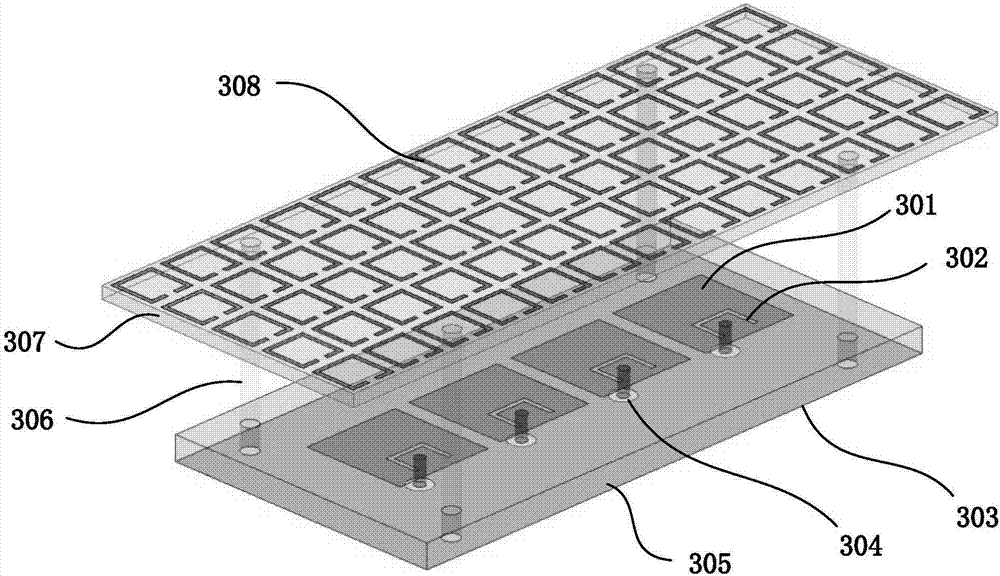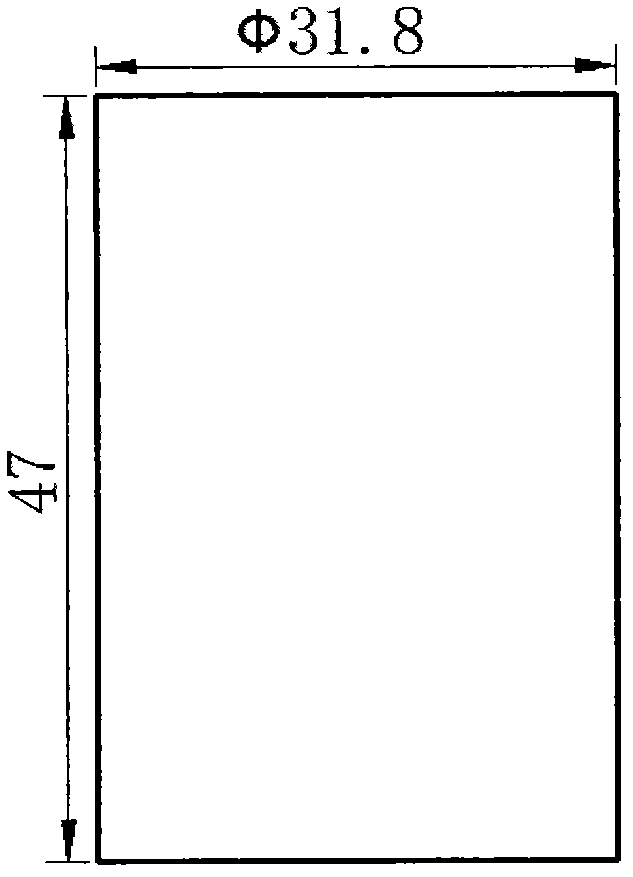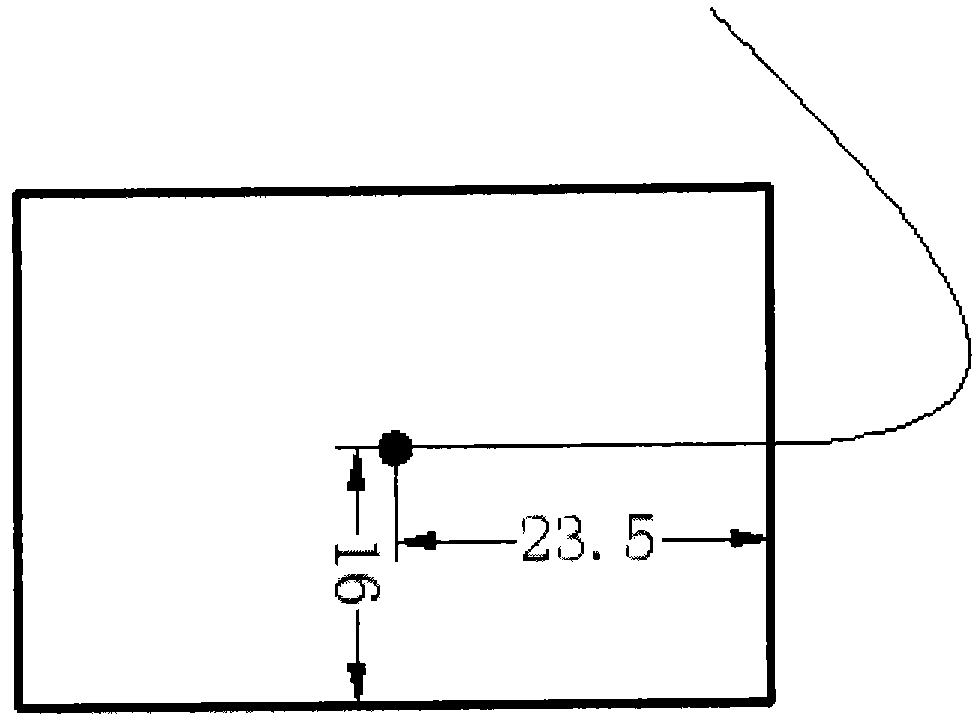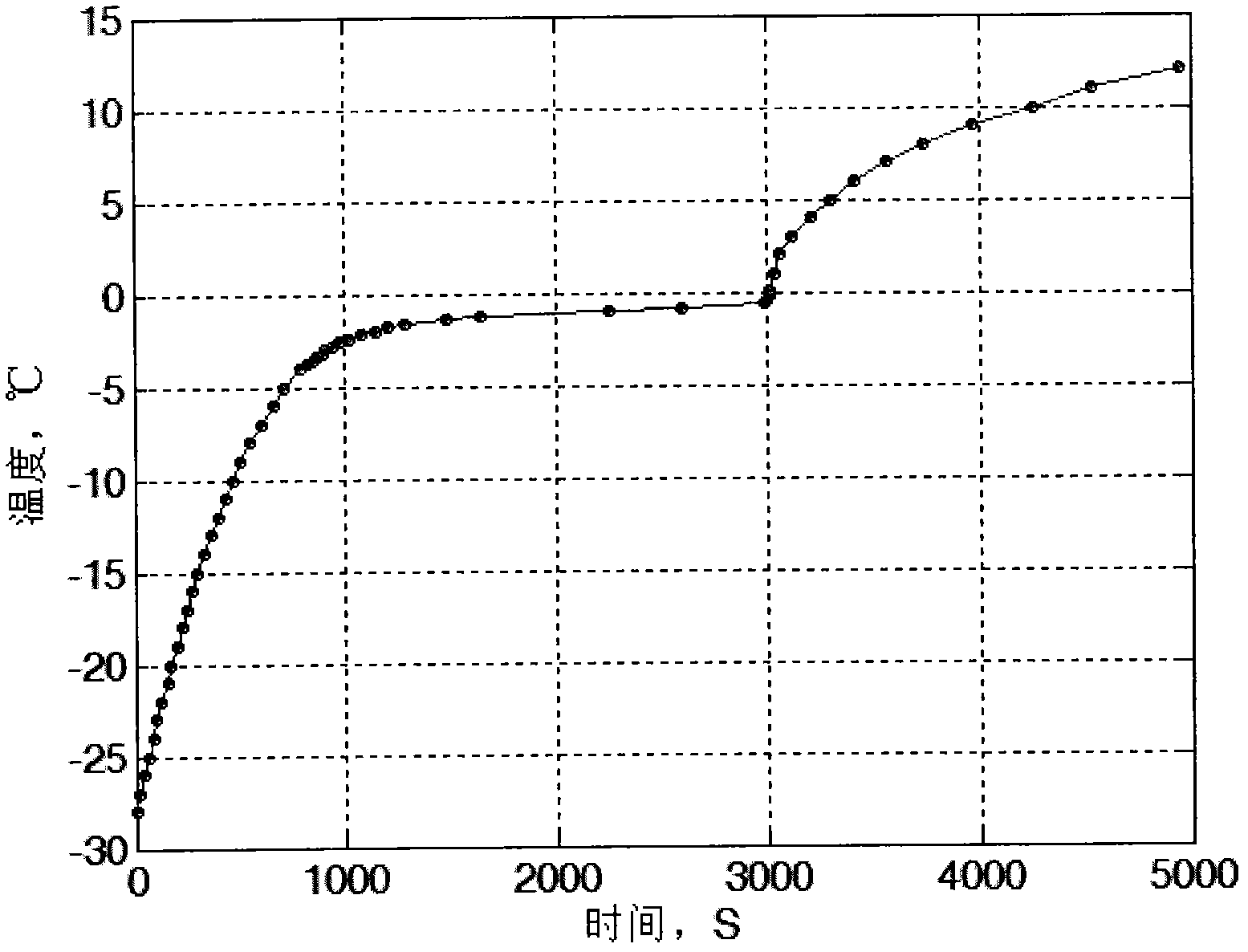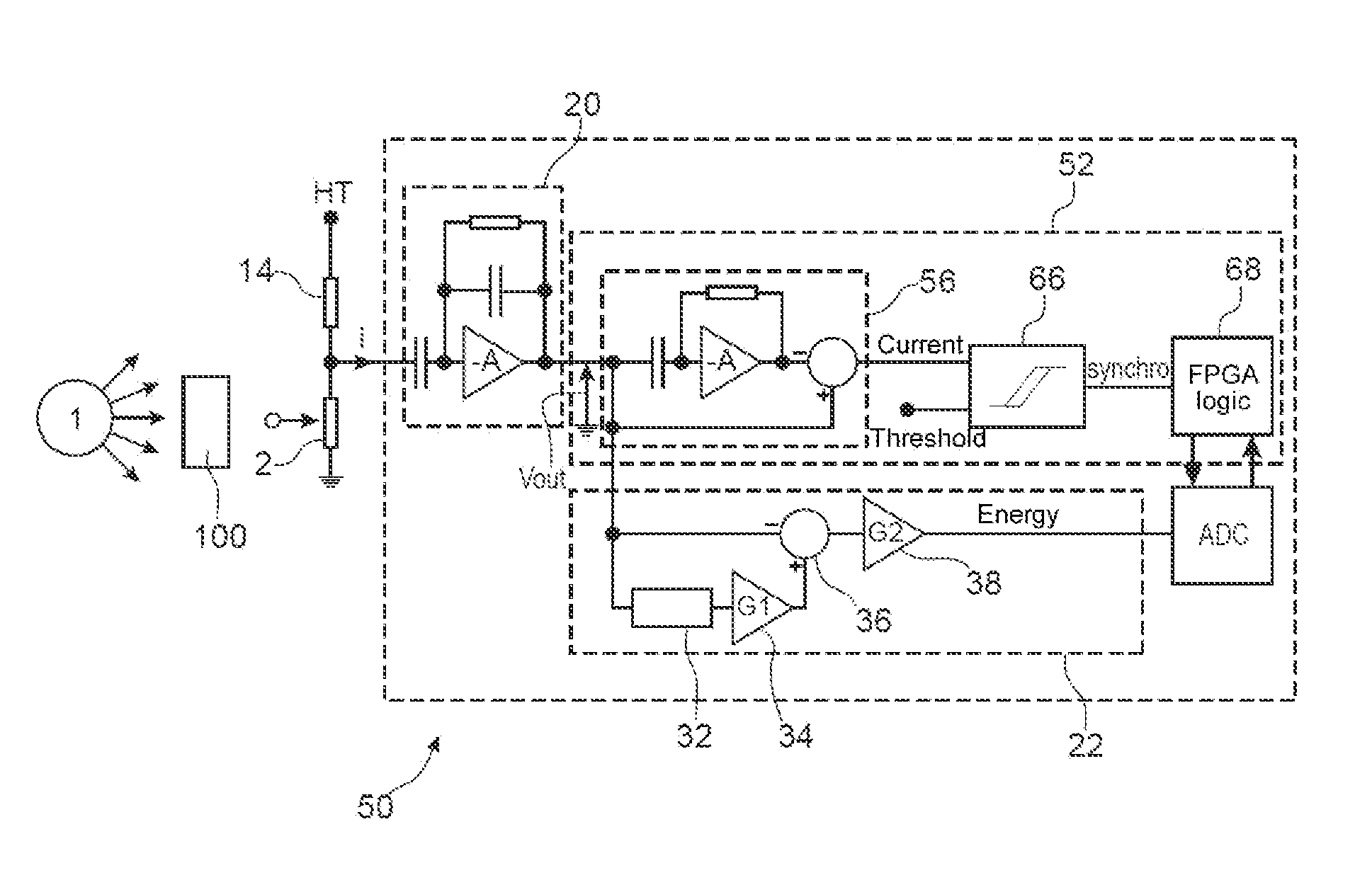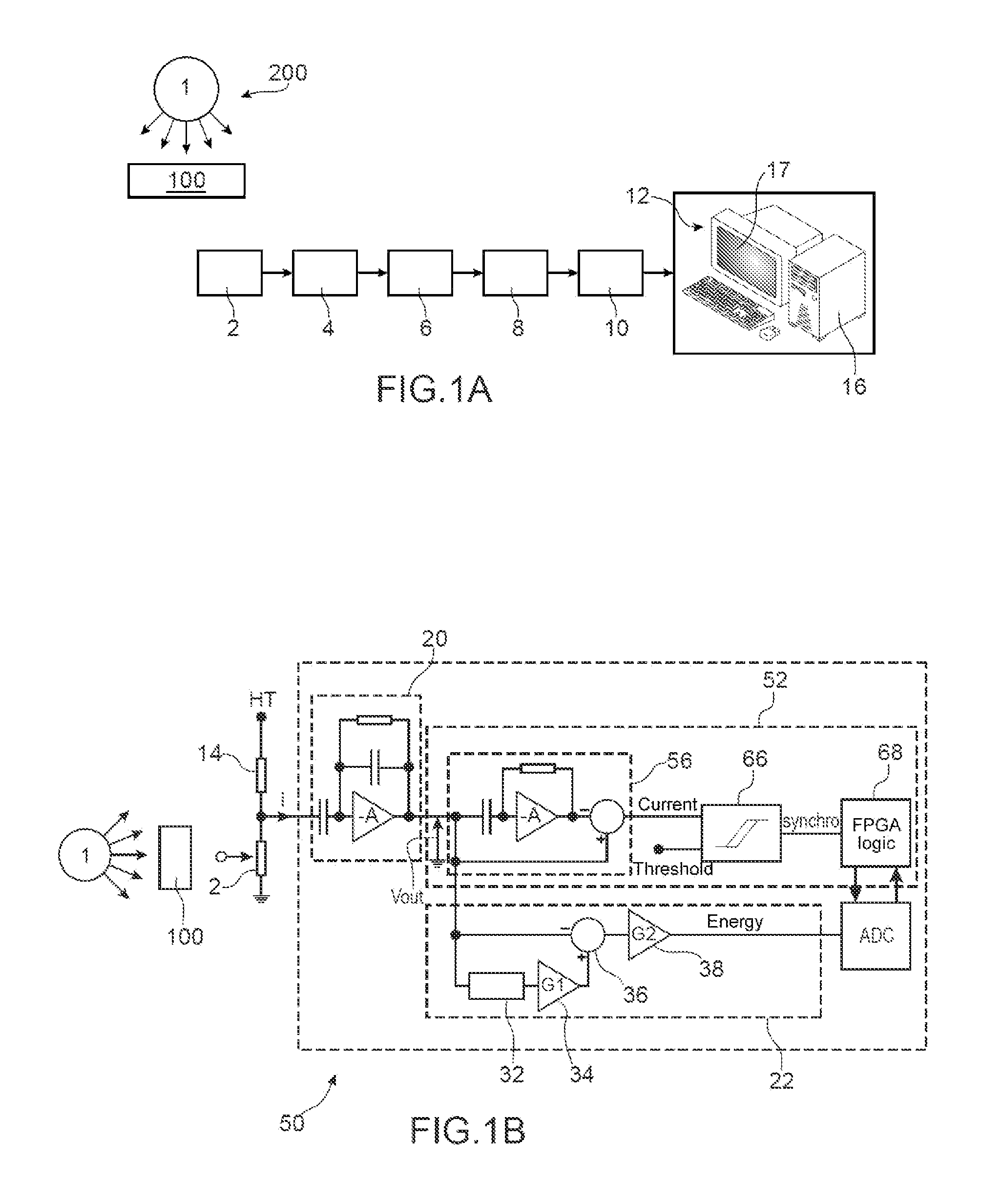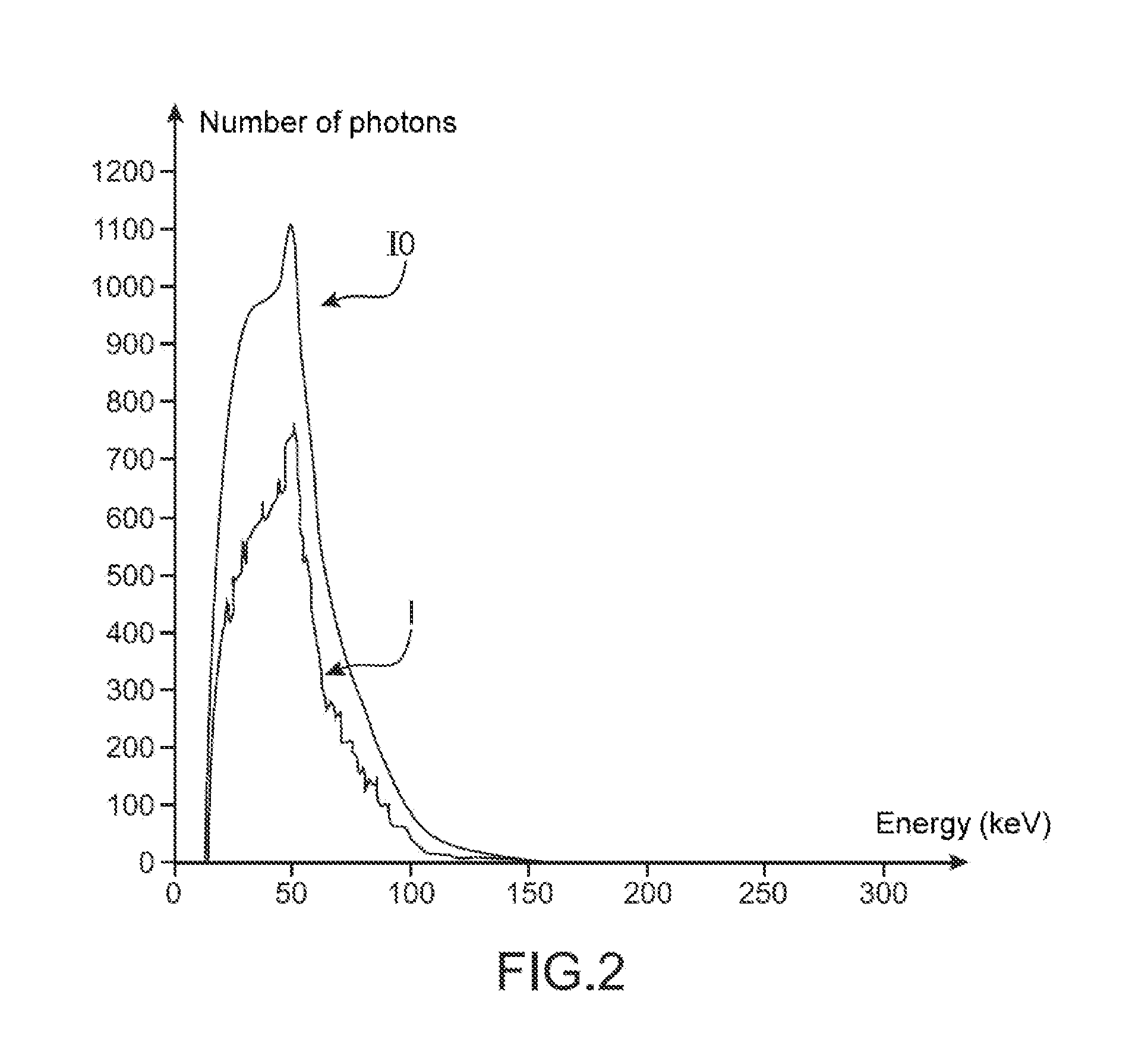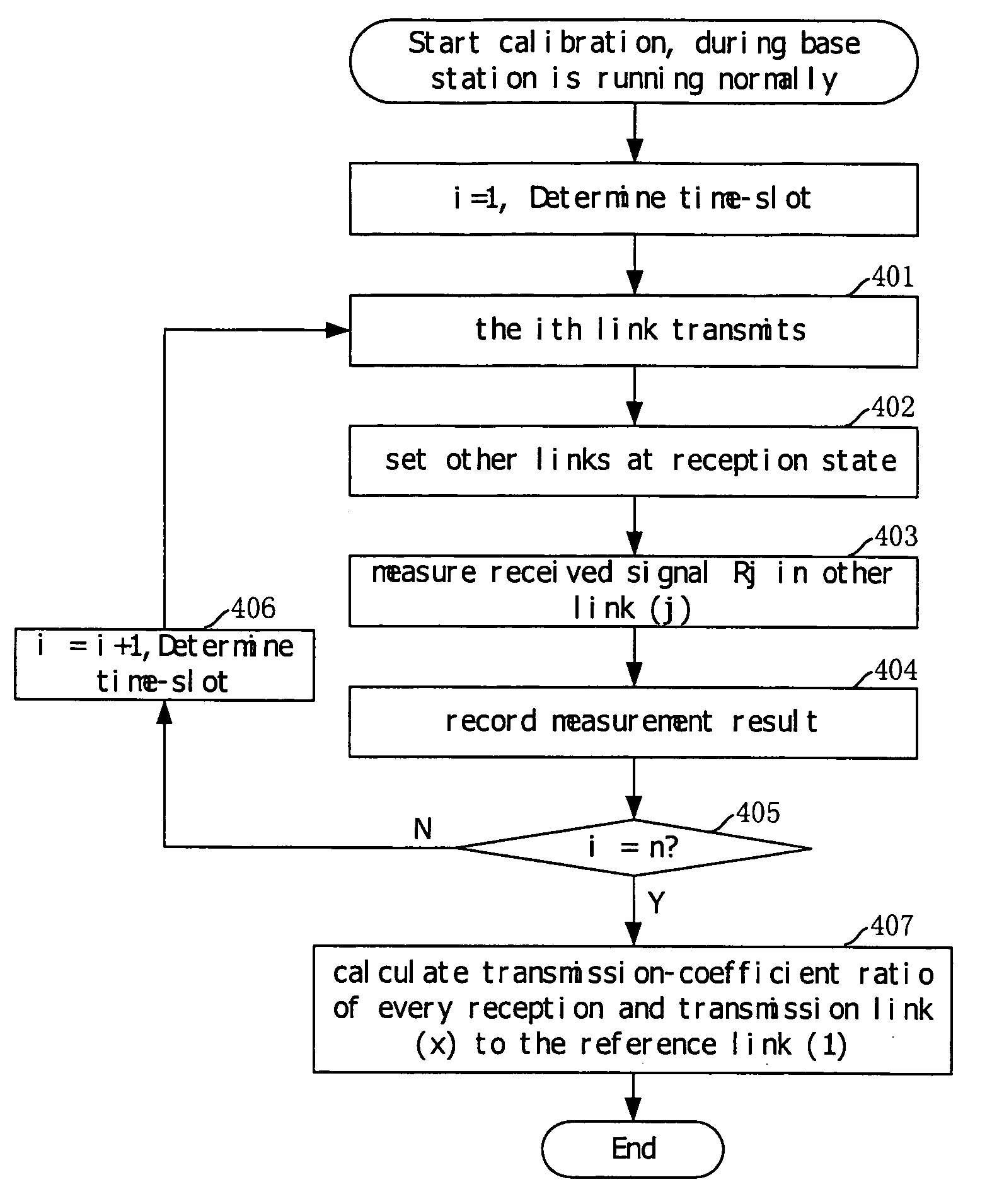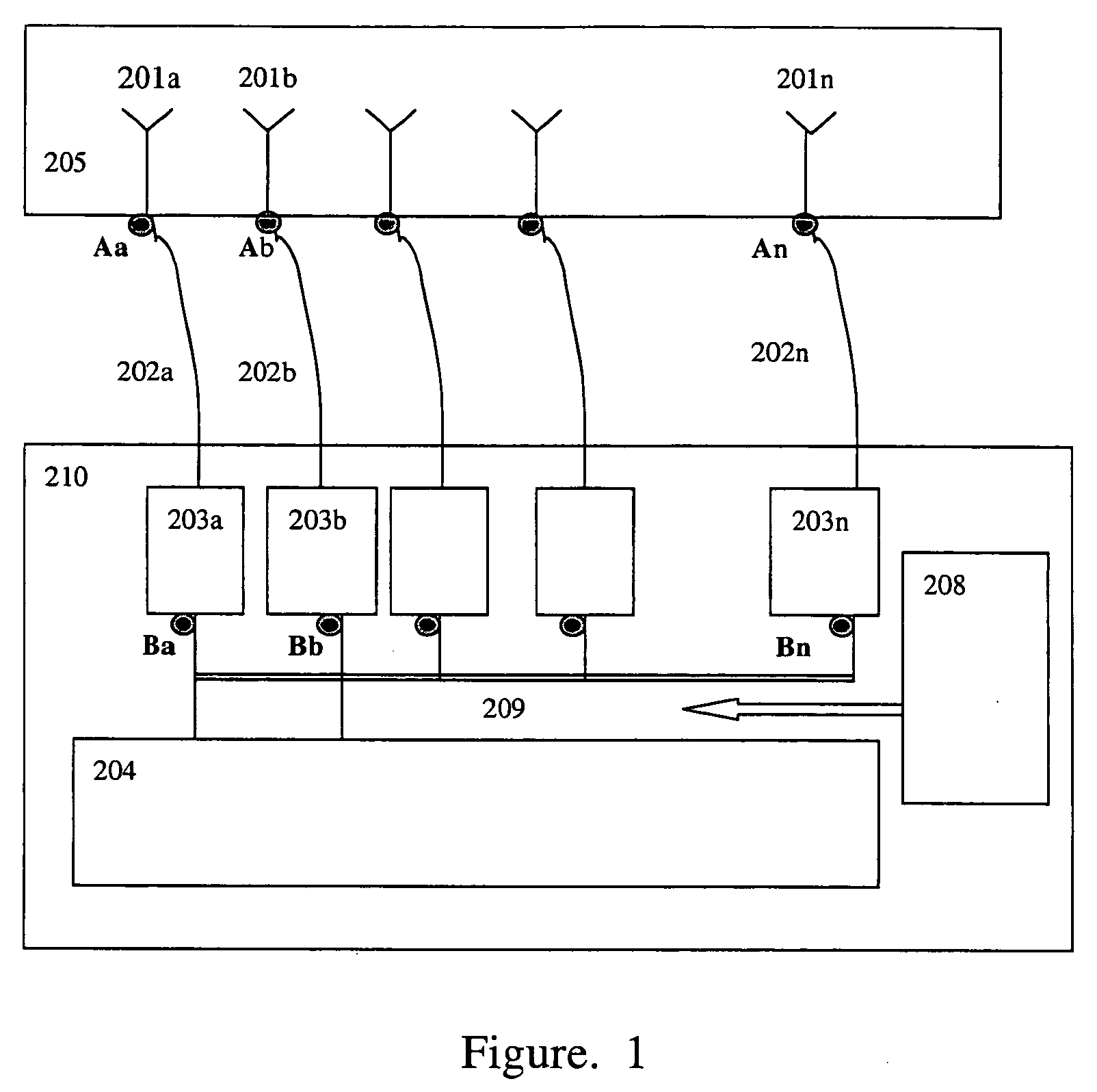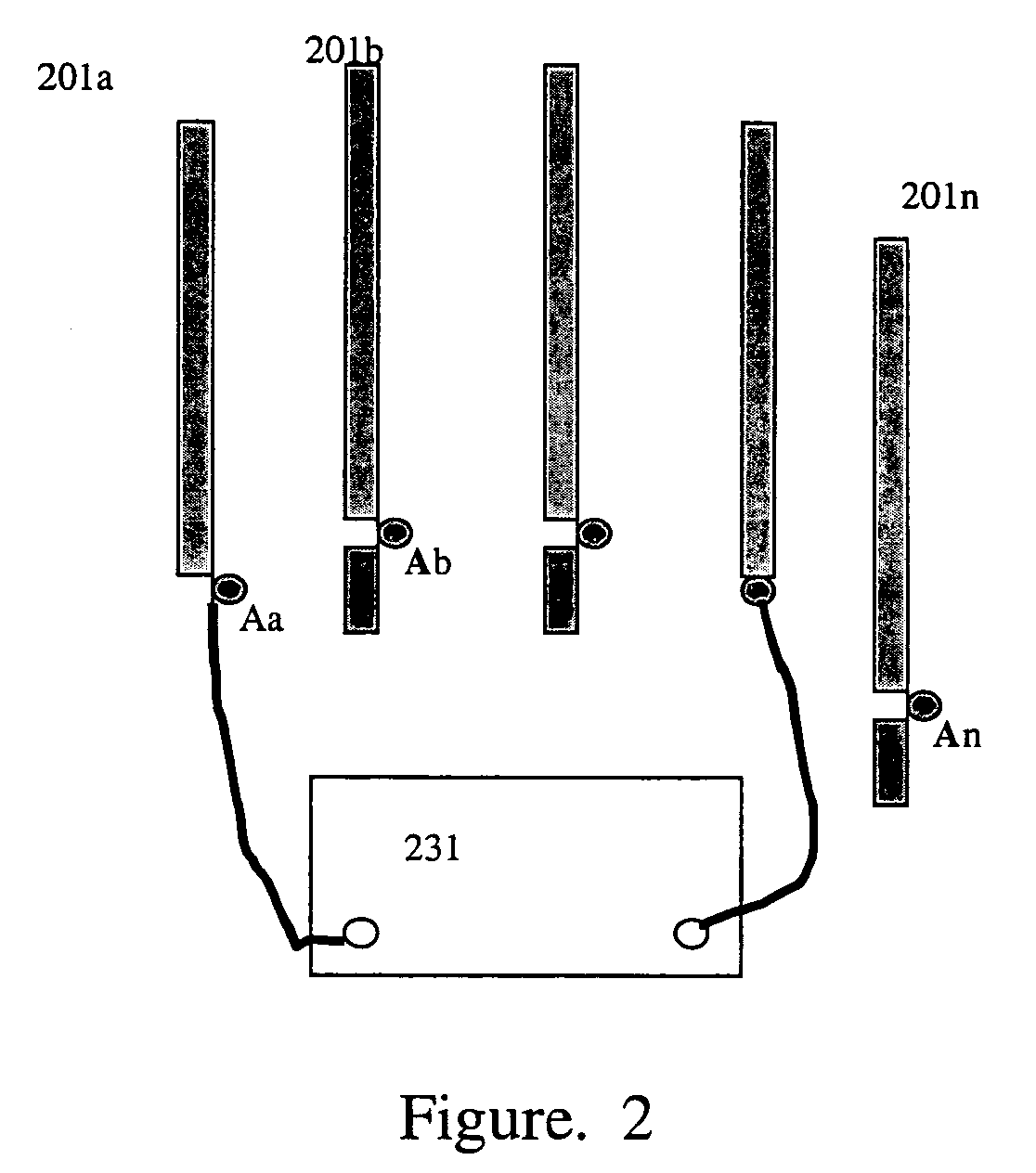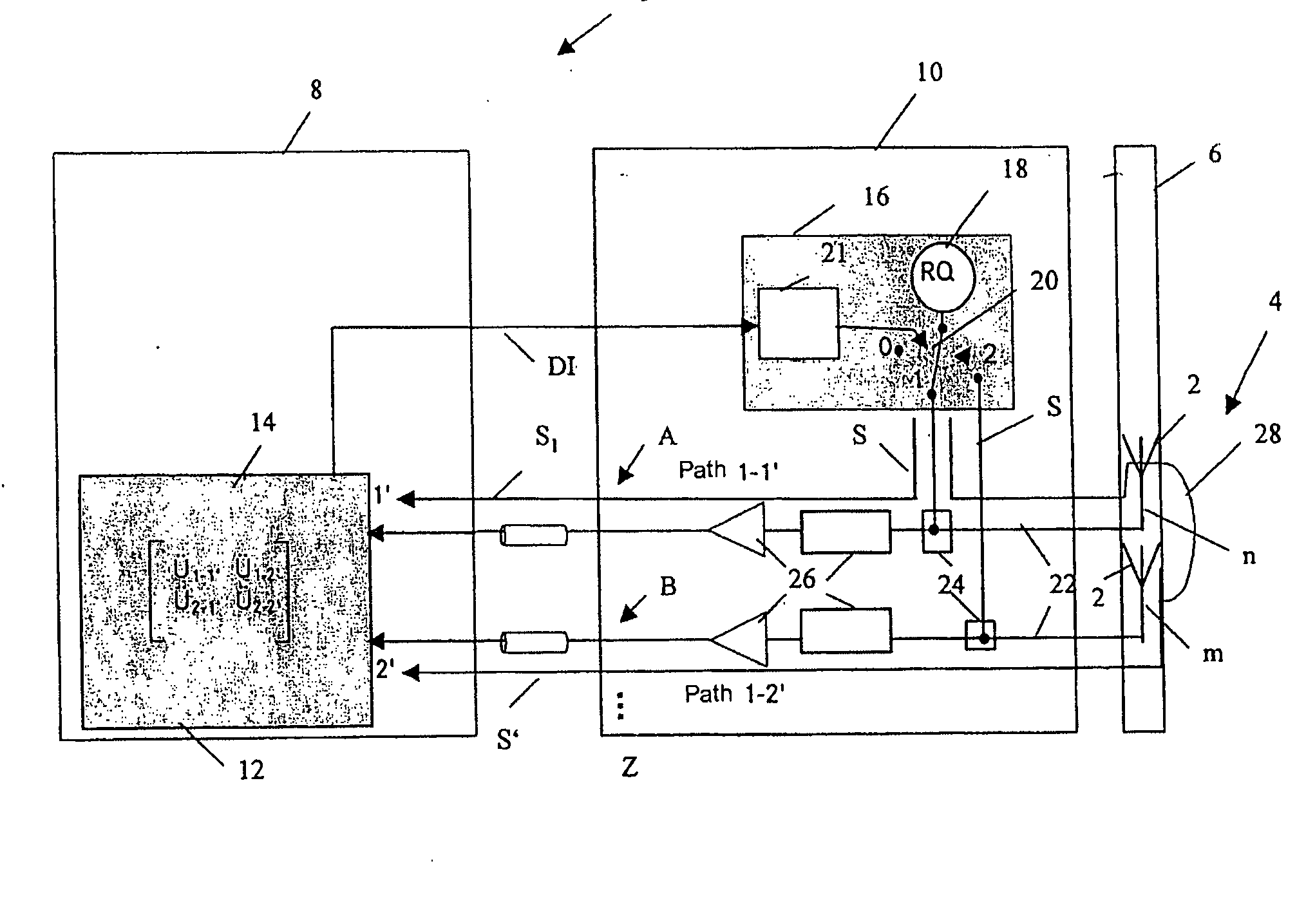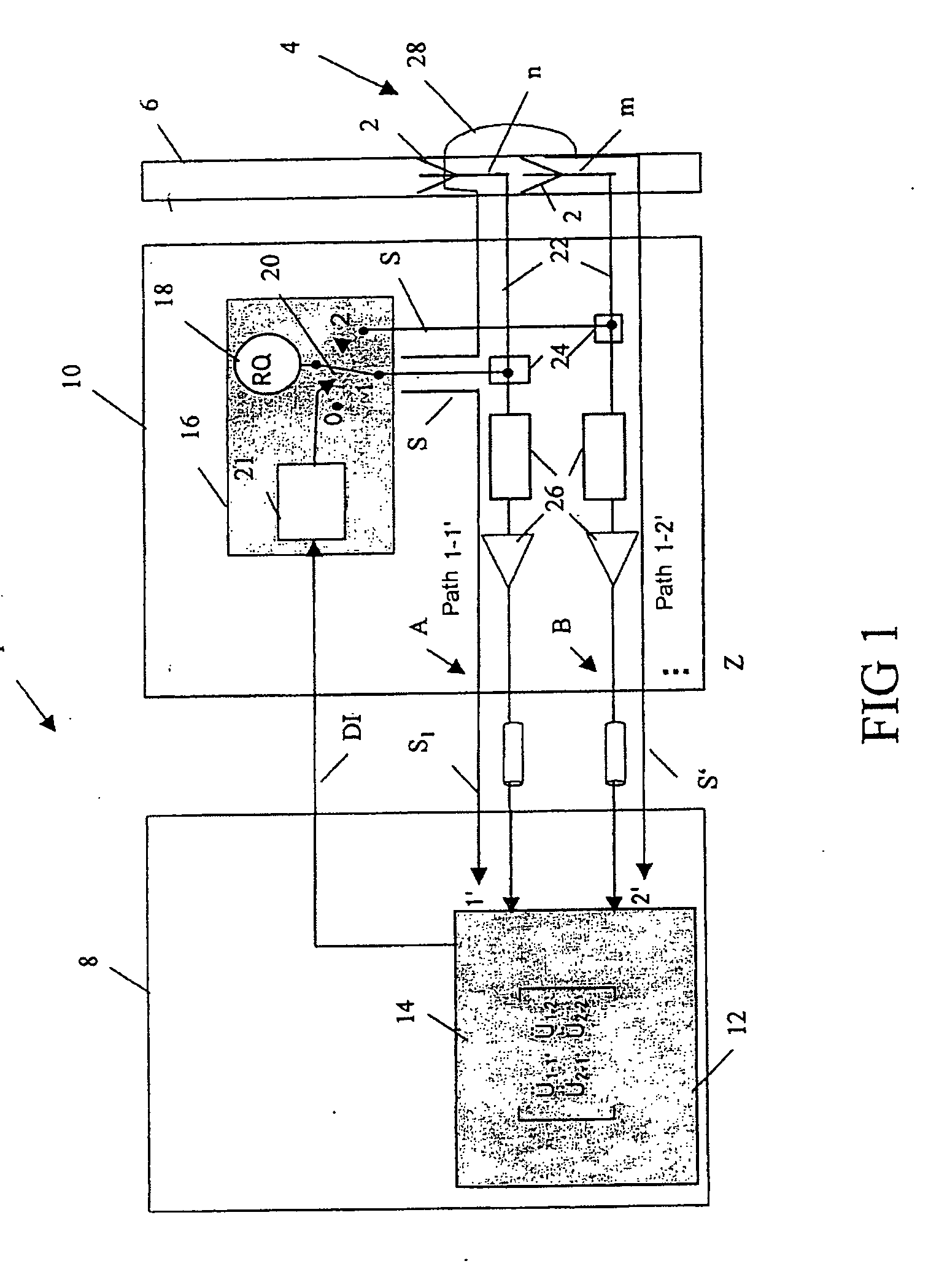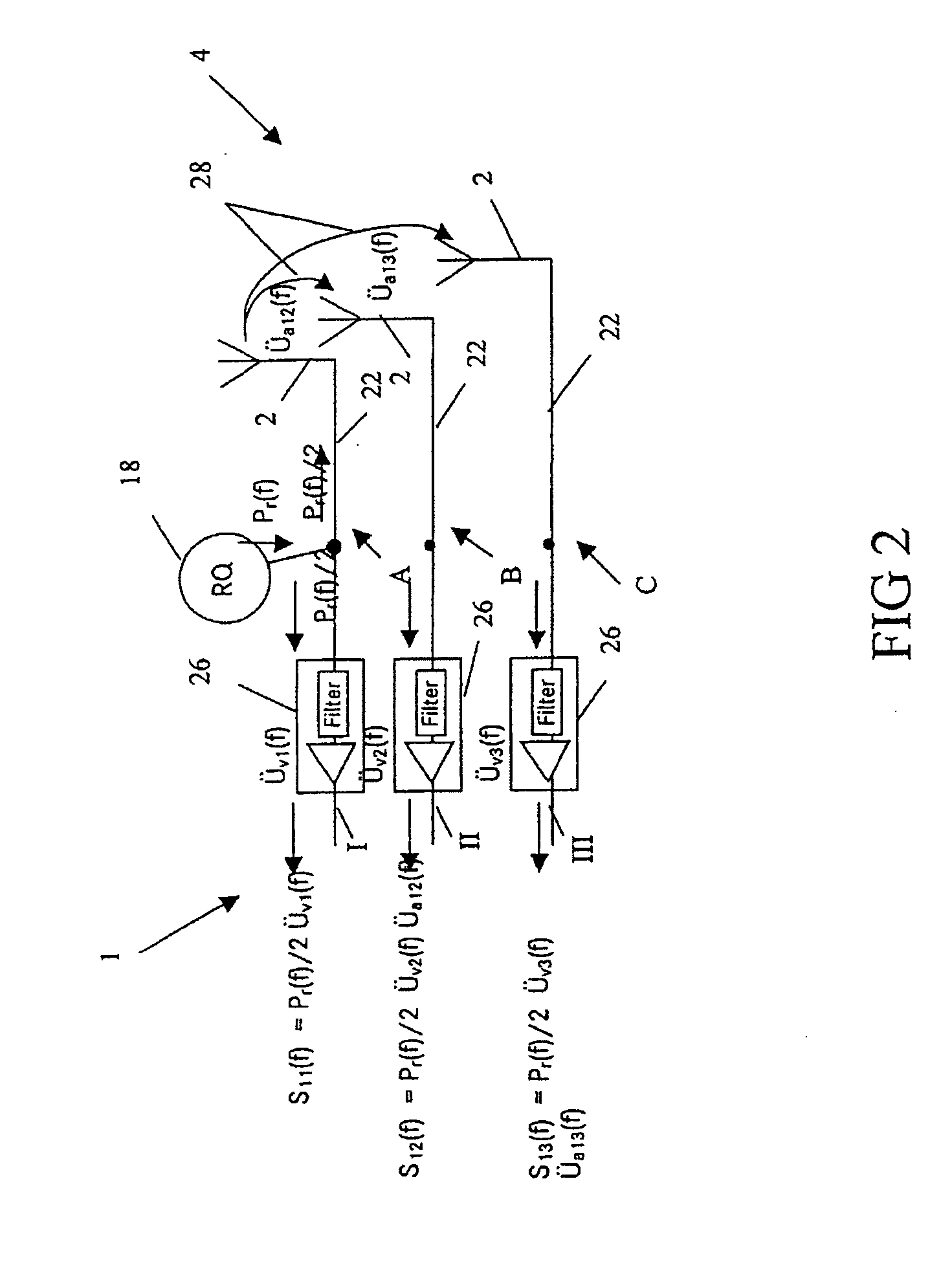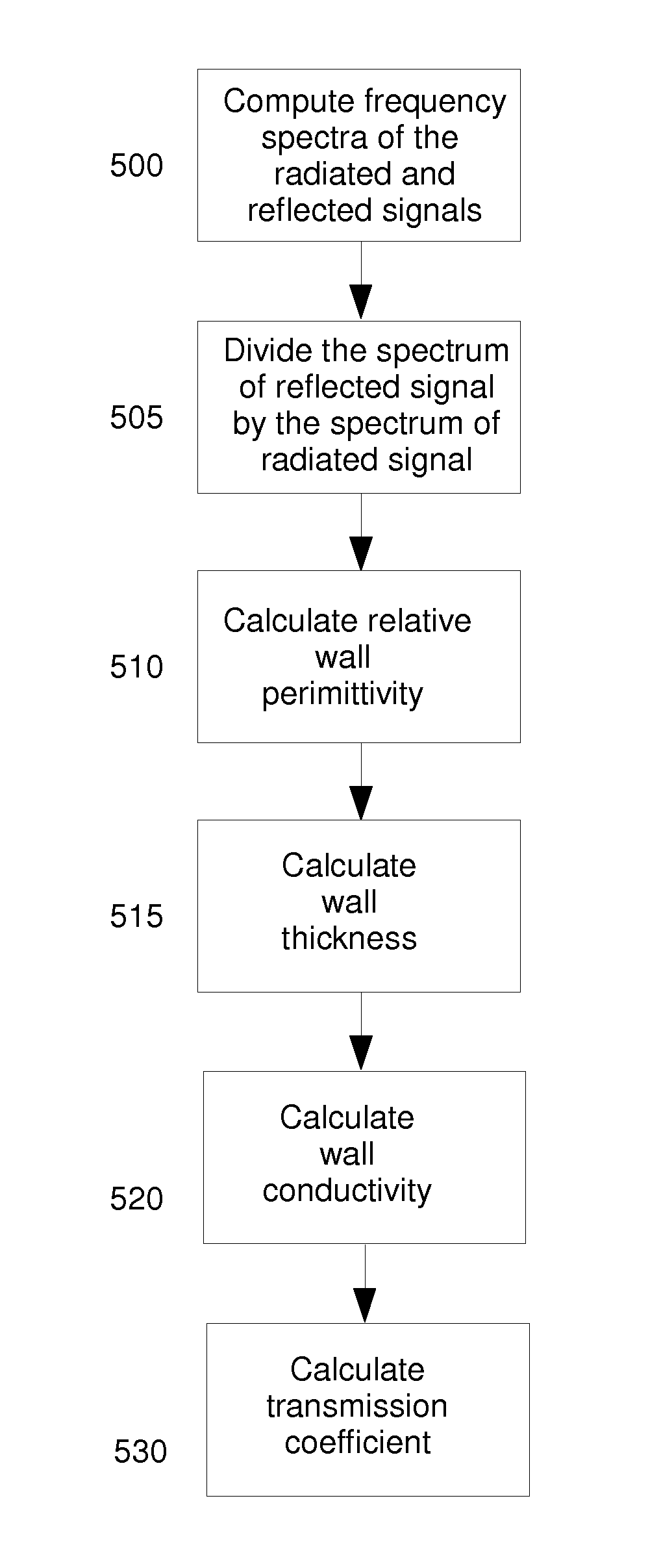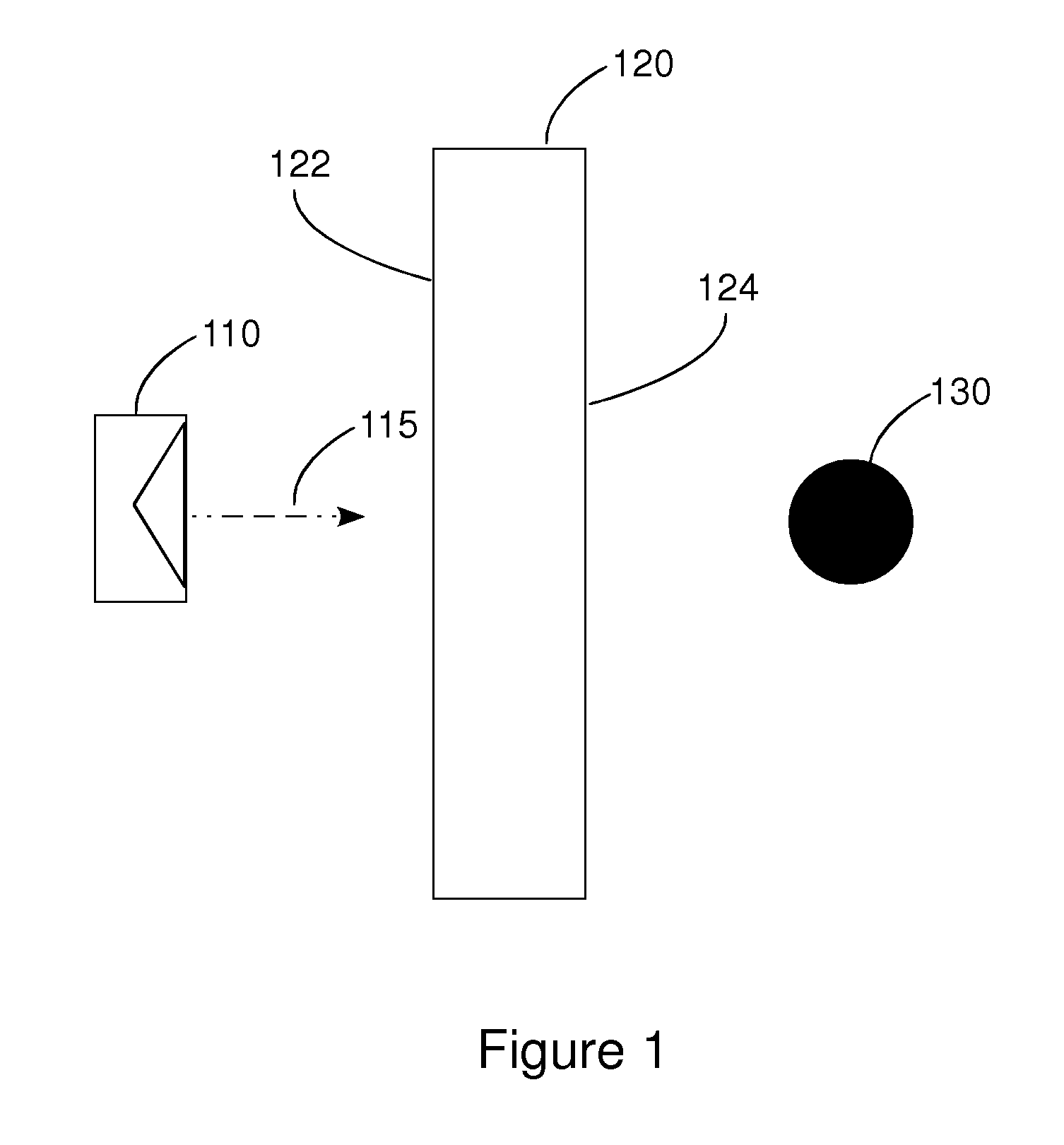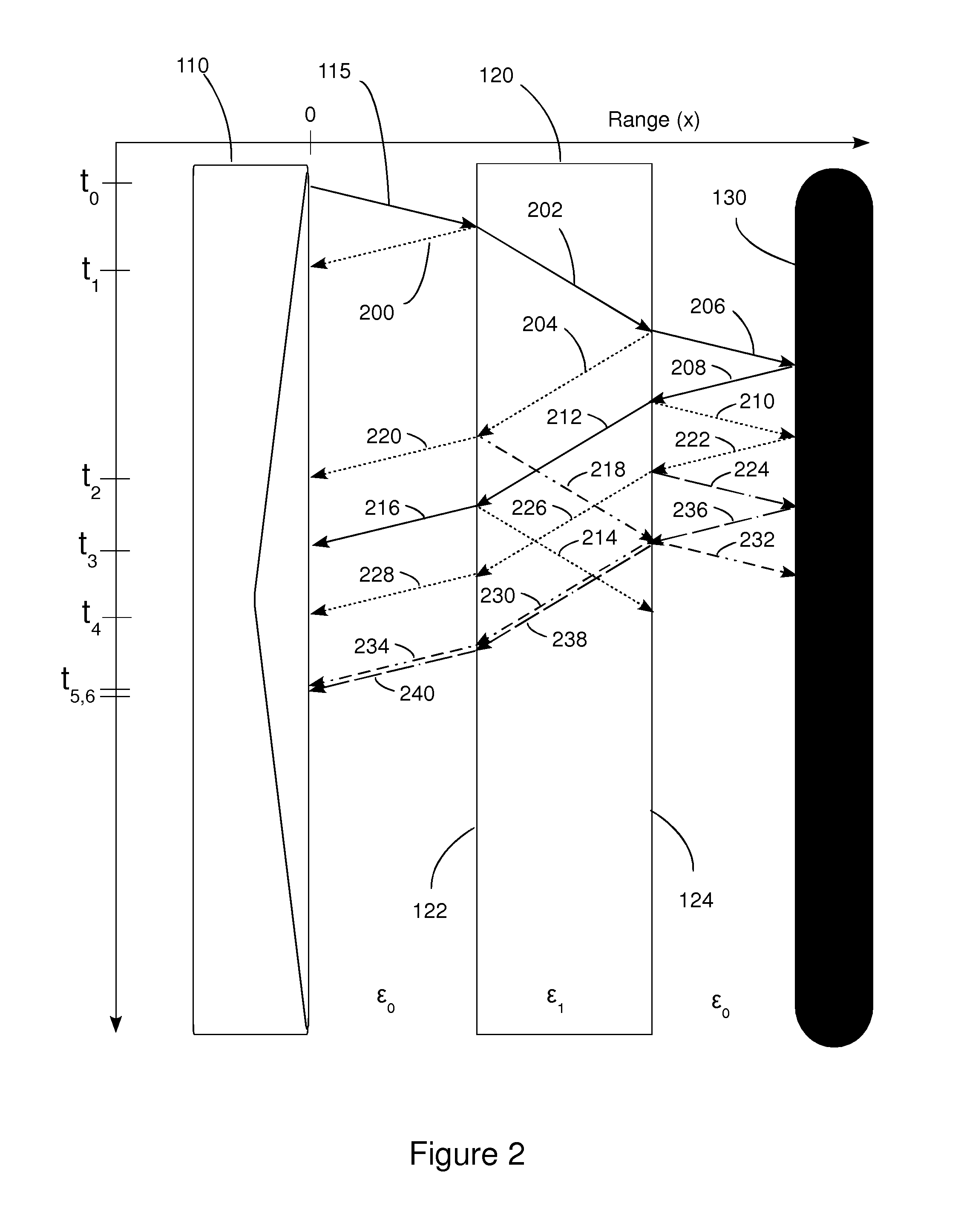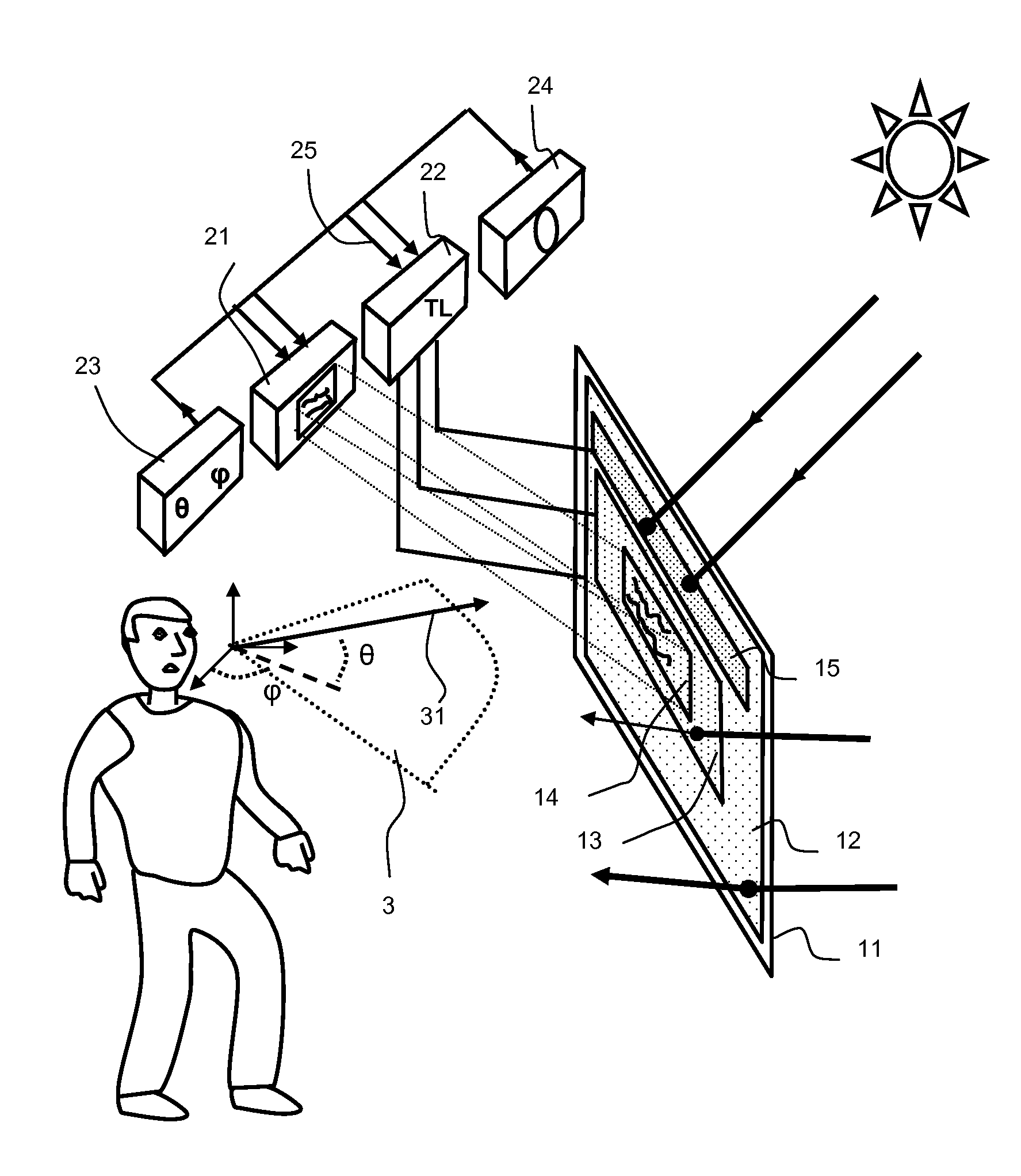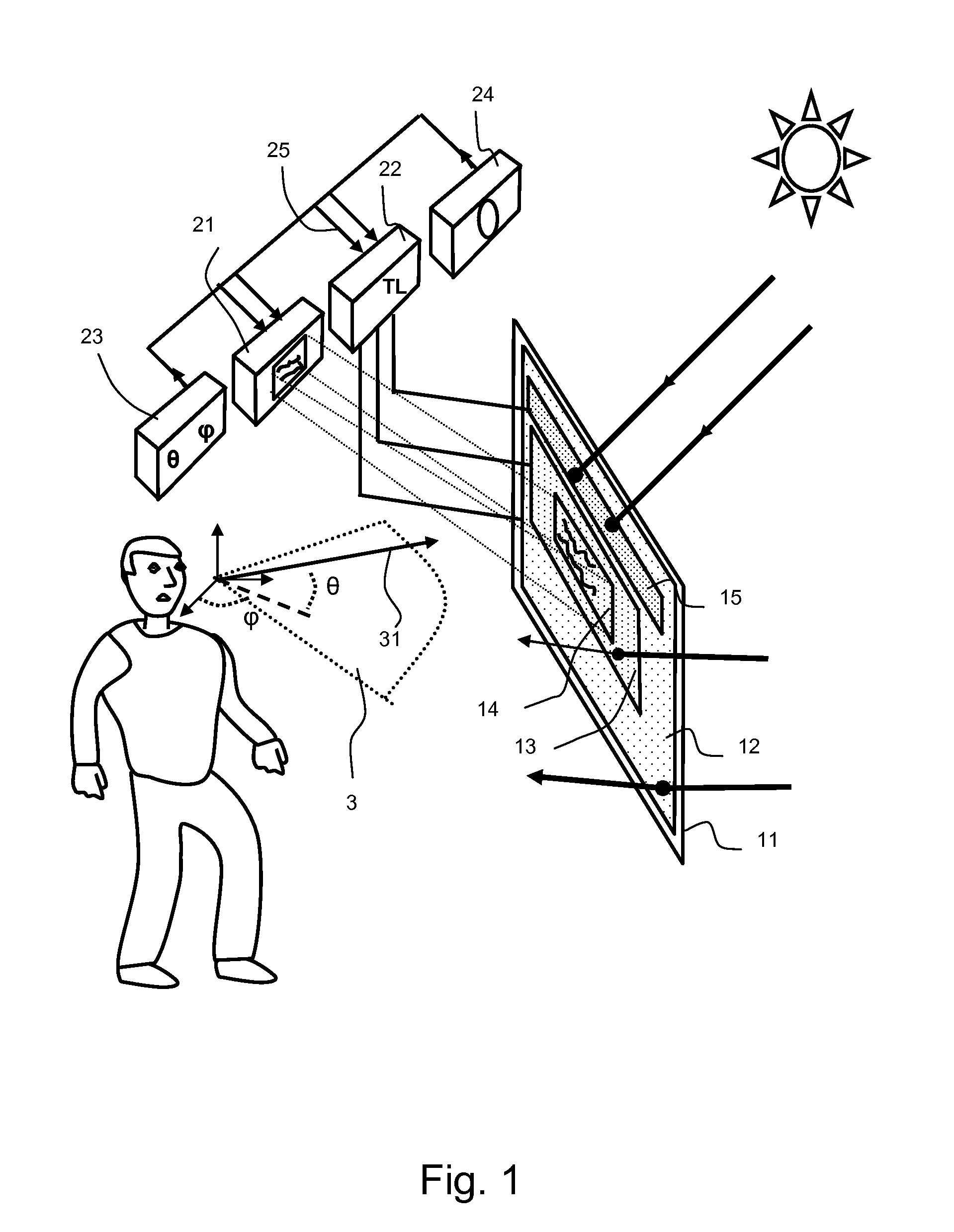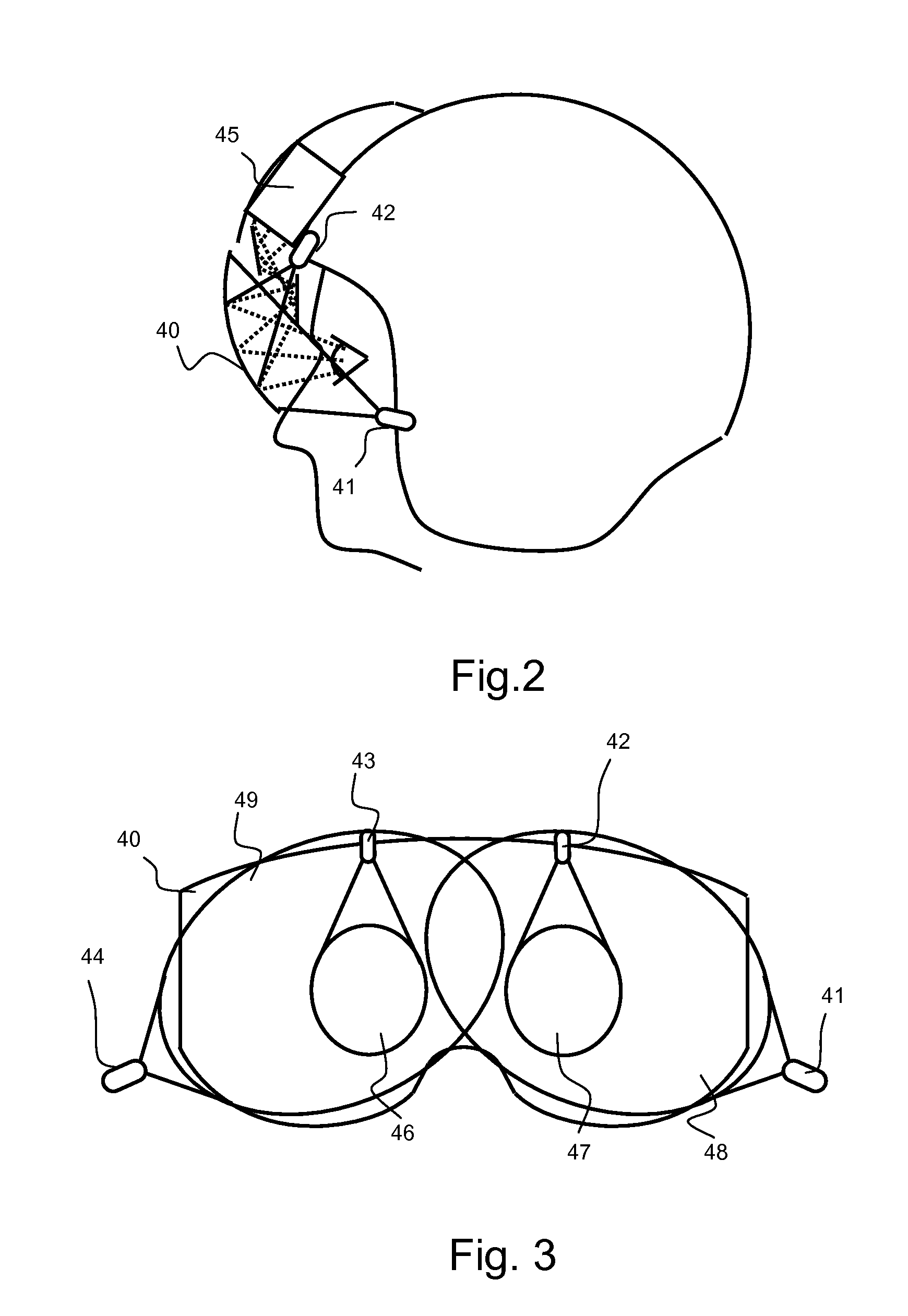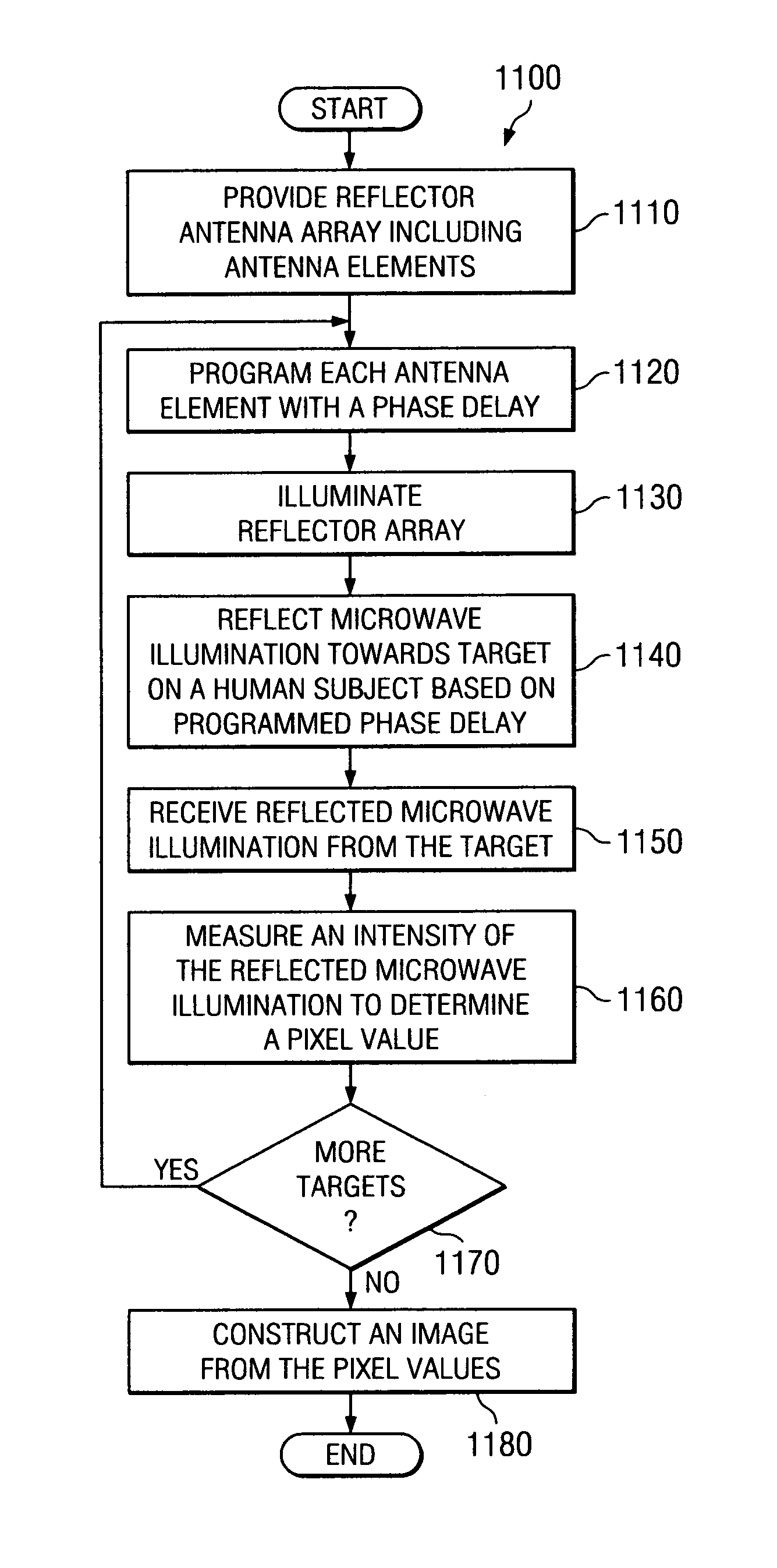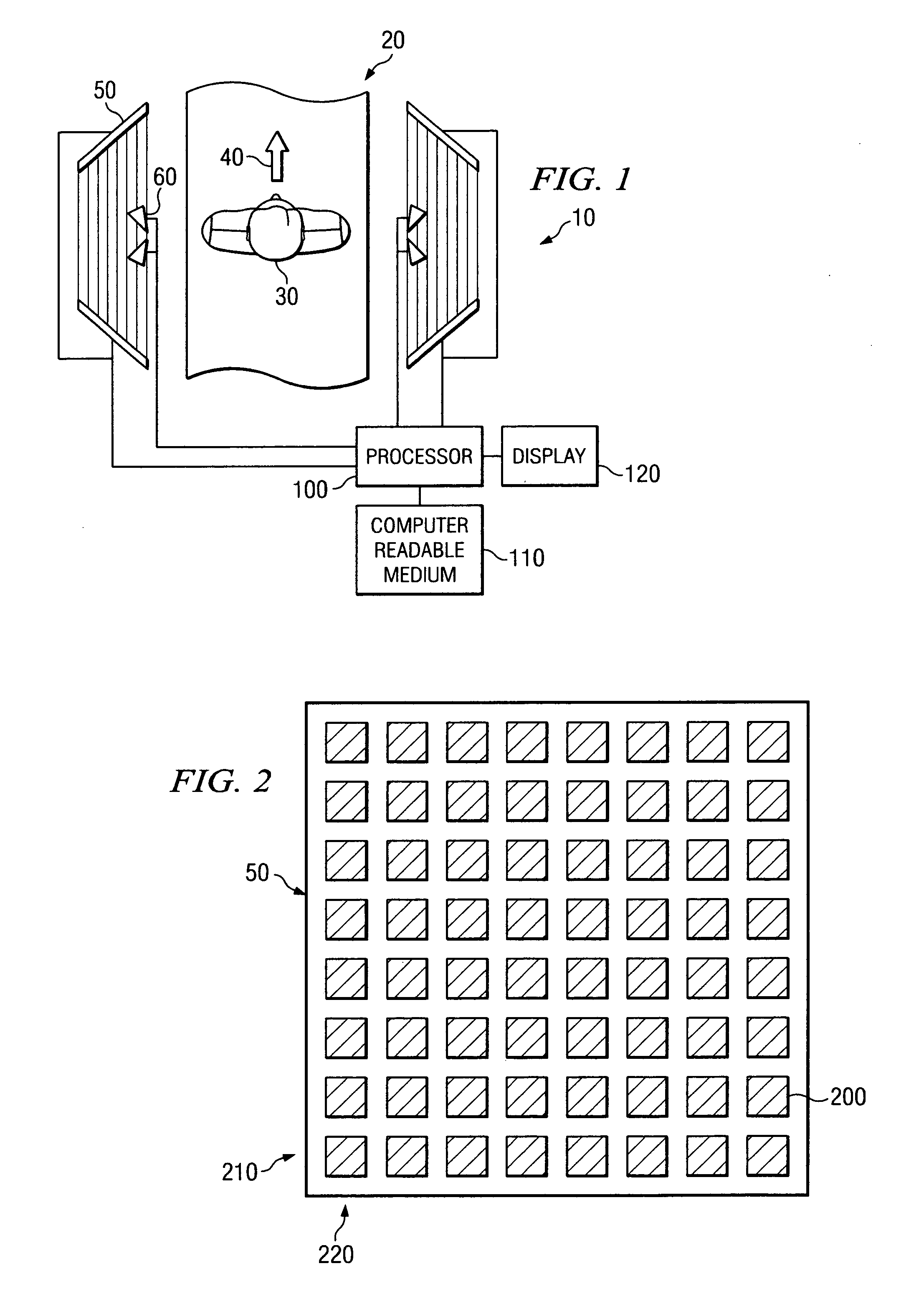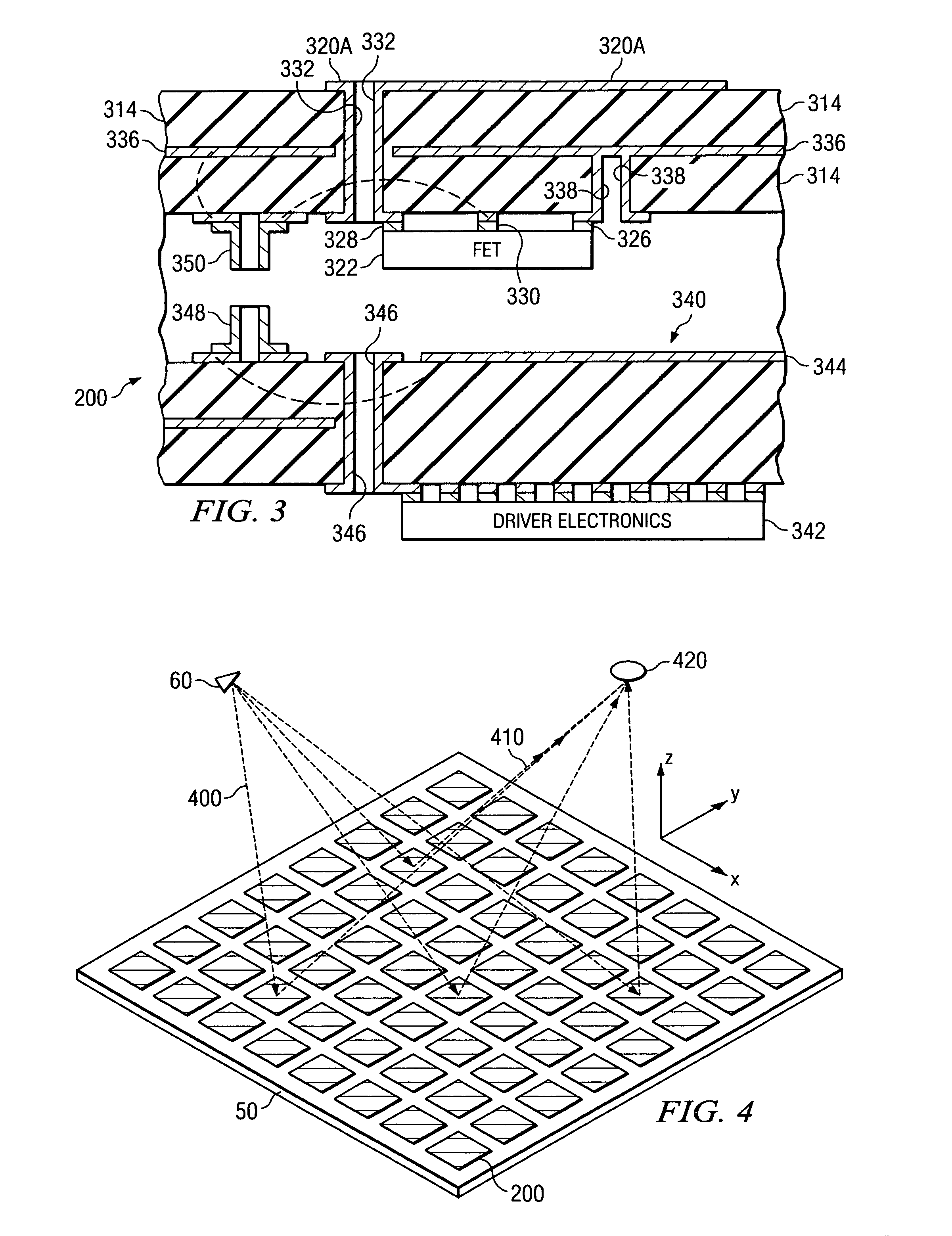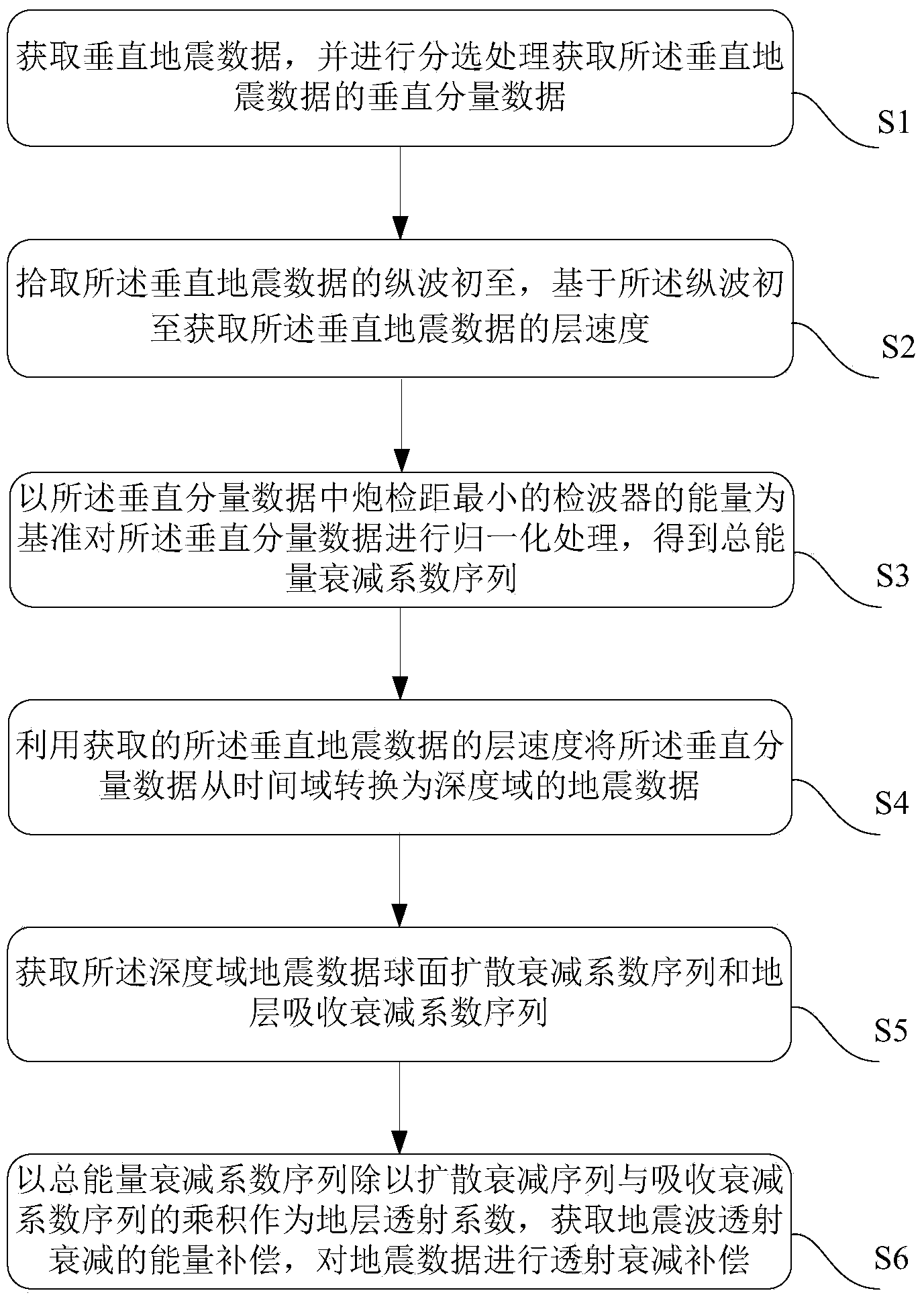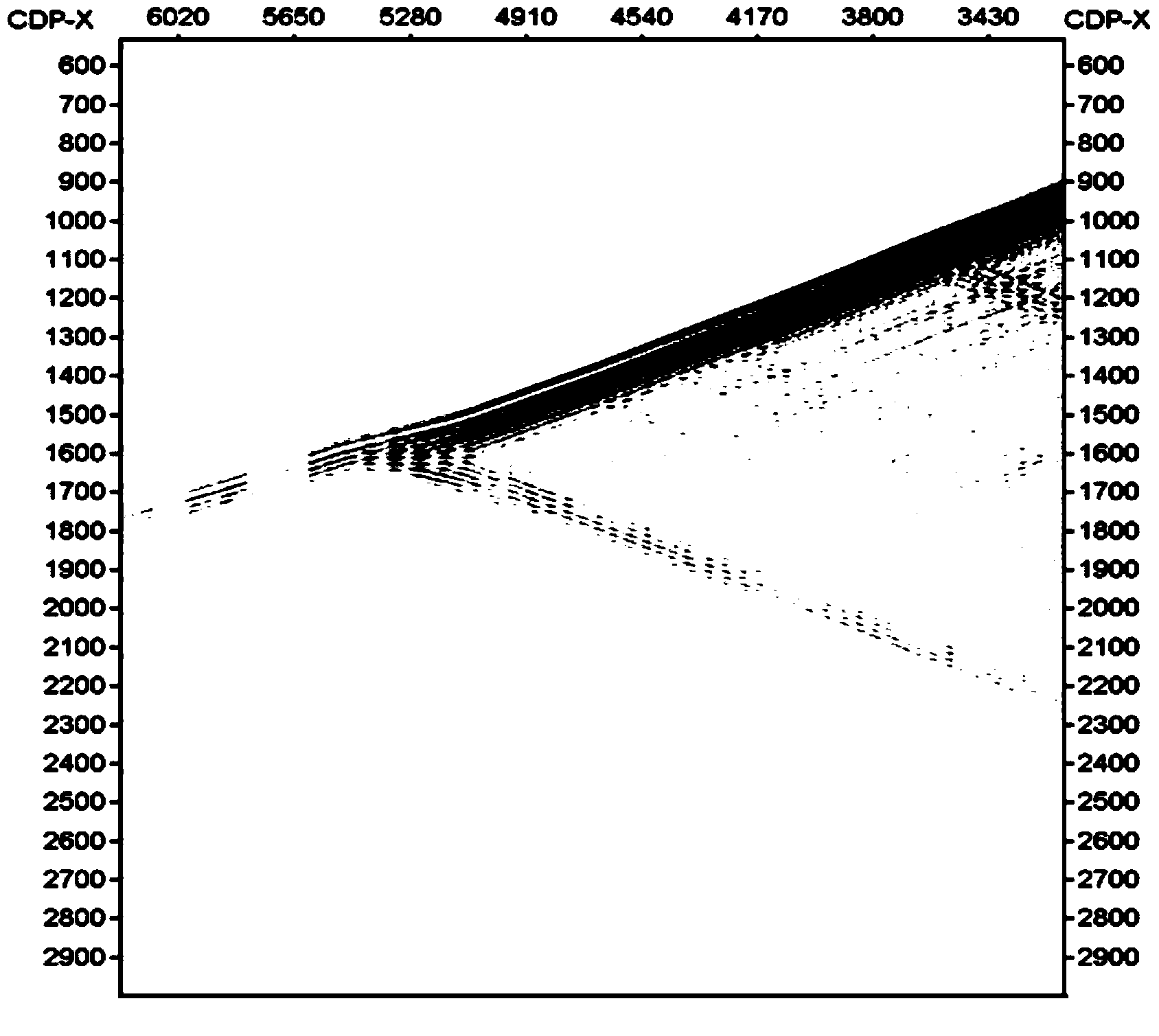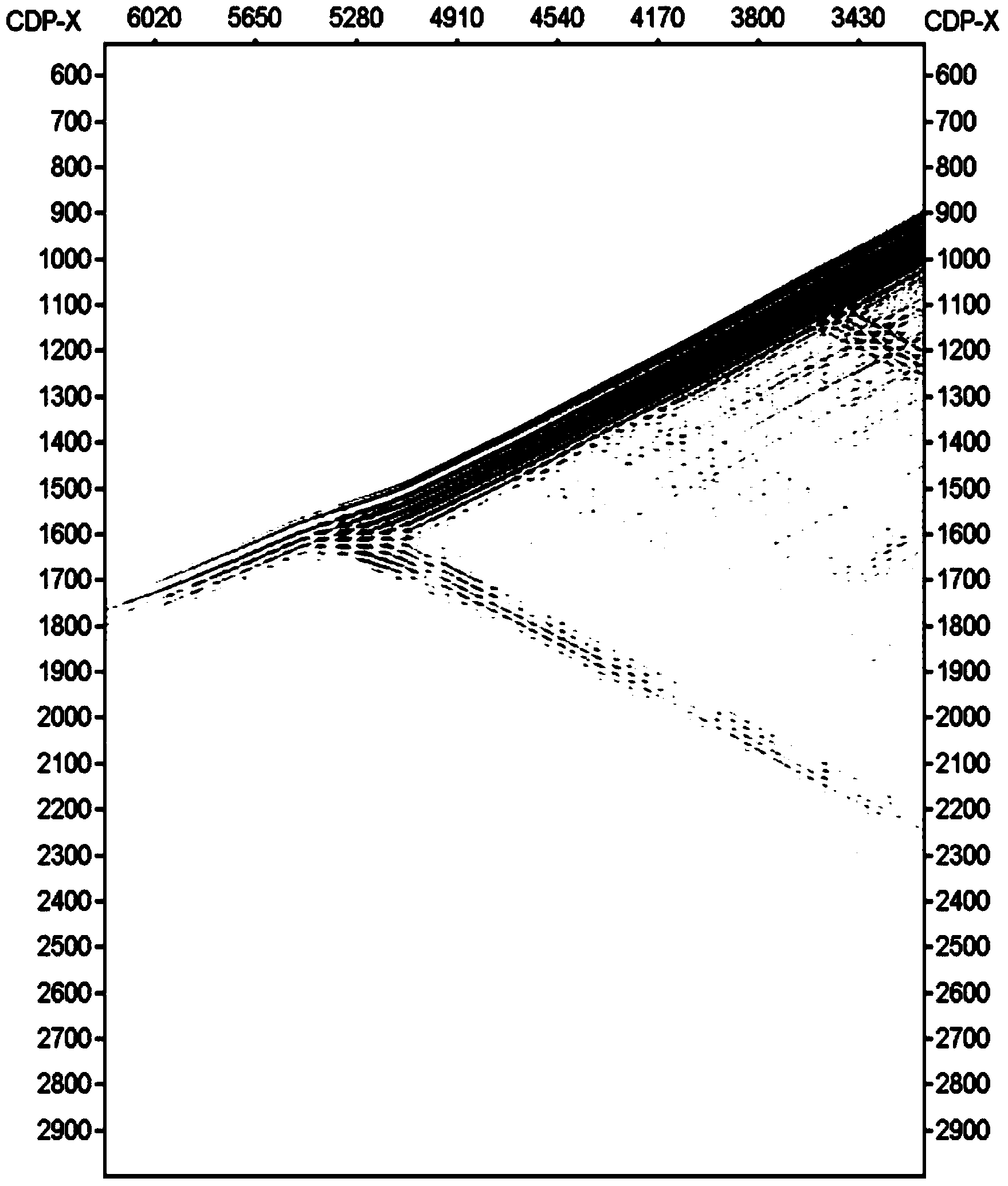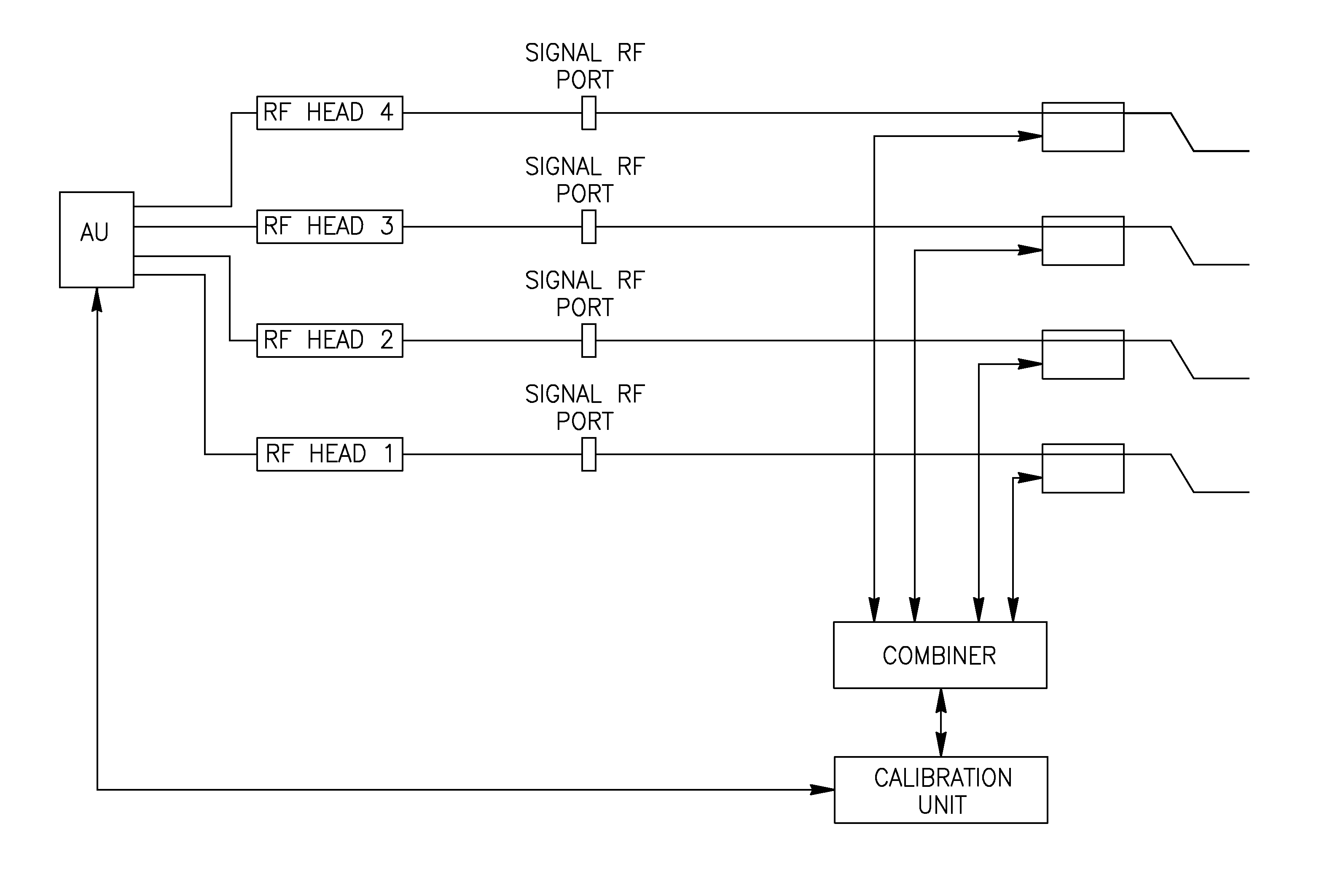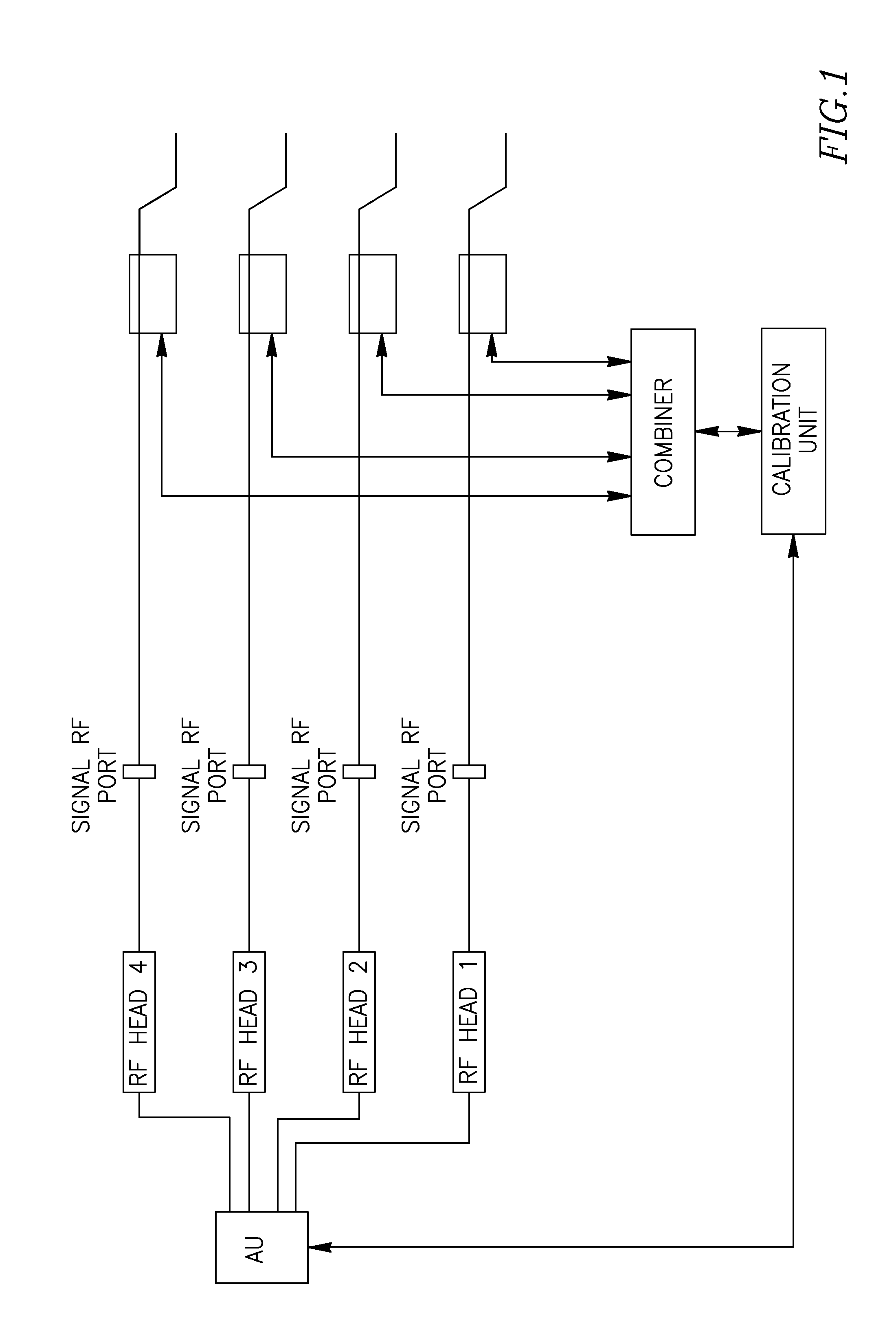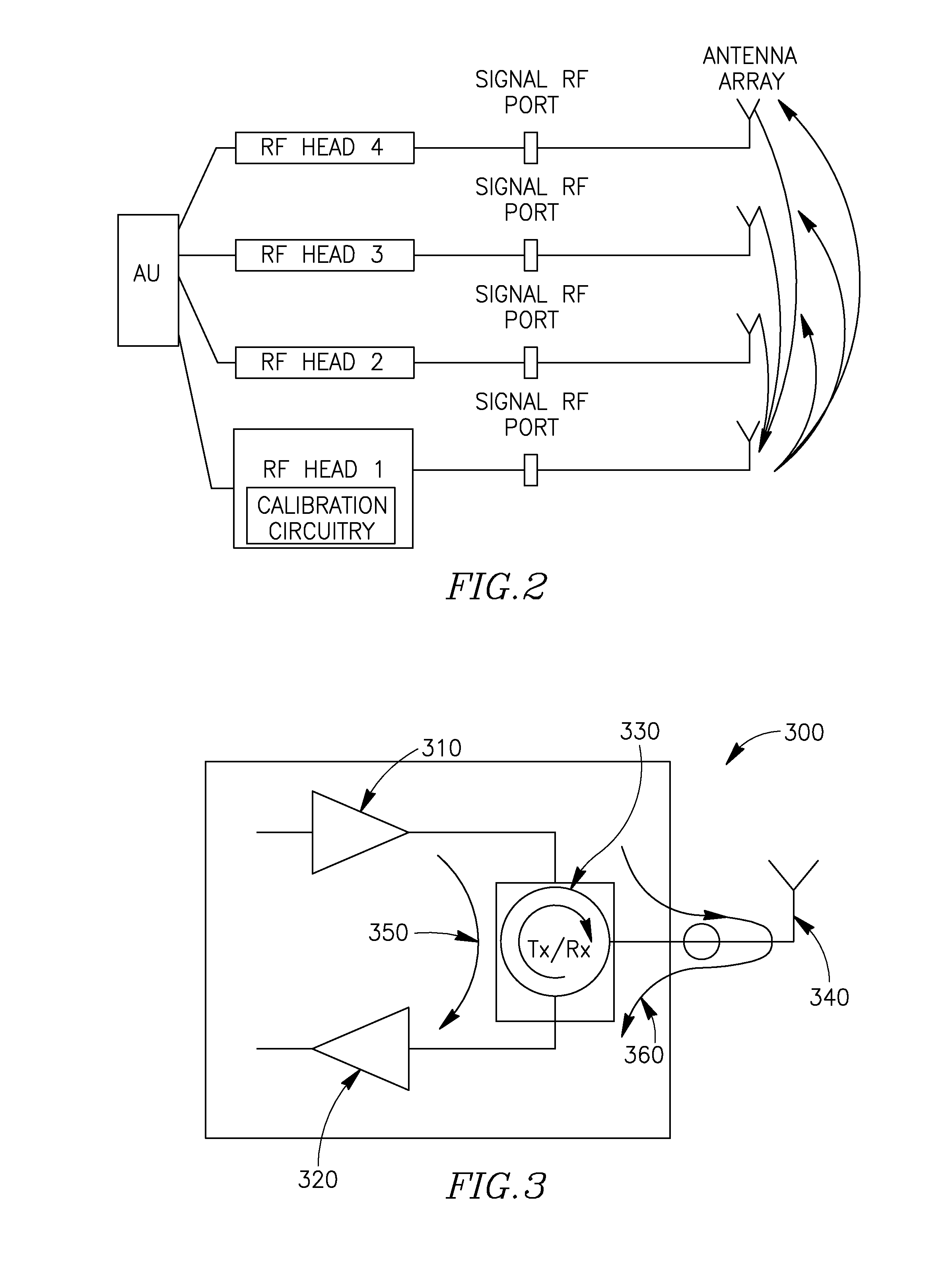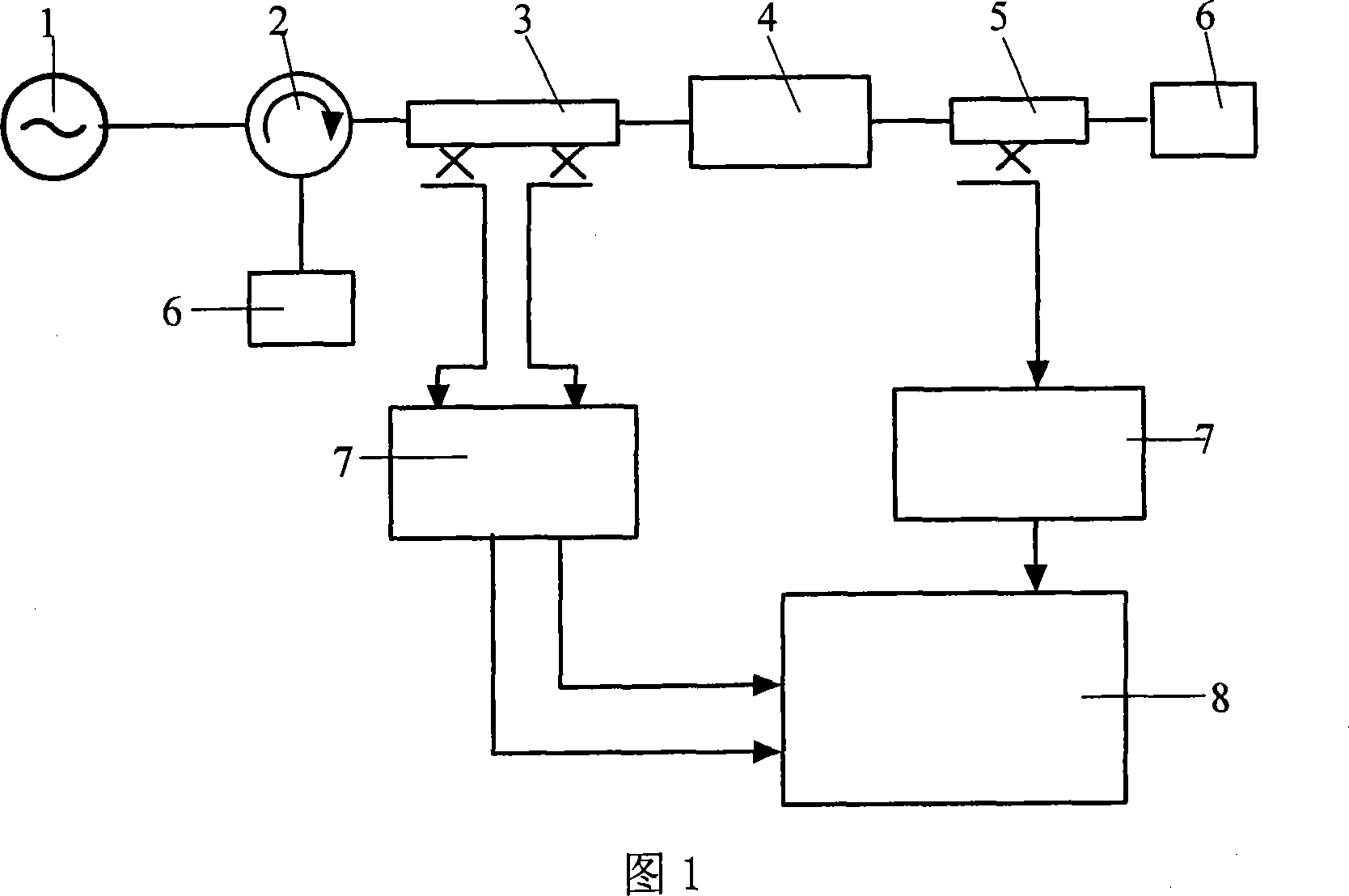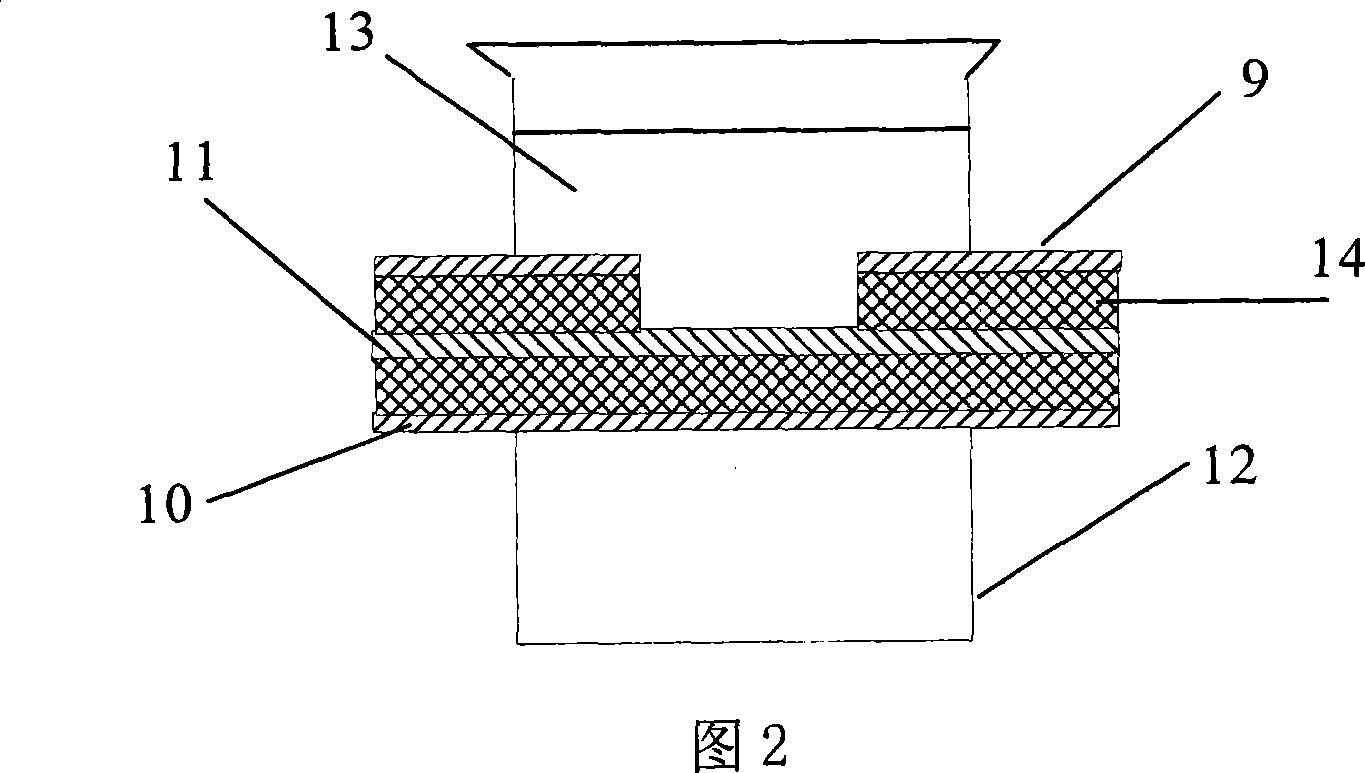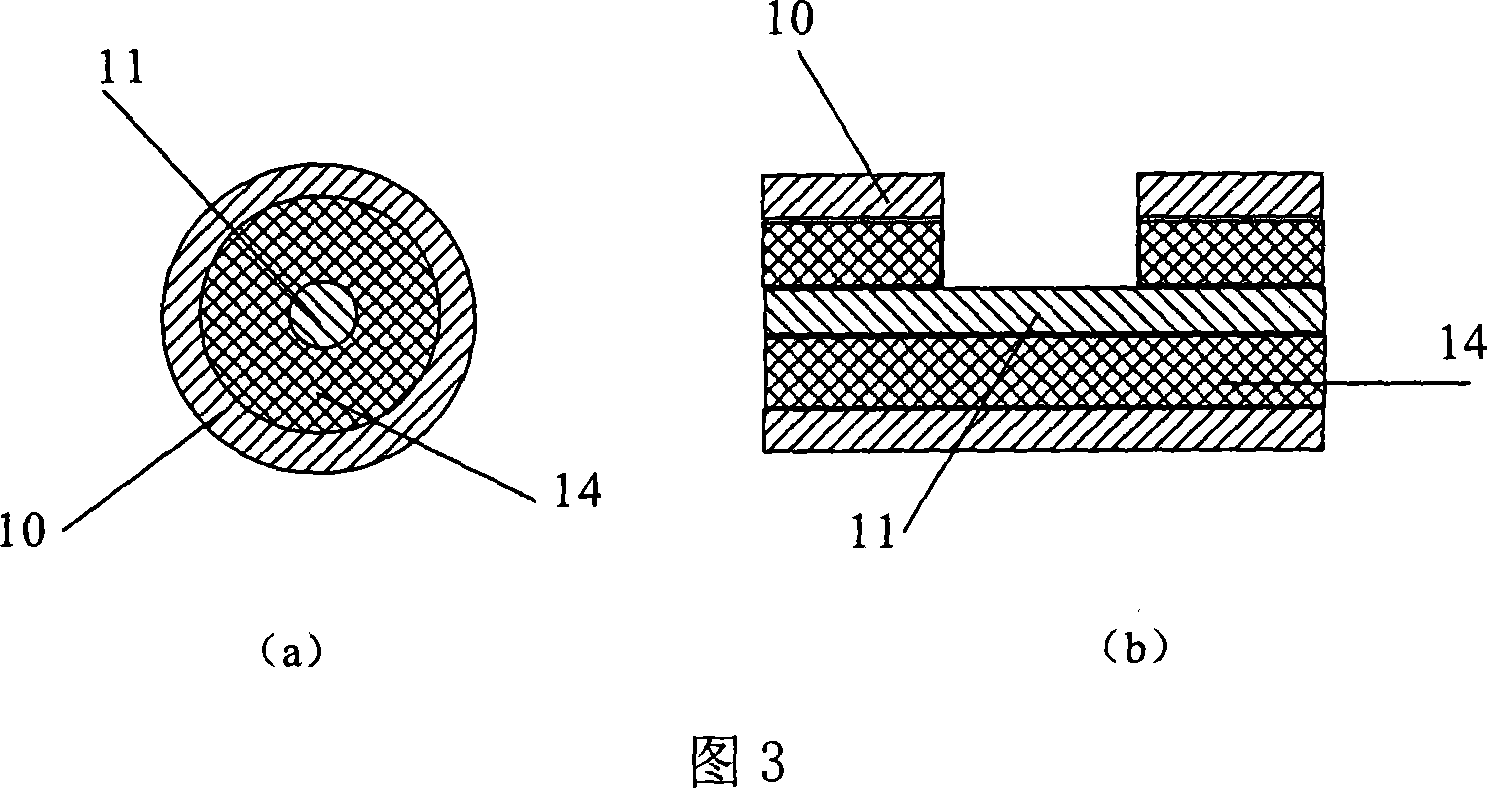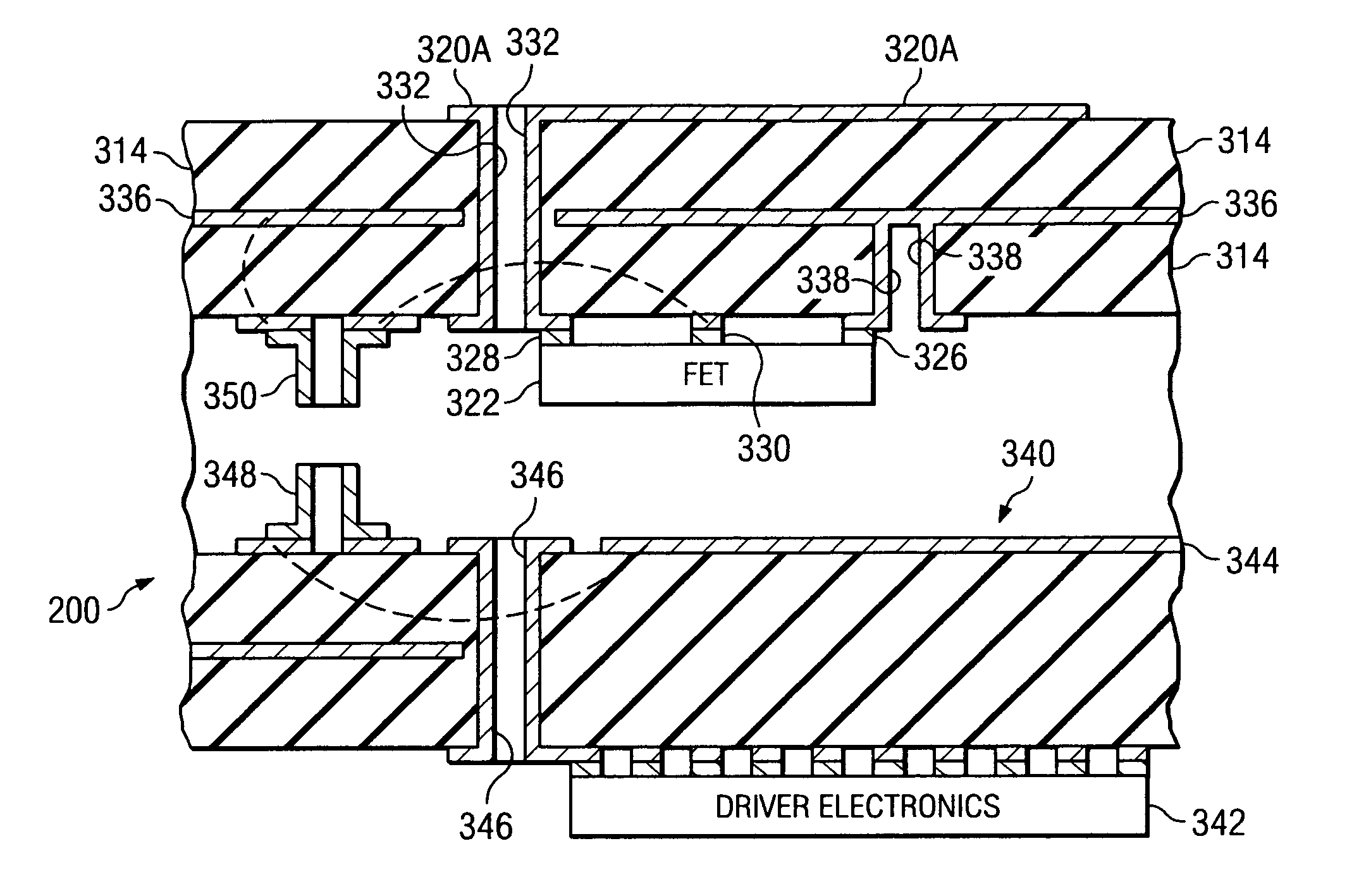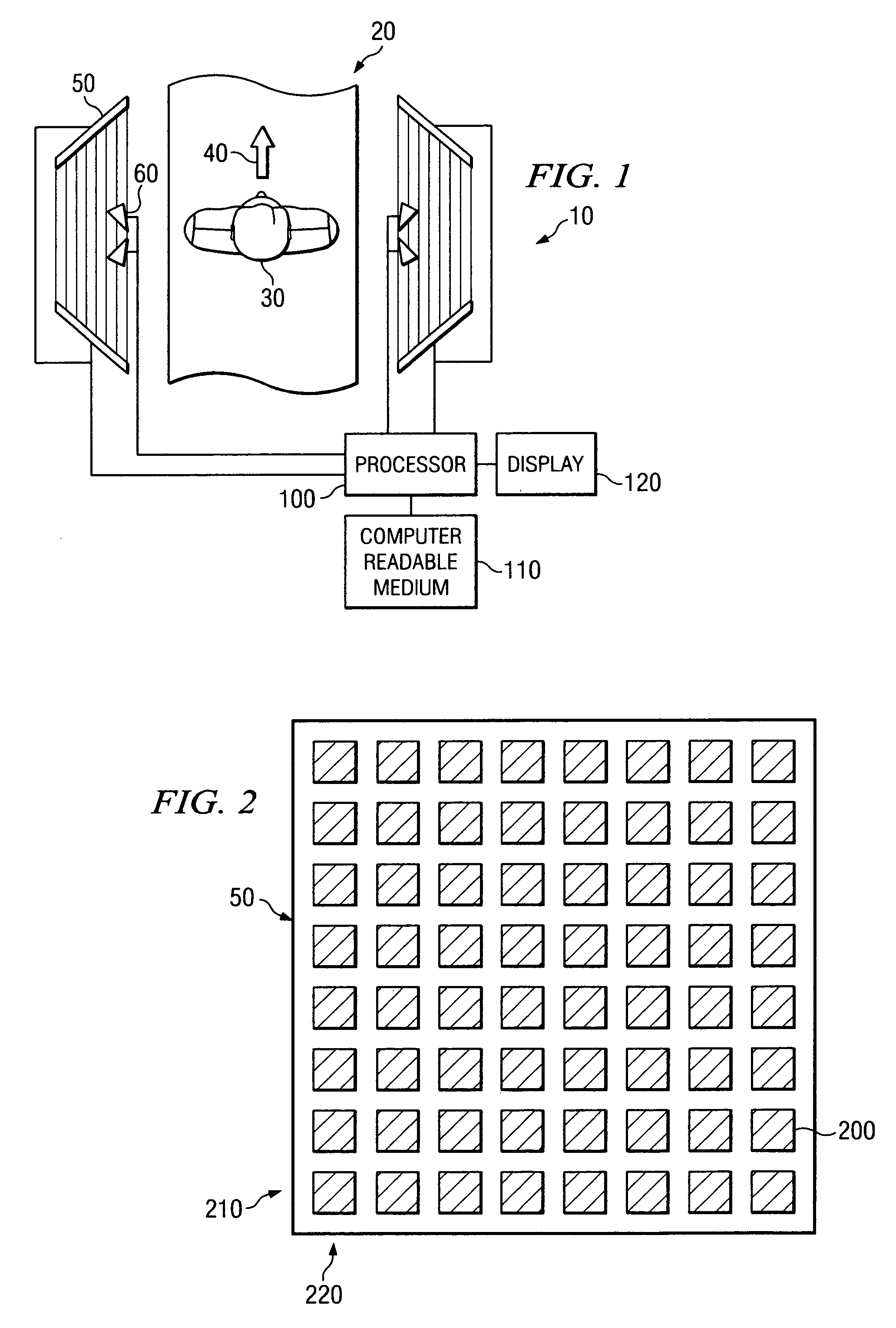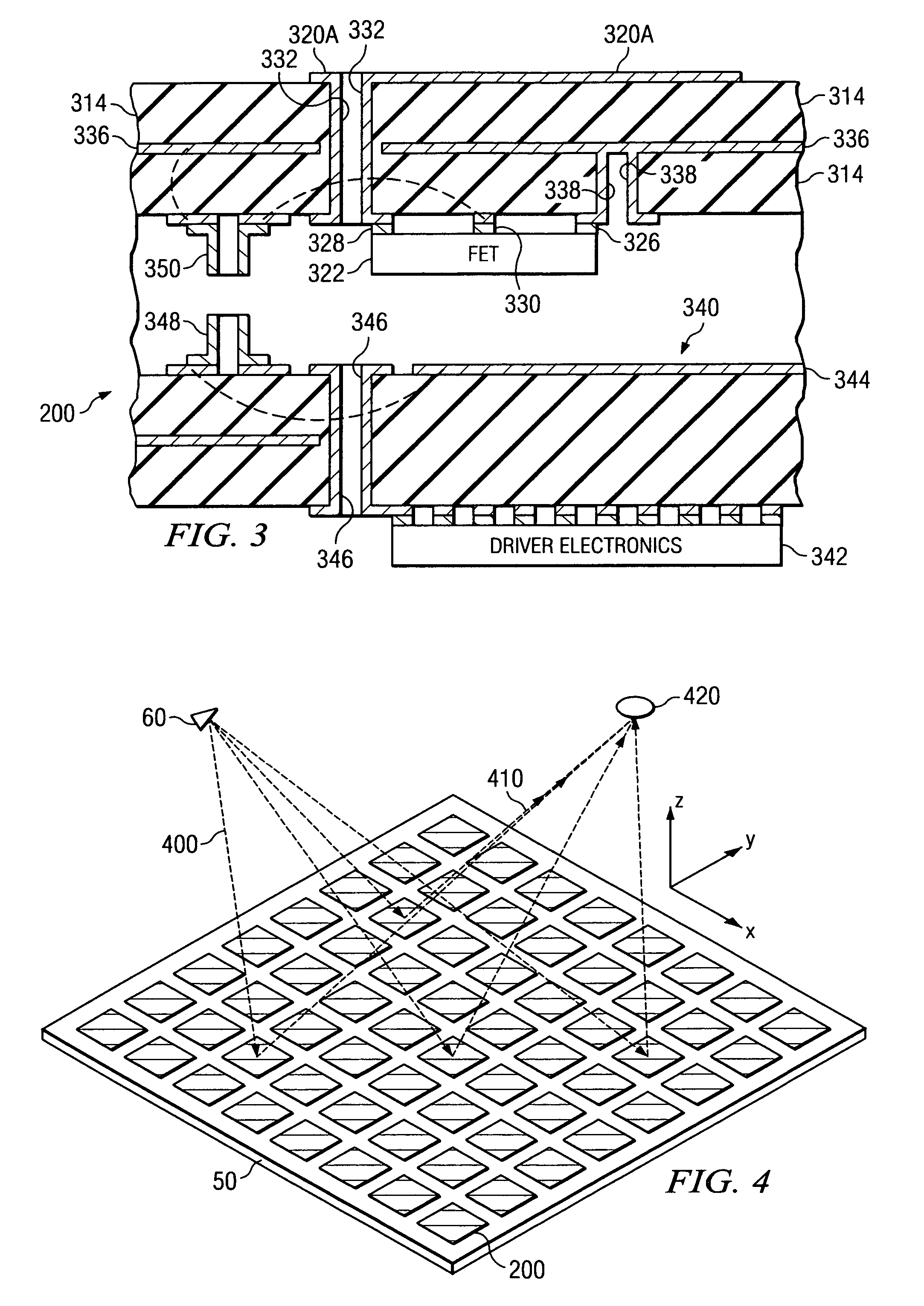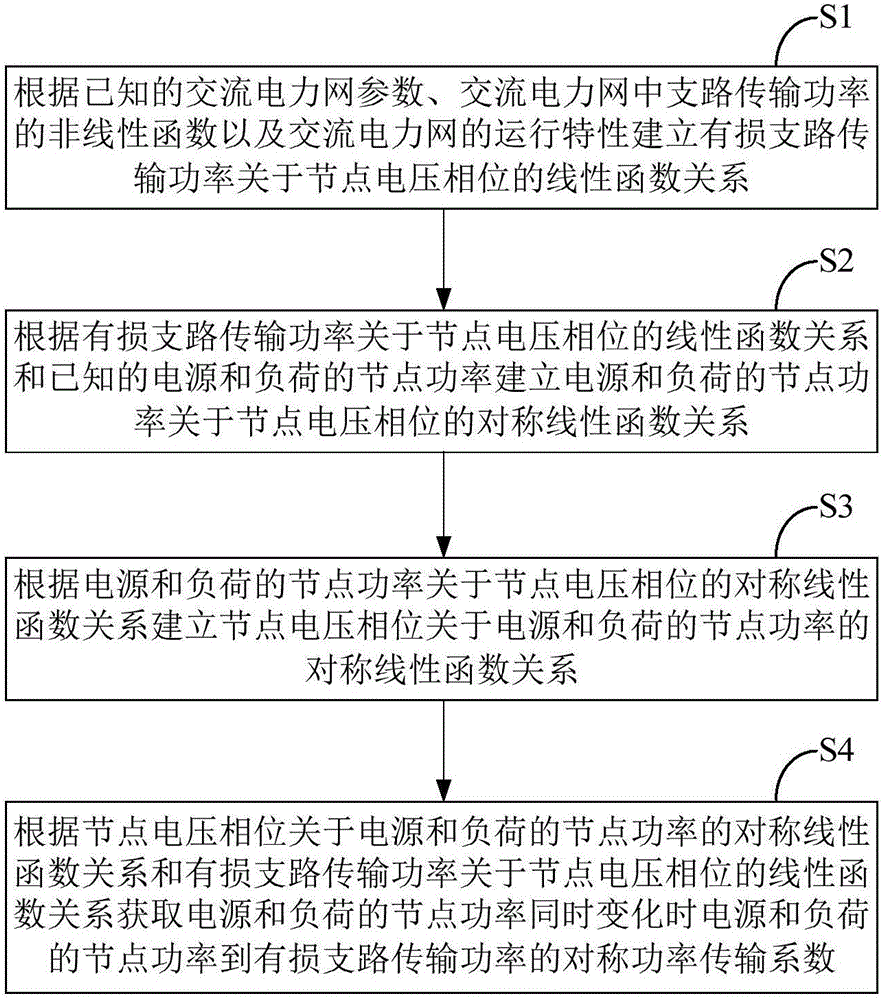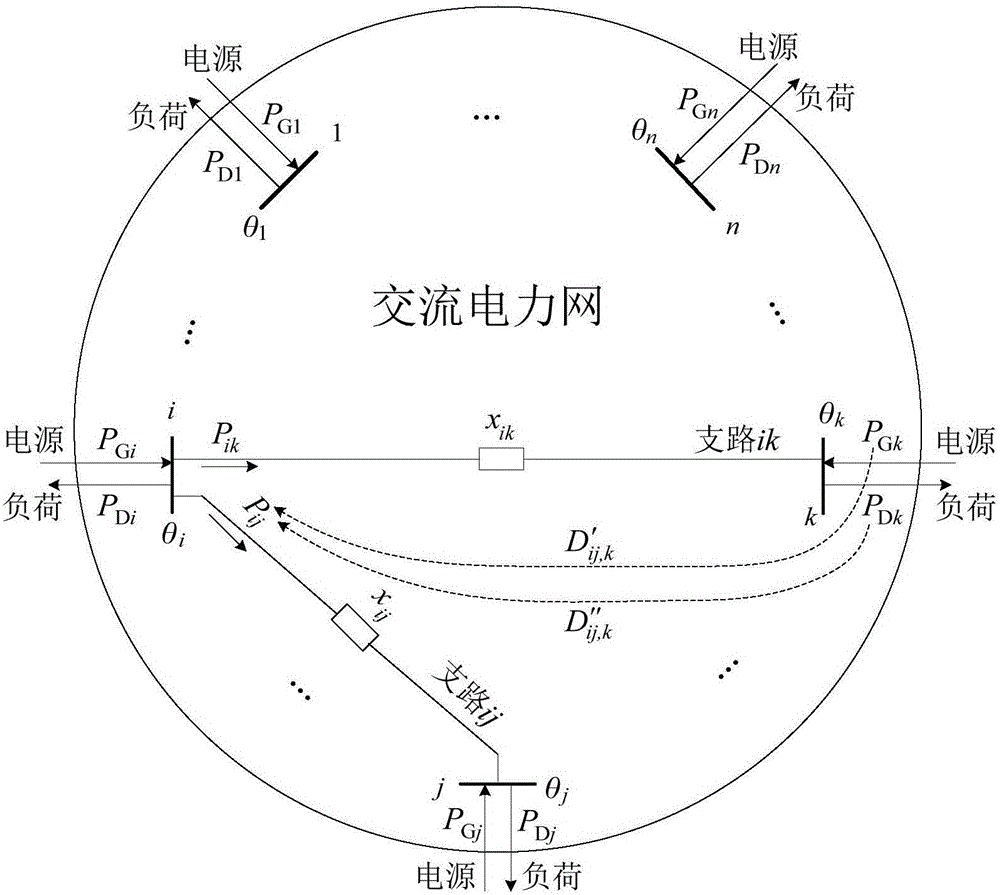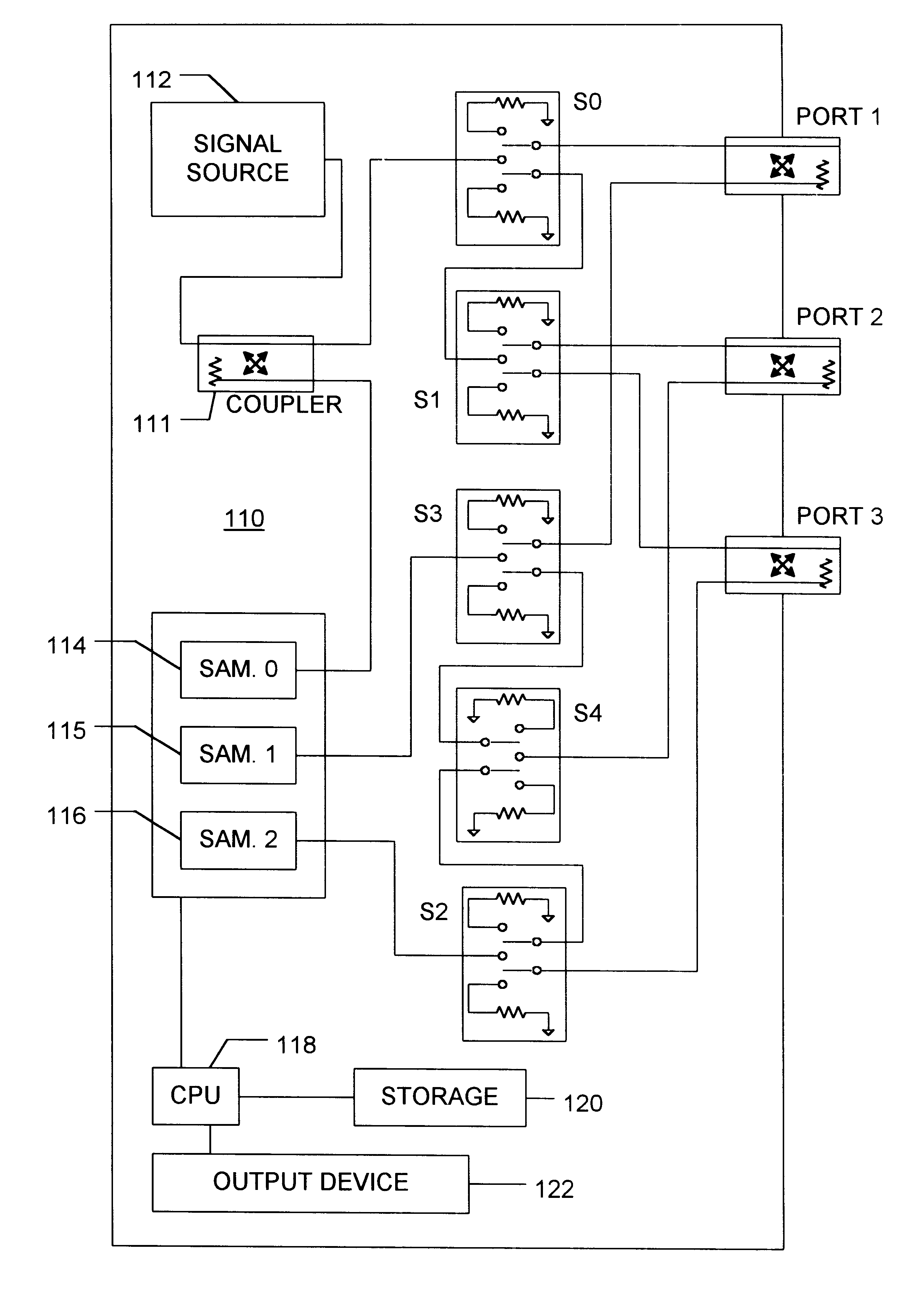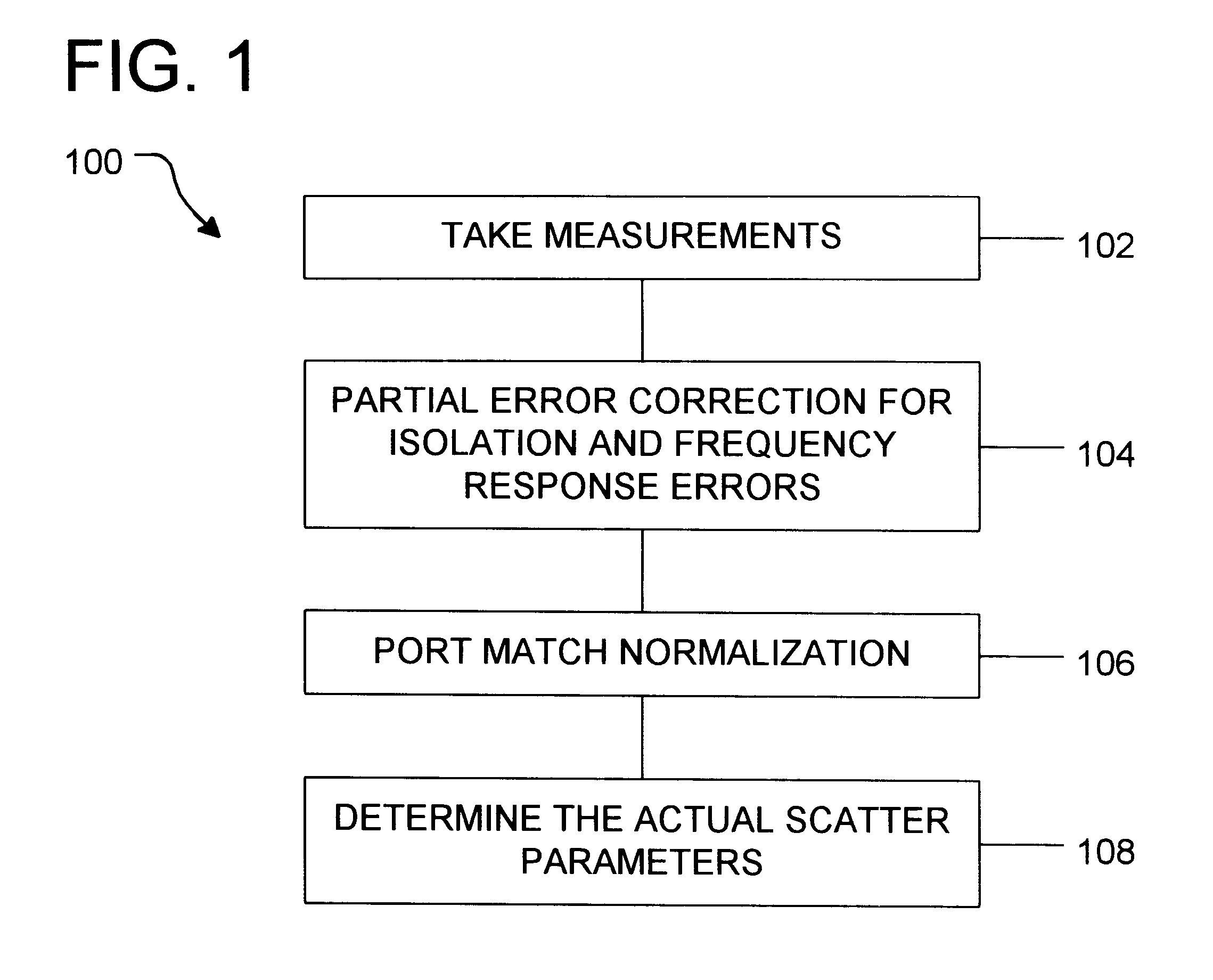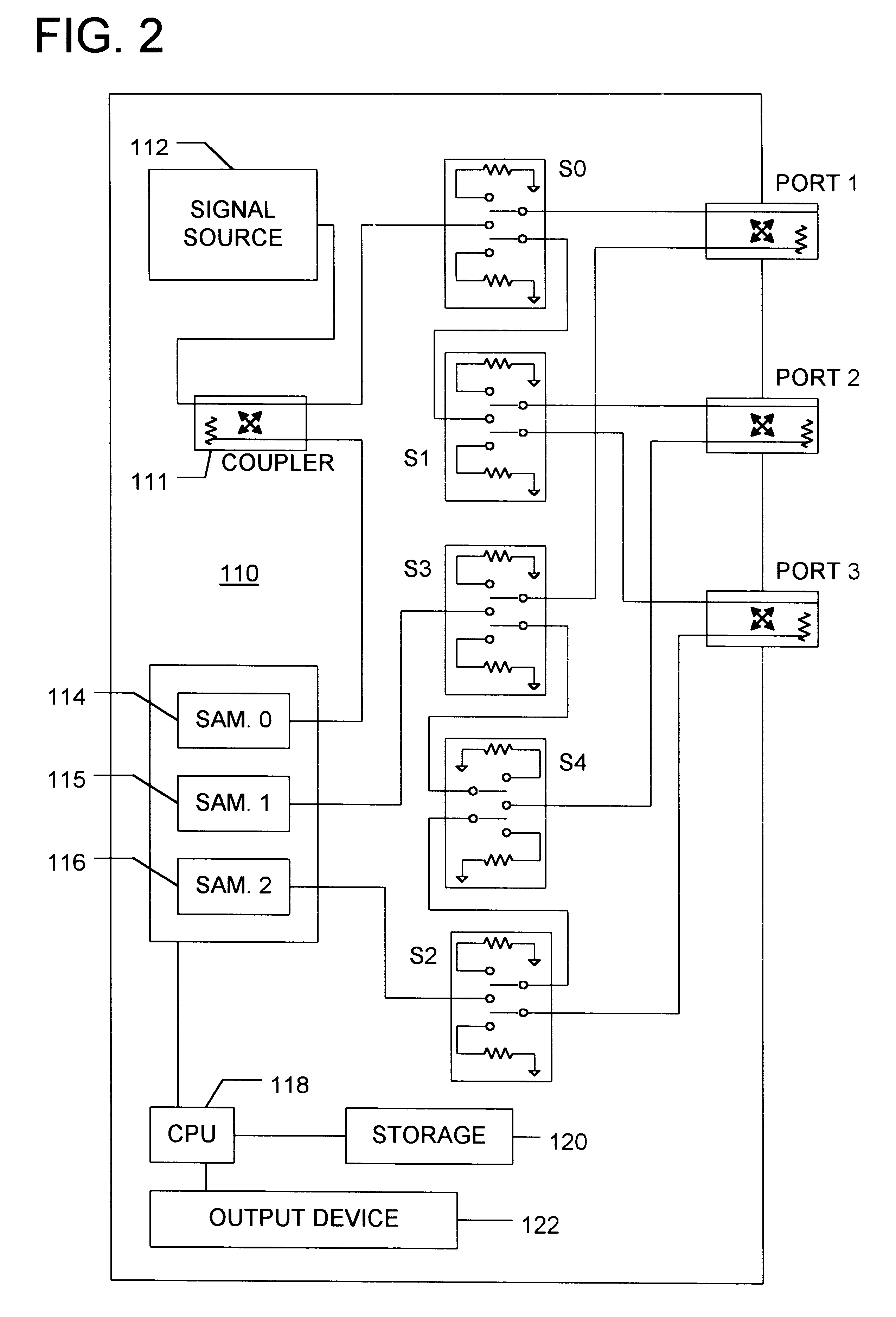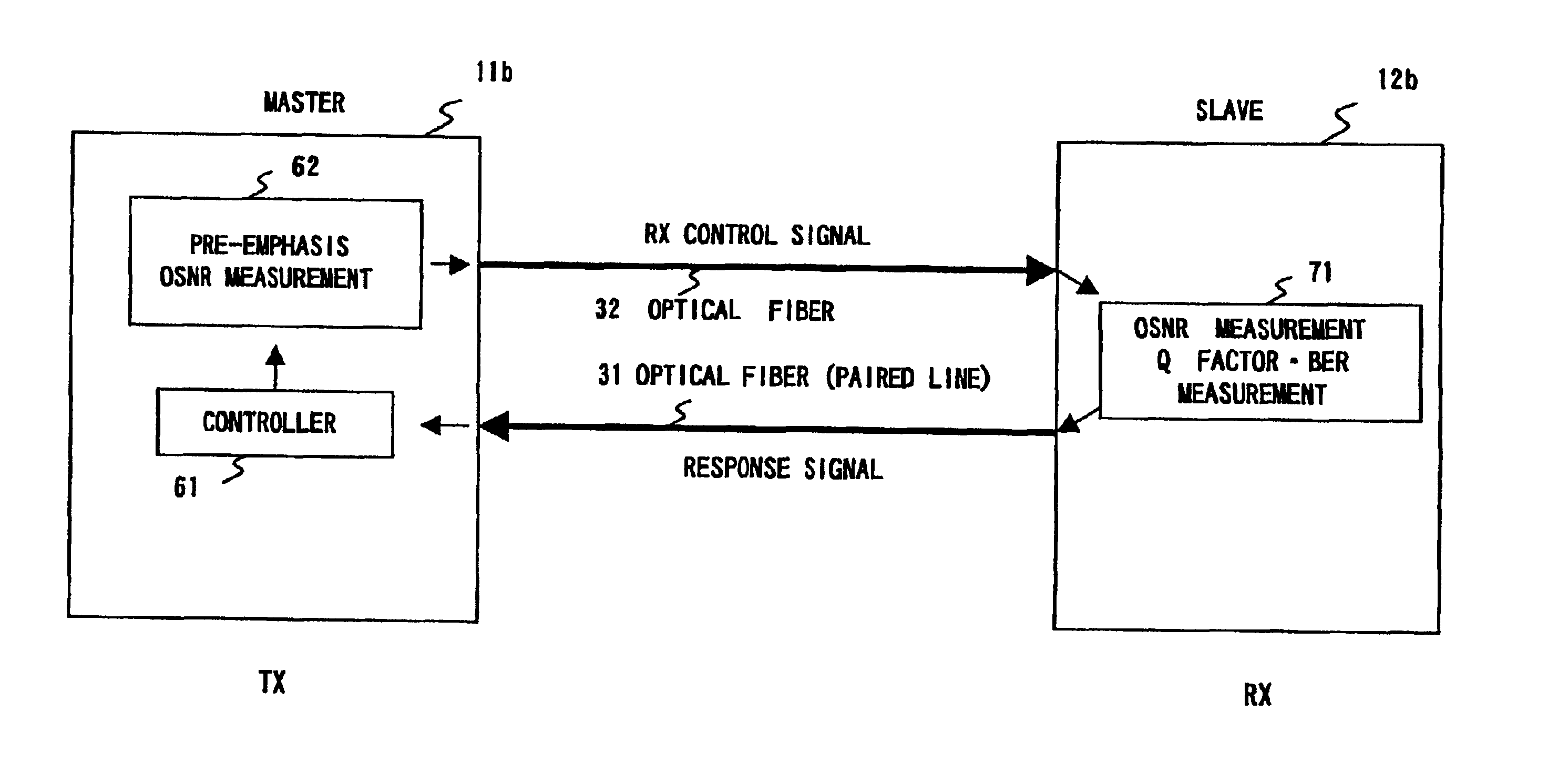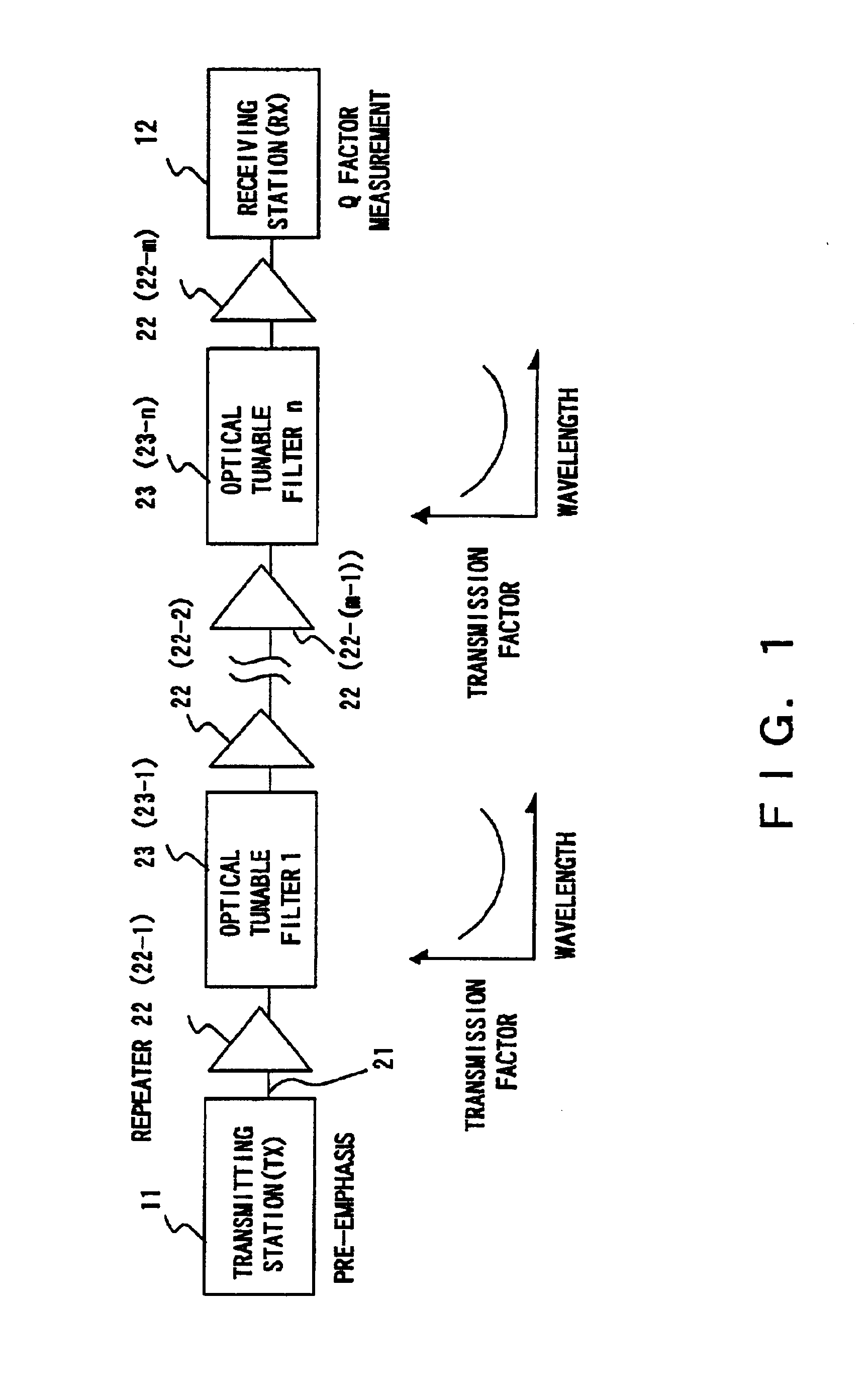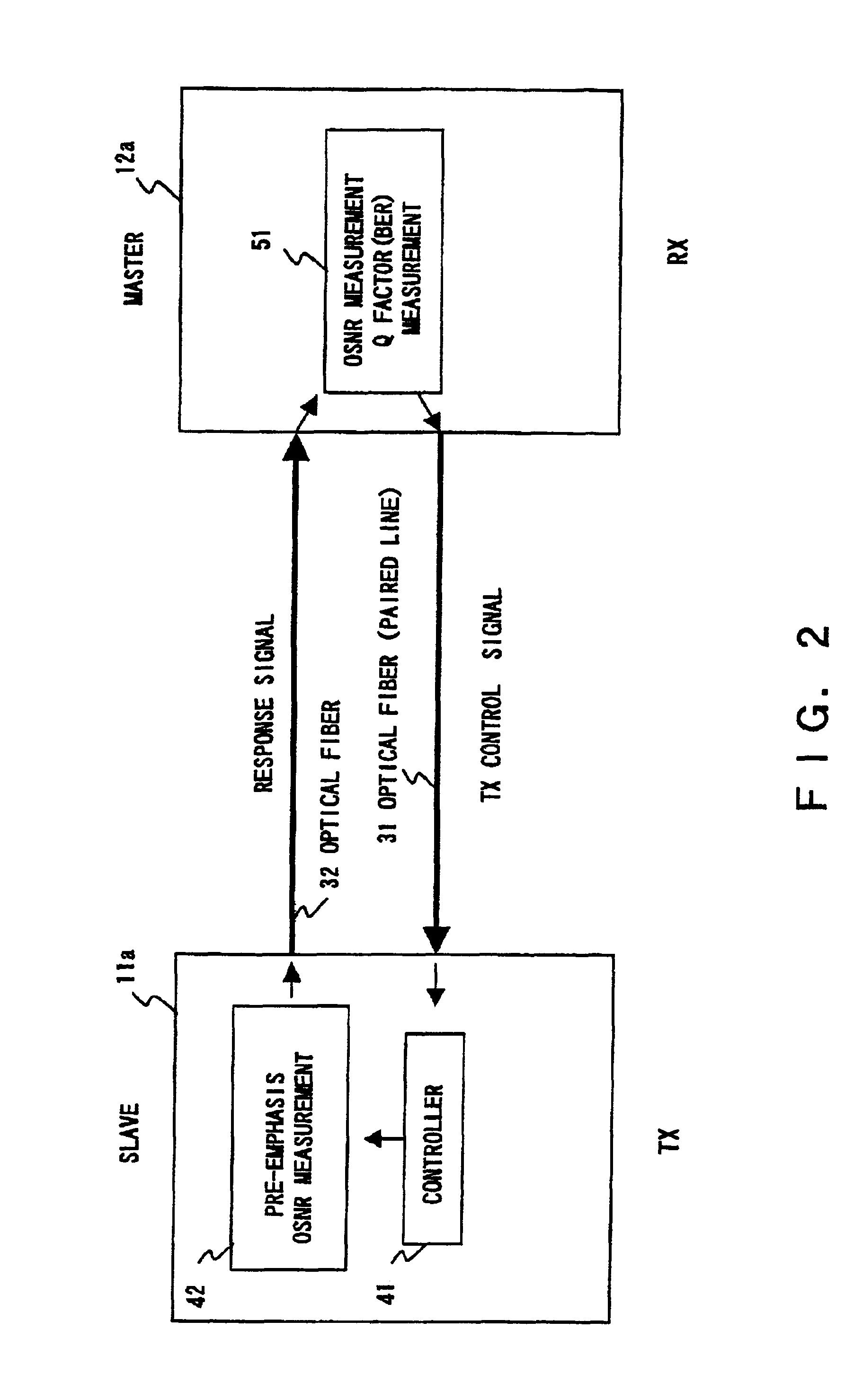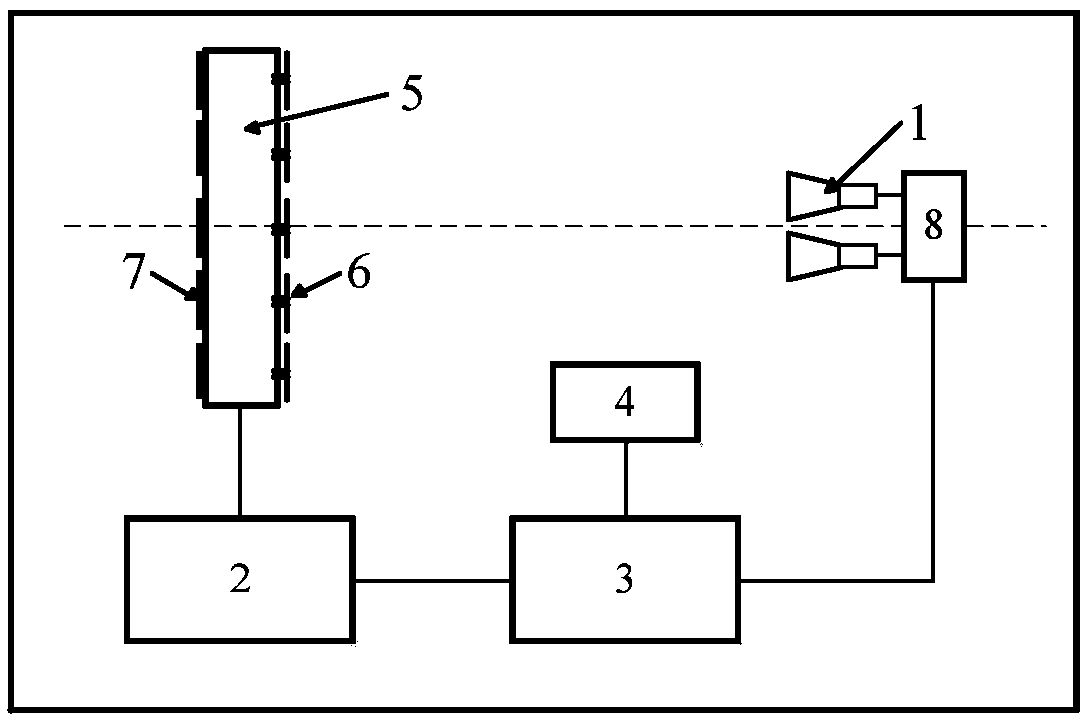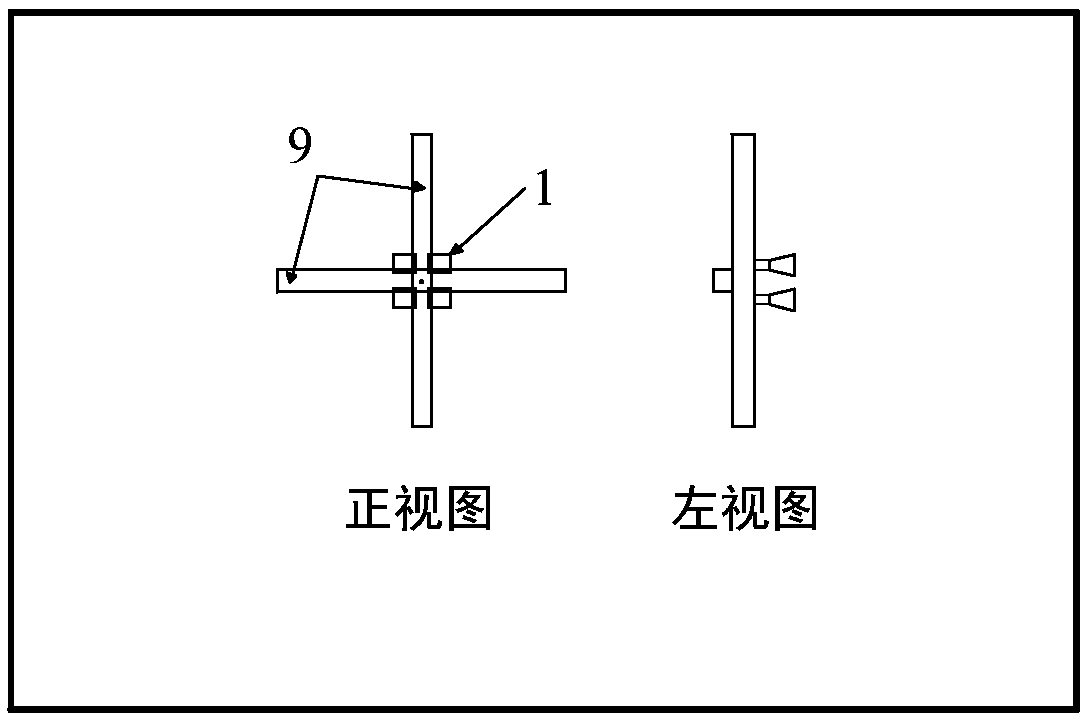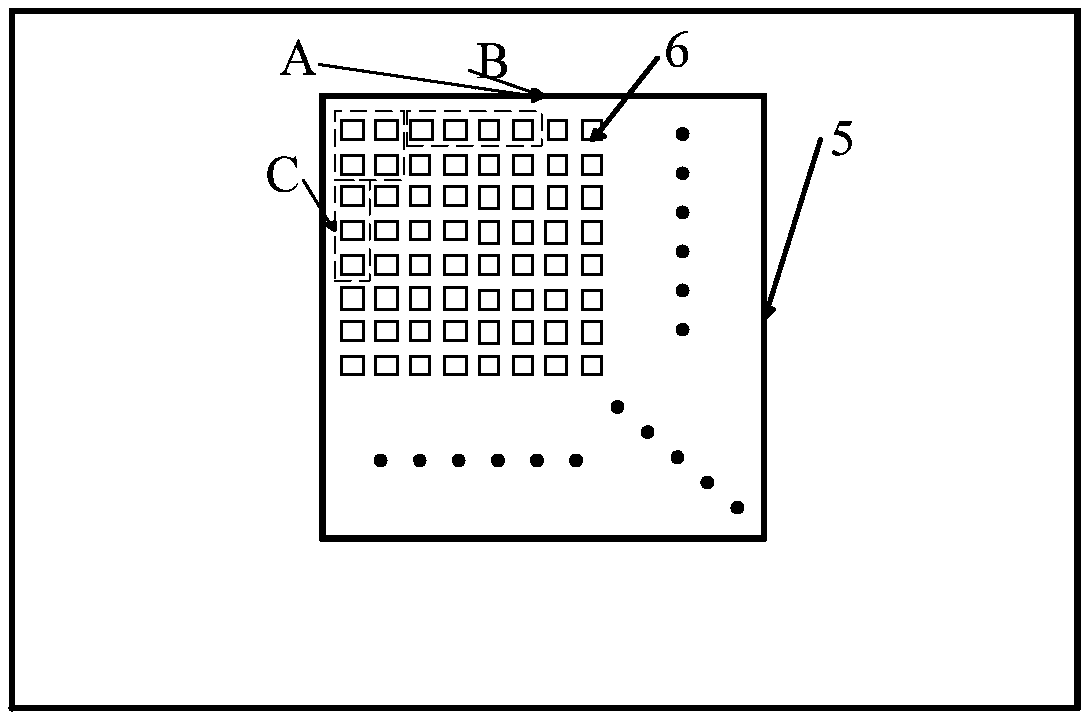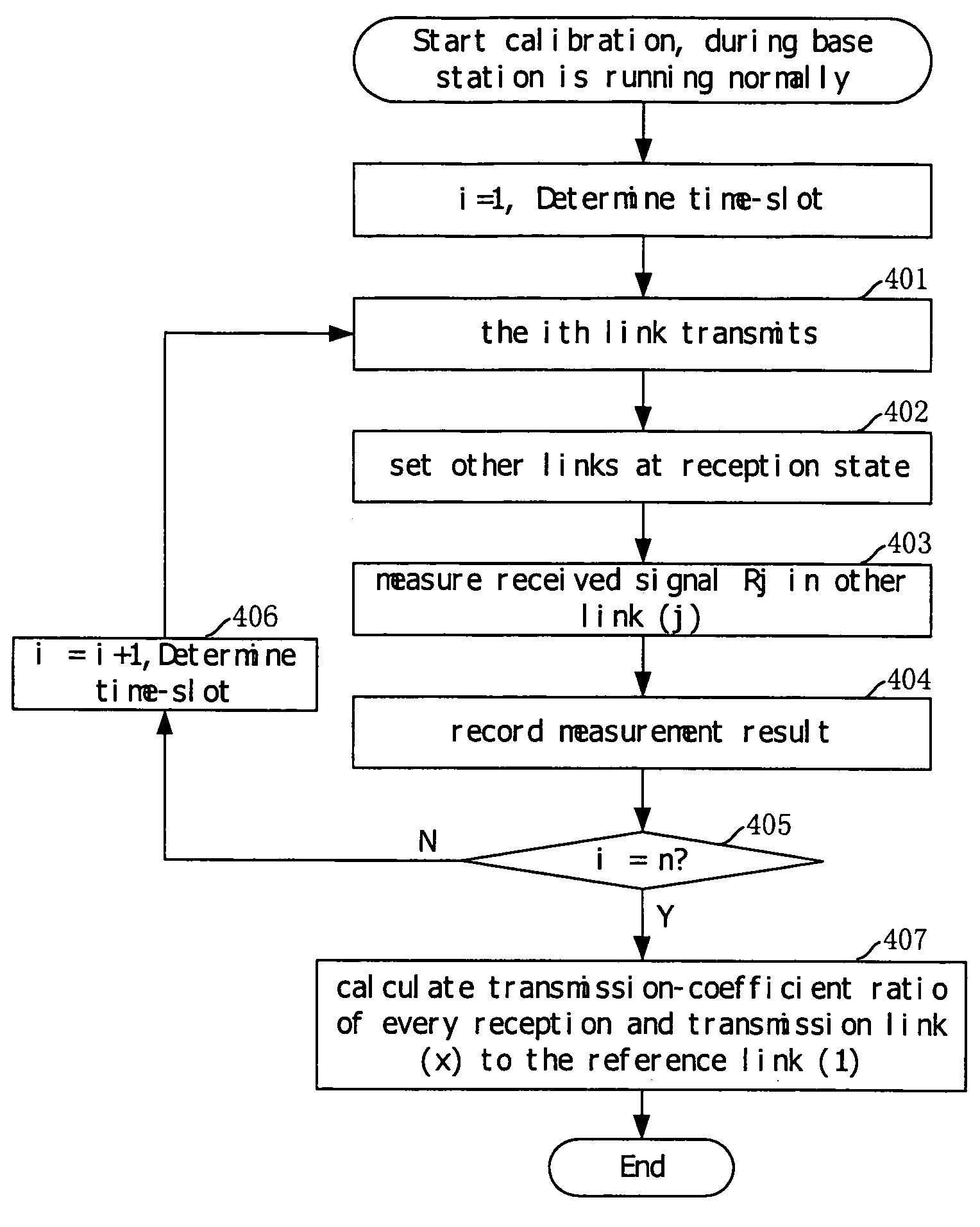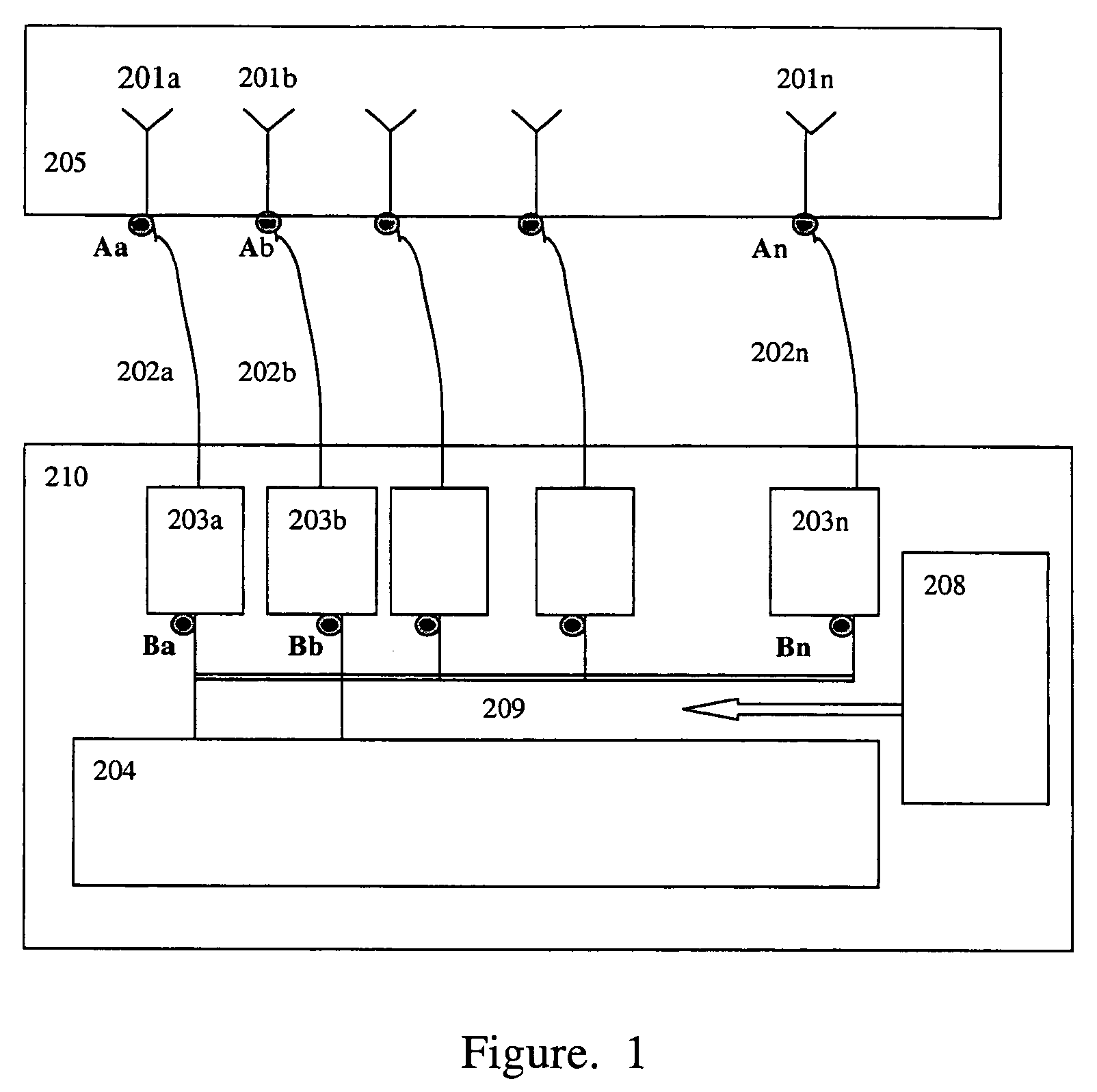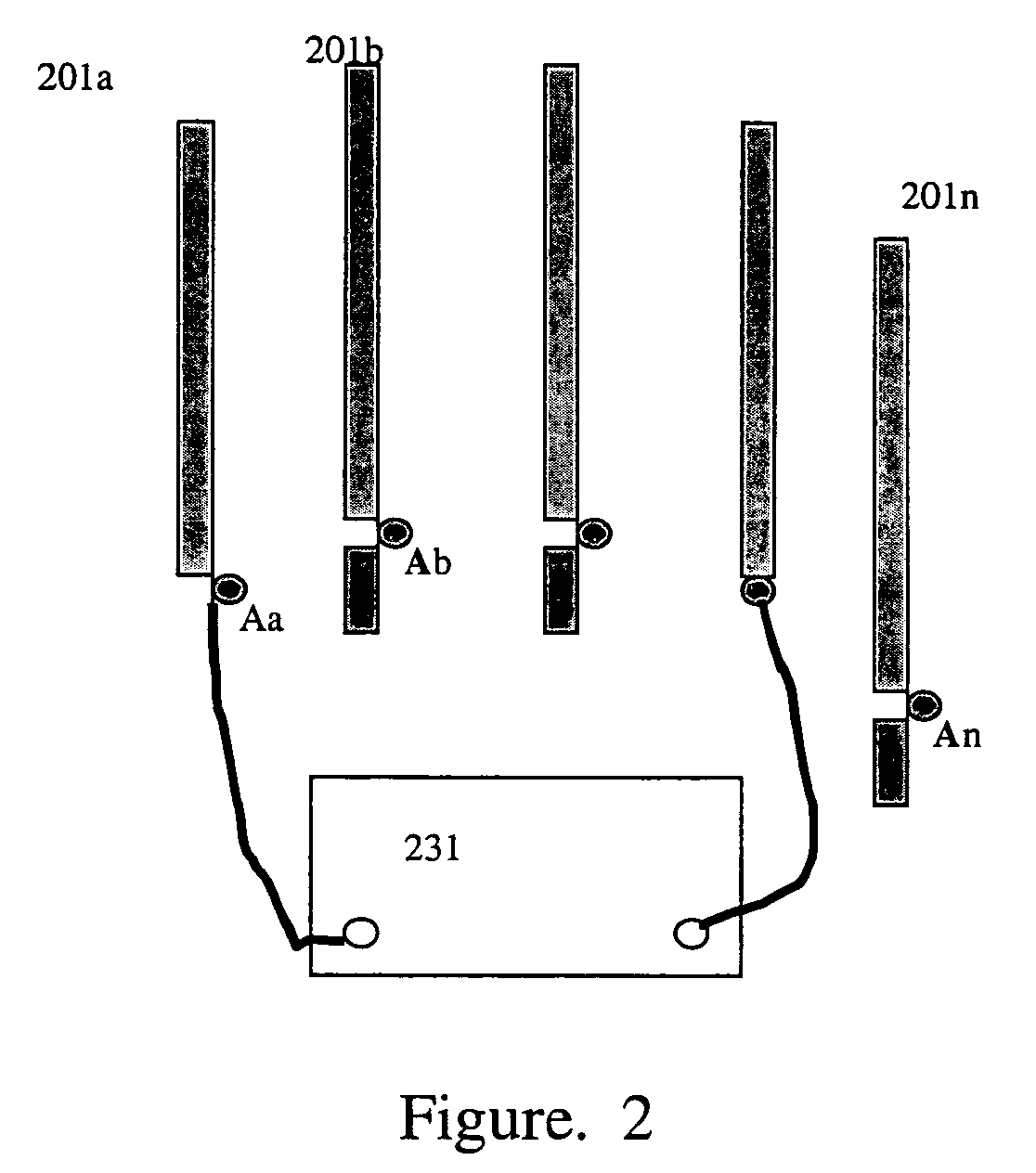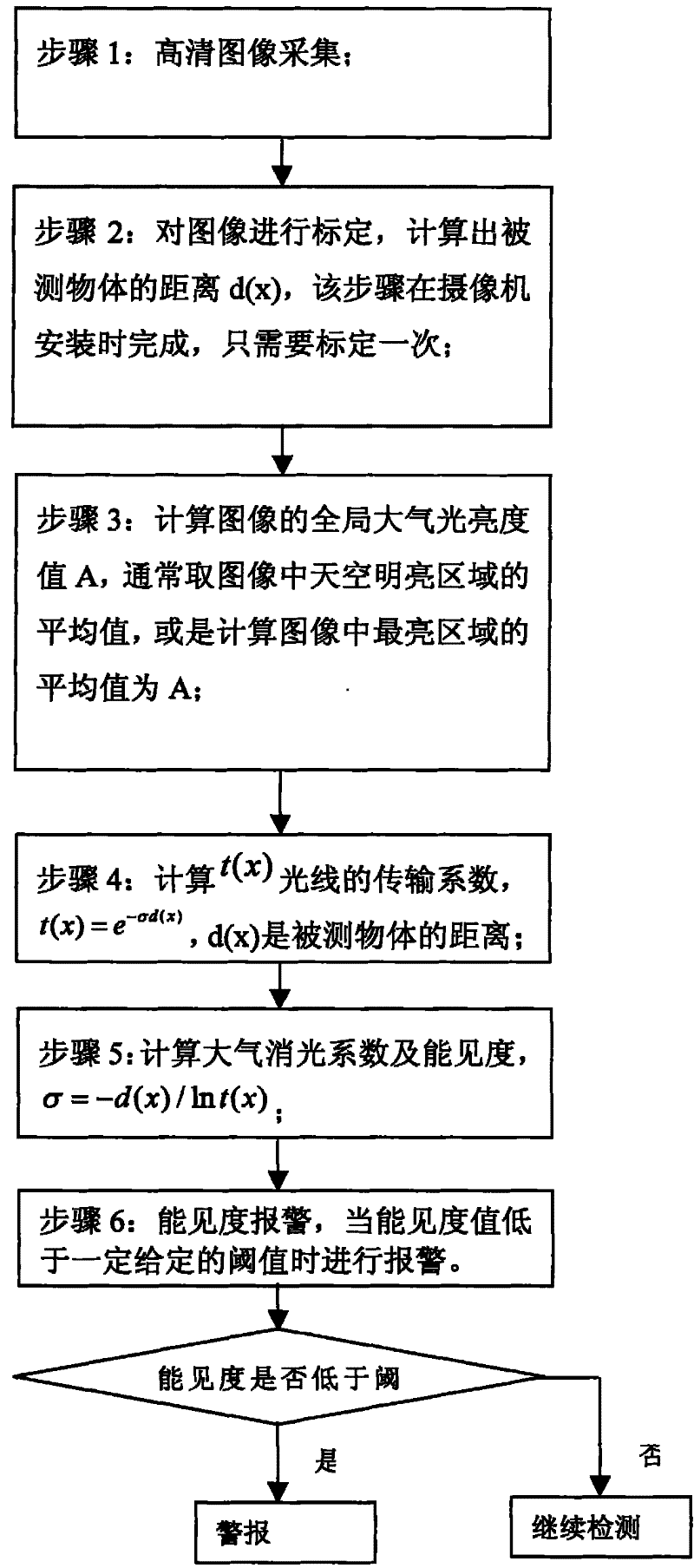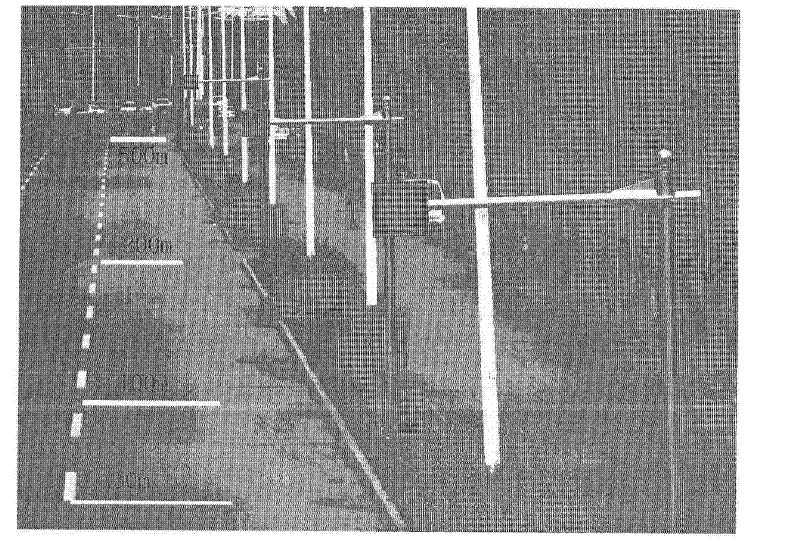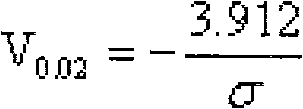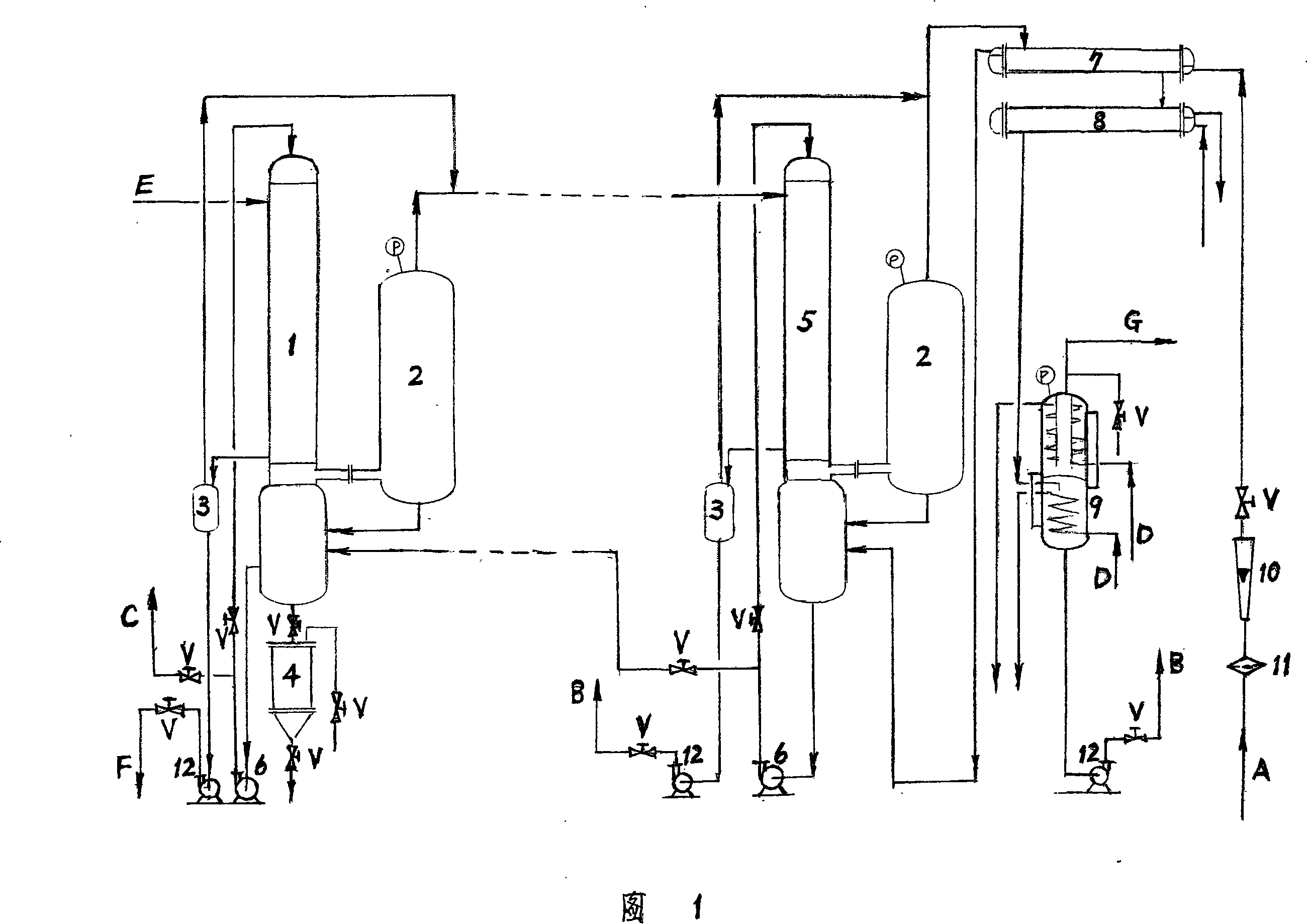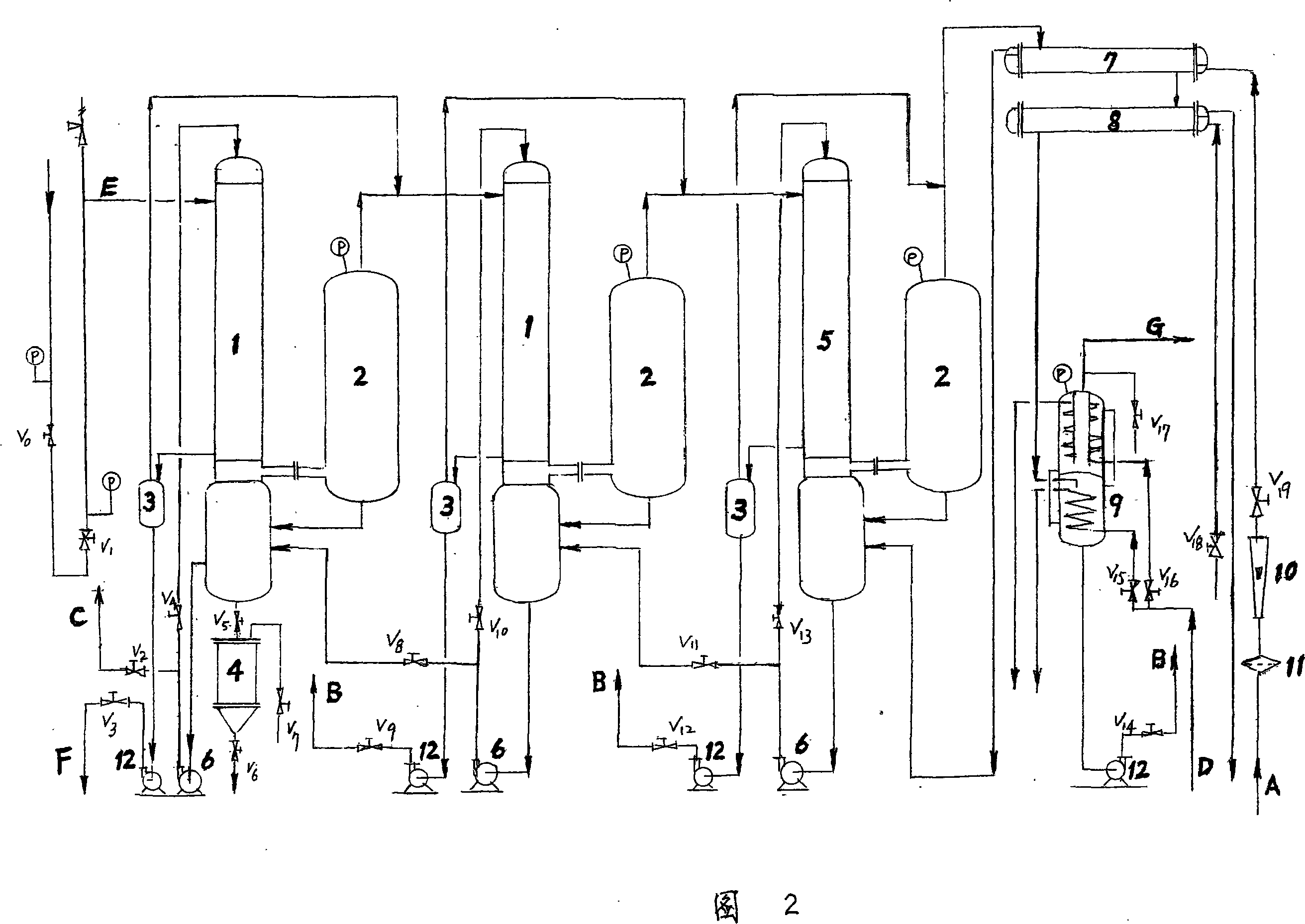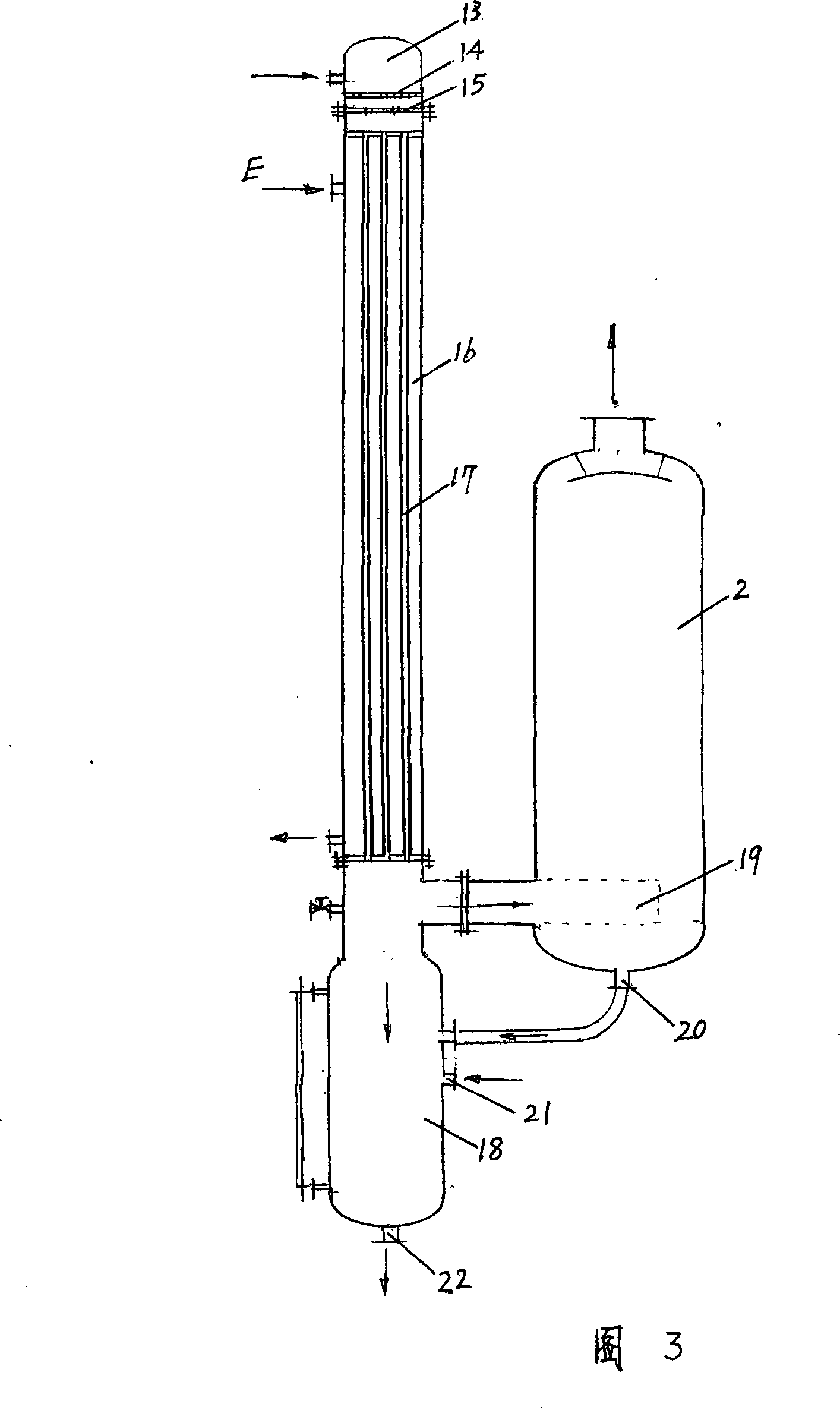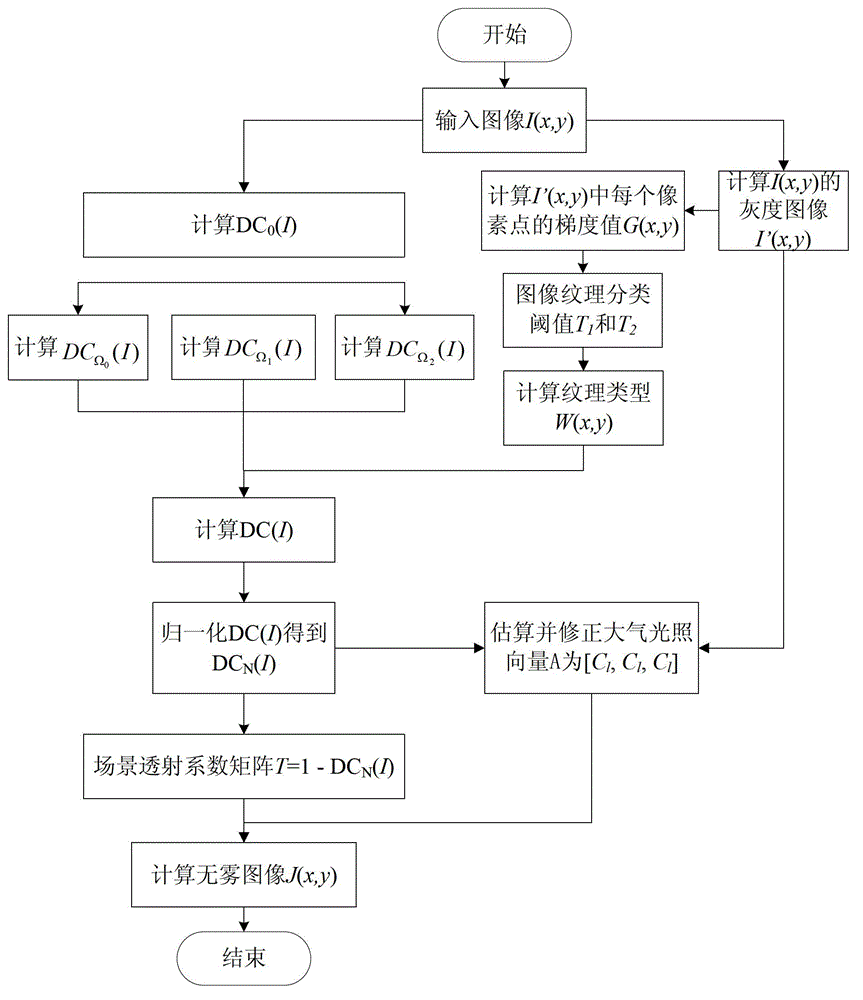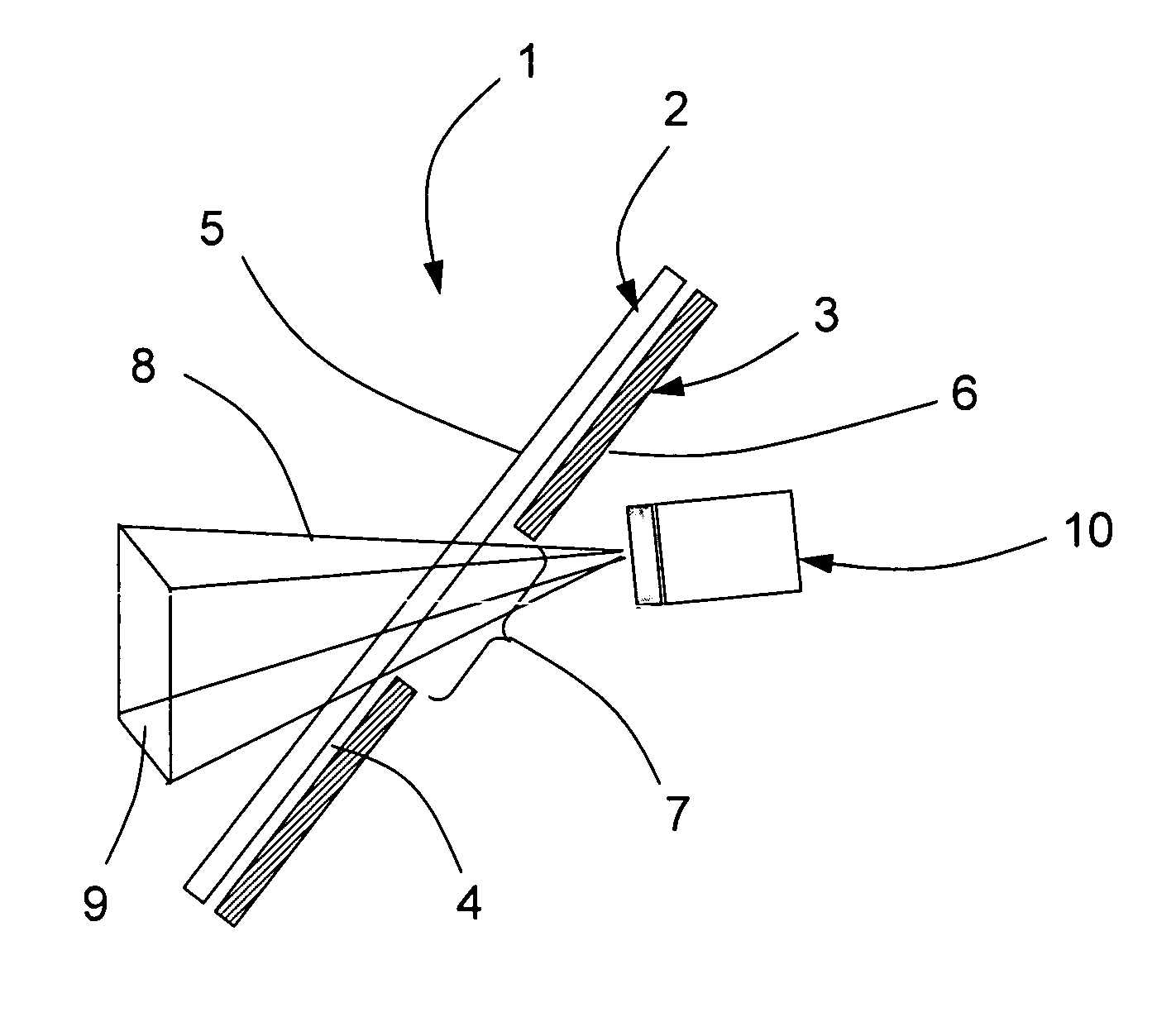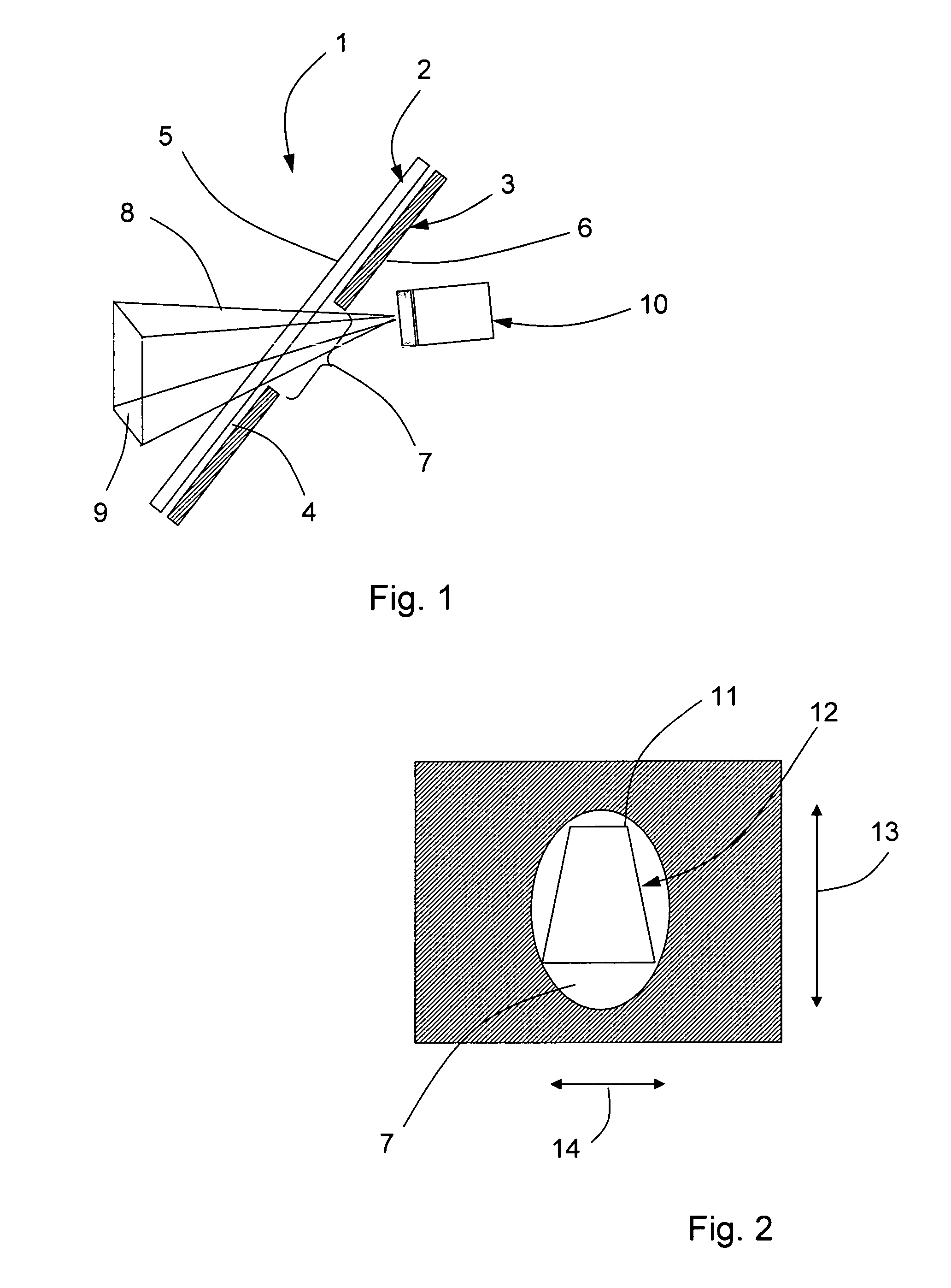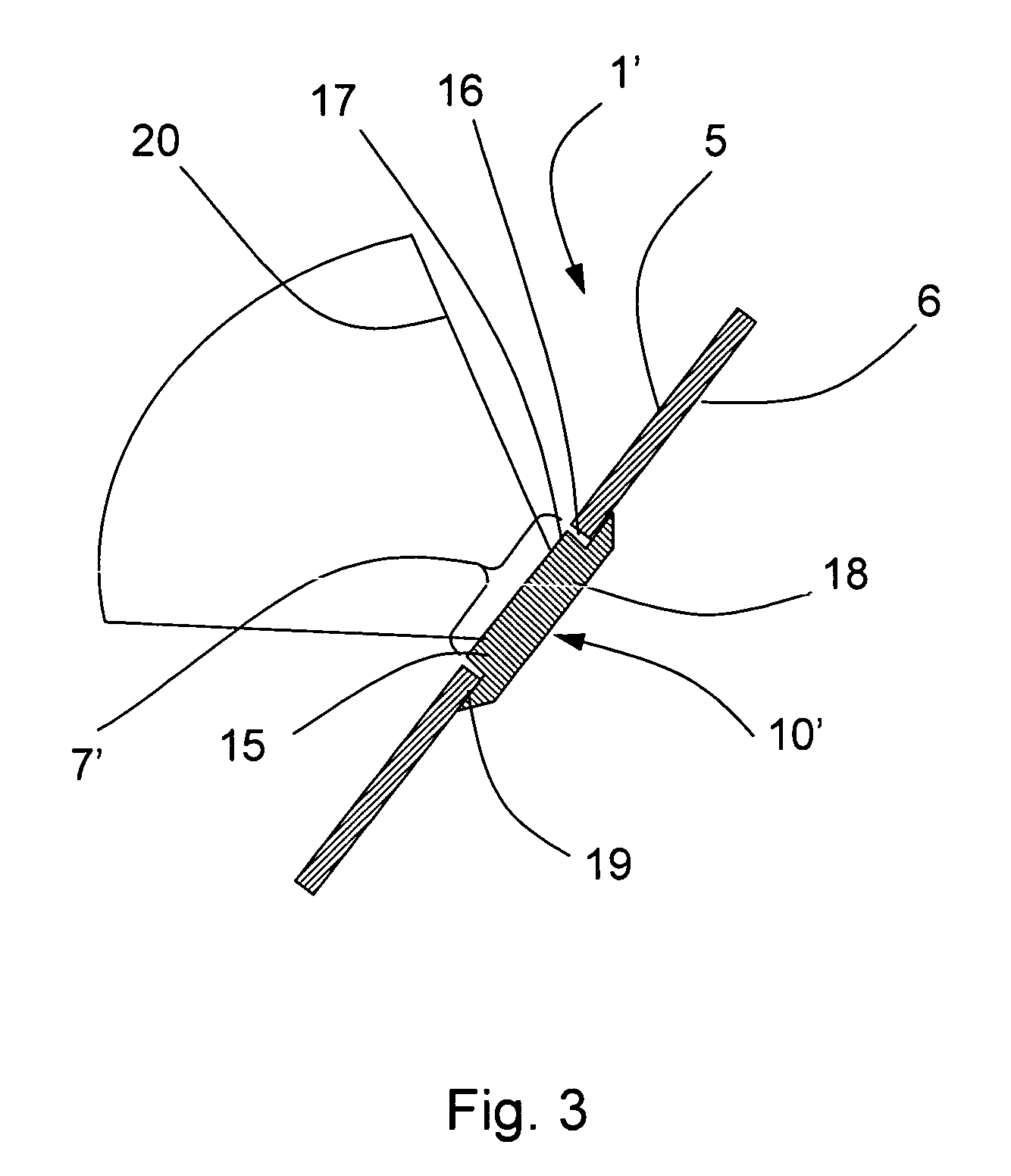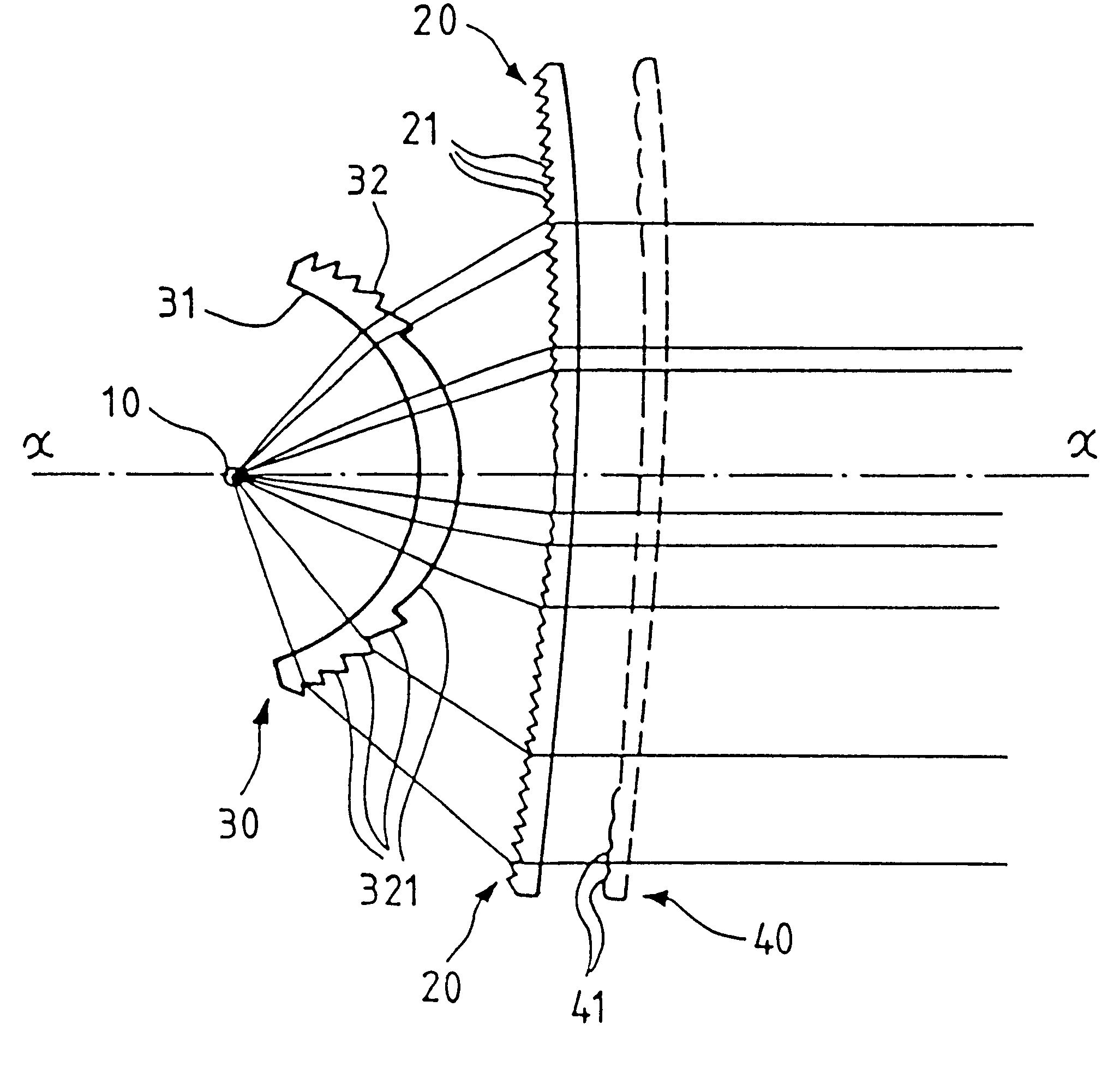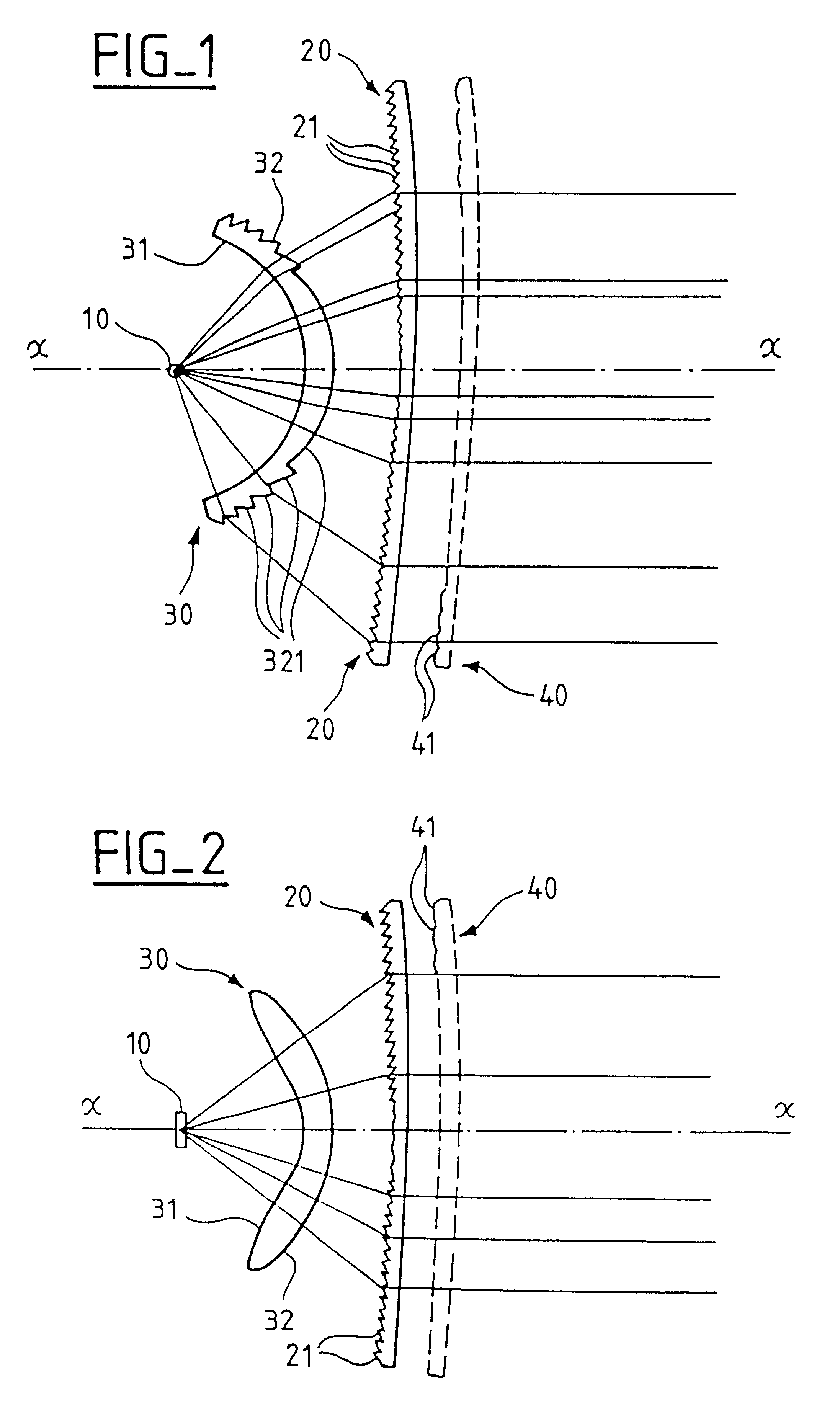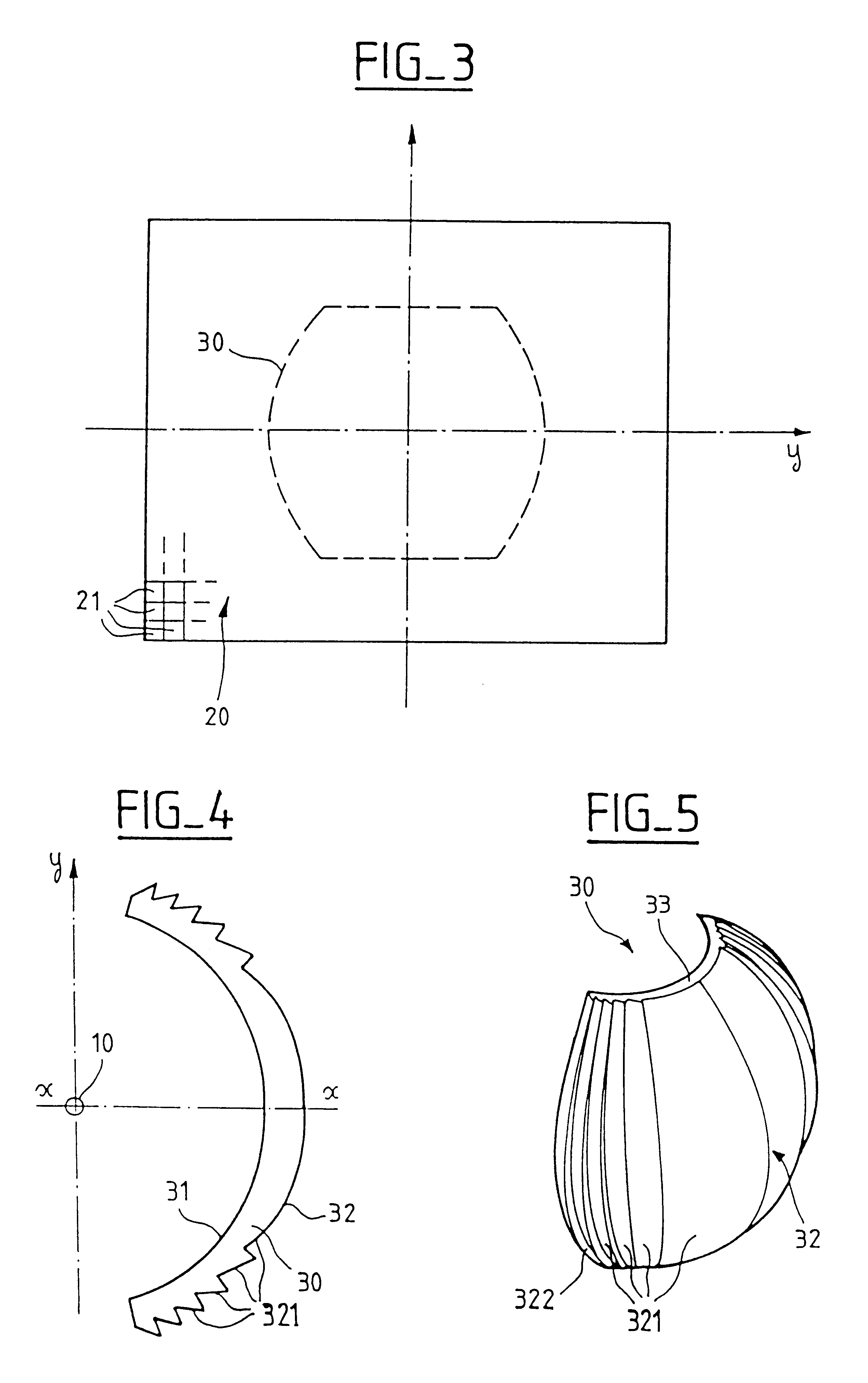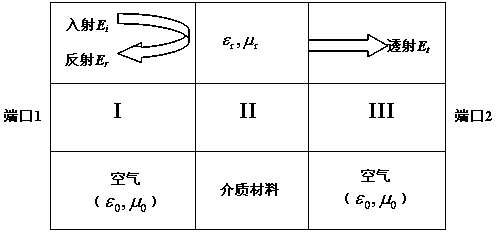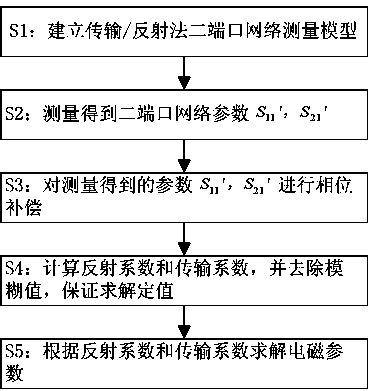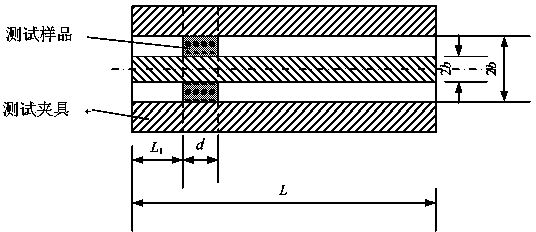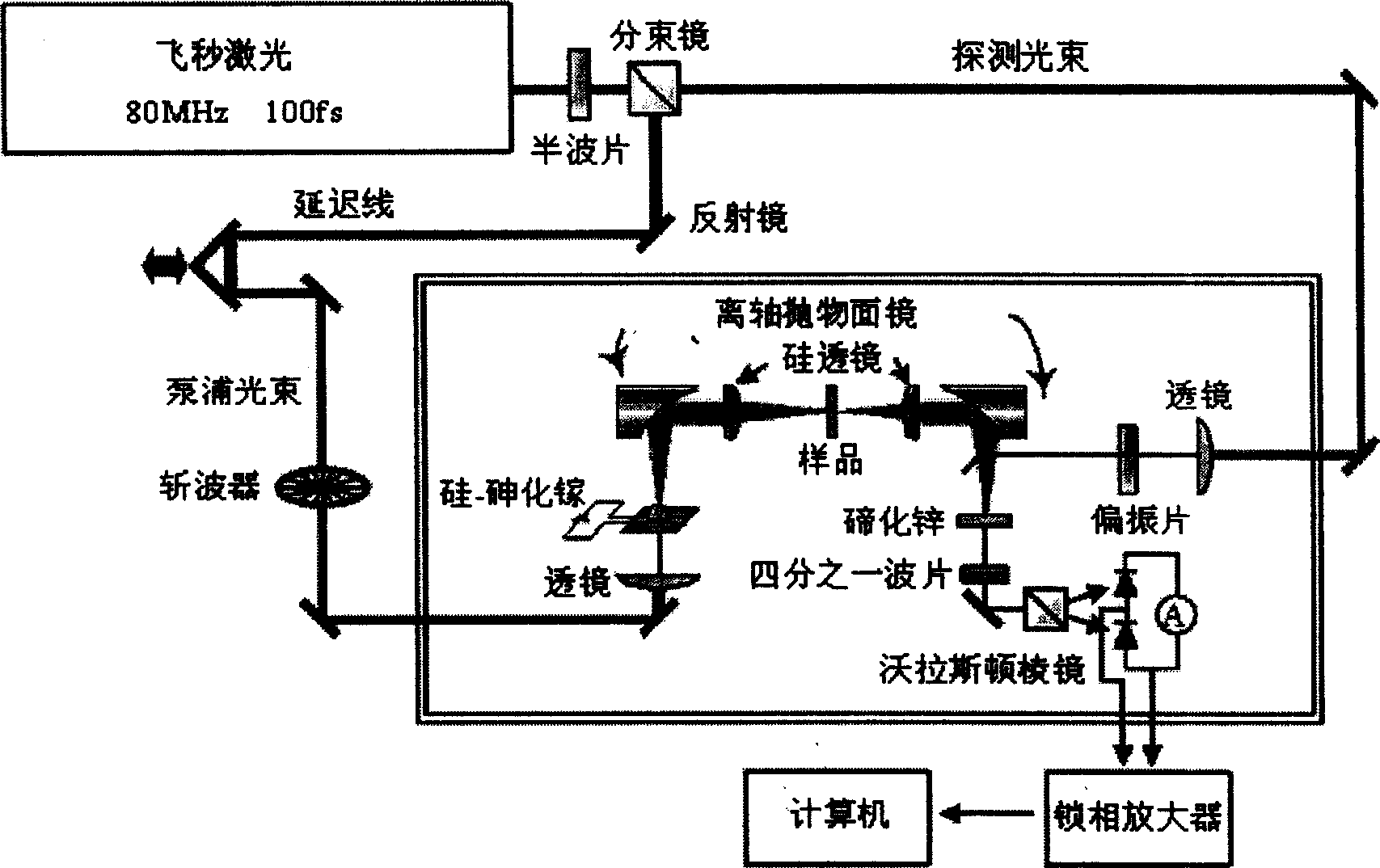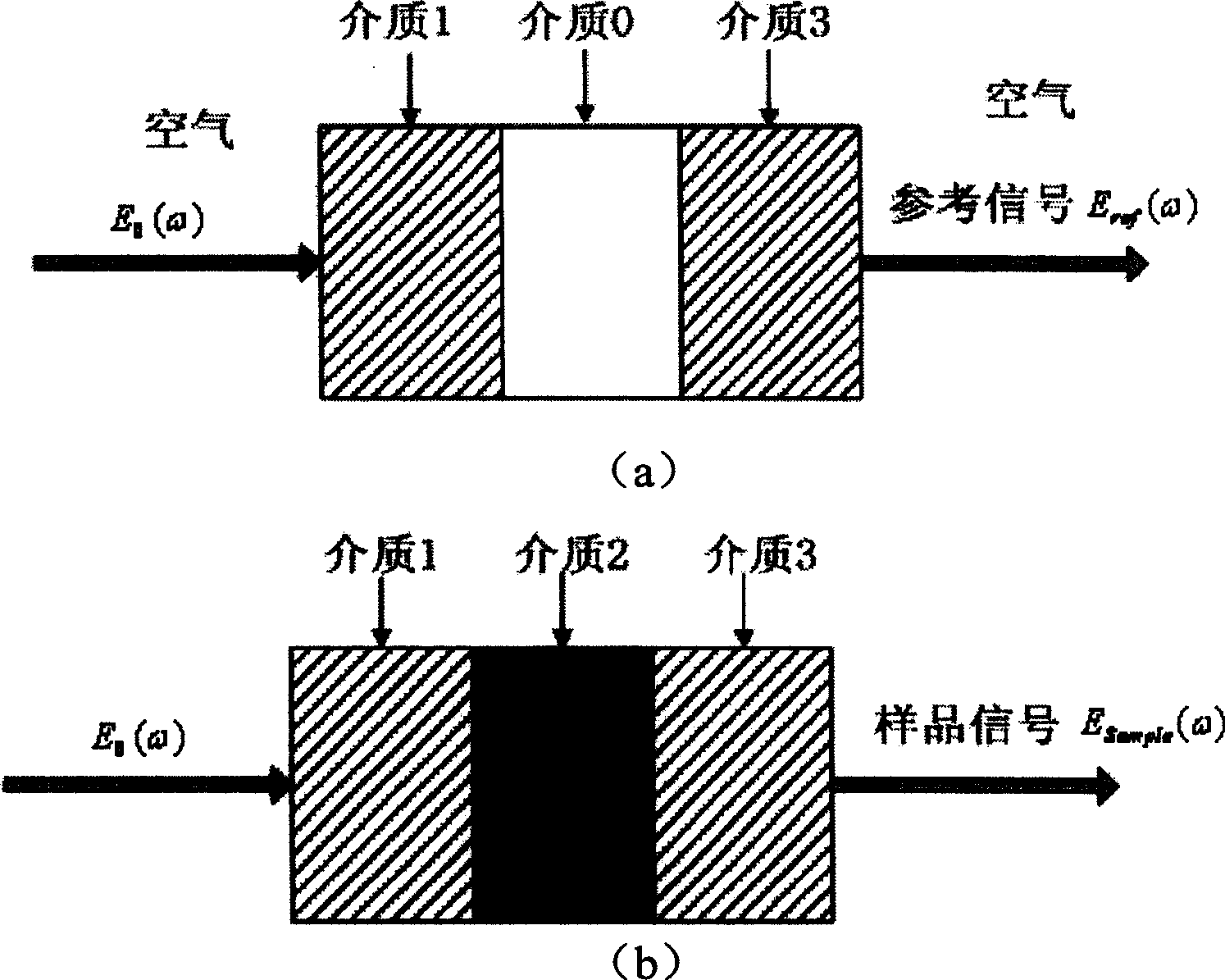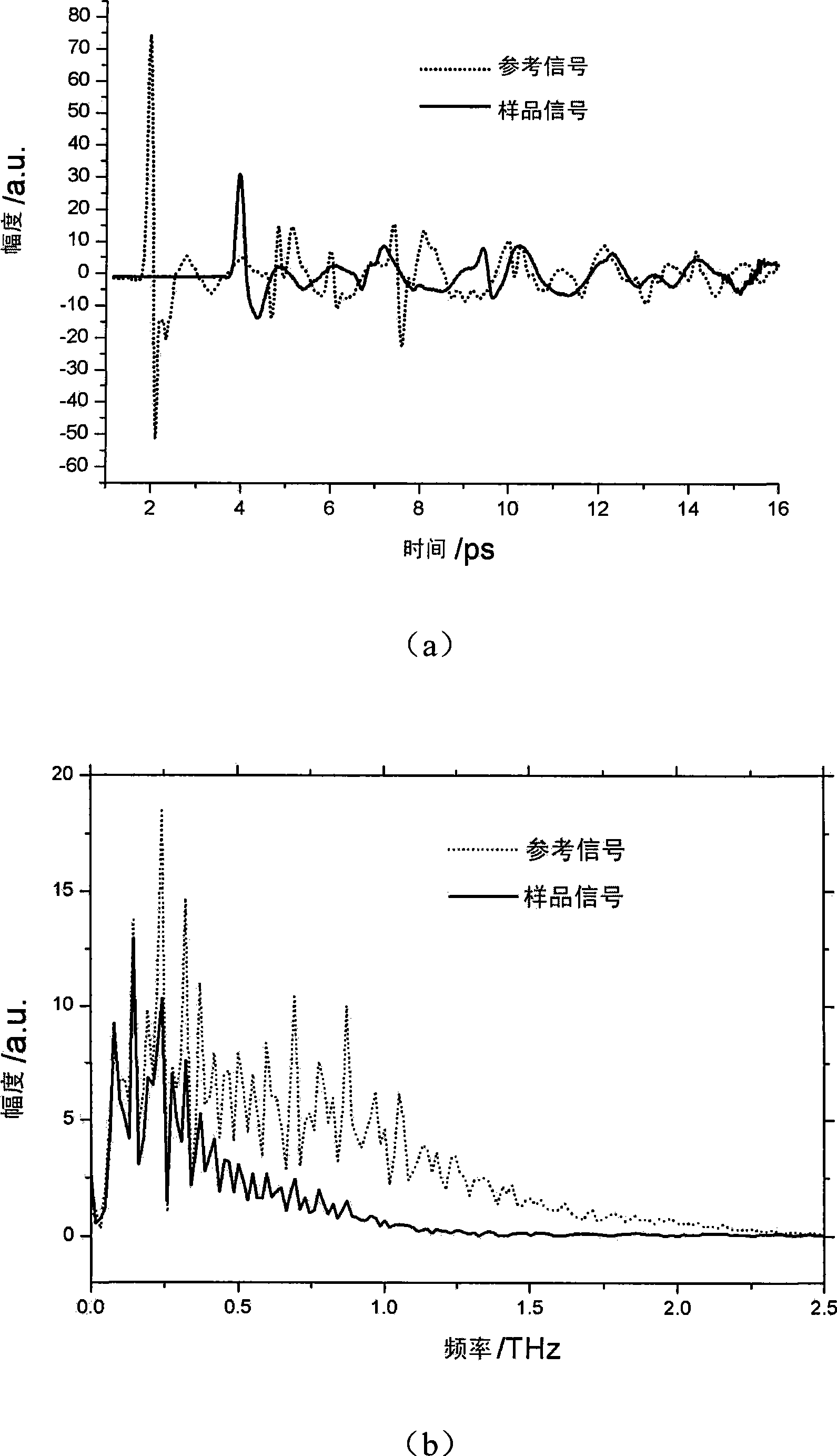Patents
Literature
504 results about "Transmission coefficient" patented technology
Efficacy Topic
Property
Owner
Technical Advancement
Application Domain
Technology Topic
Technology Field Word
Patent Country/Region
Patent Type
Patent Status
Application Year
Inventor
The transmission coefficient is used in physics and electrical engineering when wave propagation in a medium containing discontinuities is considered. A transmission coefficient describes the amplitude, intensity, or total power of a transmitted wave relative to an incident wave.
Preparation method for graphene oxide with high barrier property and polymer nanocomposite film
The invention provides a preparation method for graphene oxide with high barrier property and a polymer nanocomposite film. The preparation method comprises the following steps: graphene oxide is added in solvent for stirring to obtain a colloidal suspension of graphene oxide during the ultrasonic processing at the temperature of 20 to 45 DEG C; a polymer is added in the colloidal suspension of graphene oxide for stirring during the ultrasonic processing at the temperature of 20 to 120 DEG C, until the polymer is completely dissolved to obtain a solution of graphene oxide / polymer; and after air bubbles in the solution of graphene oxide / polymer are removed, the graphene oxide / polymer nanocomposite film is obtained by a casting method or blow molding method. The carbon dioxide transmission coefficient of the prepared nanocomposite film containing graphene oxide is reduced by more than 150 times, and the prepared nanocomposite film containing graphene oxide can be used for packaging food and drugs with higher requirements of barrier property.
Owner:XIAN UNIV OF TECH
Polarization conversion method and polarization converter based on artificial electromagnetic material
InactiveCN101431171AFlexible designReduce reflectionWaveguide type devicesRectangular coordinatesRelative phase
The invention relates to a polarization conversion method based on artificial electromagnetic materials. Electromagnetic waves are controlled to be spread in the artificial electromagnetic materials which constitute a polarization converter by designing the structure of the artificial electromagnetic materials, thereby leading the relation of the transmission coefficients of an electric field in the different directions to achieve the conversion from one incident wave polarization state to another emergent wave polarization state in a plane which is perpendicular to the wave spread direction, the relation of the transmission coefficients needs to be met is as follows: if the spread direction of the electromagnetic waves is defined as an X axis of a three-dimensional rectangular coordinate, the electric field E is decomposed to two electric field components of Ey and Ez which are mutually perpendicular, E is equal to yEy plus zEz, the transmission coefficients of T<y> and T<z> of the electric field in the two directions which pass the materials that constitute the polarization converter meet the following conditions: 1) for the situation of converting the incident waves with any polarization state to the emergent waves with the linear polarization, the absolute value of T<y>\the absolute value of T<z> is equal to p multiplied by the absolute value of Ez\the absolute value of Ey; ang(T<y>) minus ang(T<z>) is equal to plus or minus n pai minus (ang(Ey) minus ang(Ez)); wherein, n is equal to 0, 1, 2,..., p is the tangent value of an included angle theta between the linear polarization direction of the emergent waves and a z axis, p is not less than 0 and not more than 1, ang(T<y>) and ang(T<z>) represent the relative phases of T<y> and T<z>, ang(Ey) and ang(Ez) represent the relative phases of Ey and Ez. The polarization conversion method has the advantages of low cost, low energy consumption, high efficiency and compact structure.
Owner:SOUTHEAST UNIV
Image defogging method based on dark channel information
ActiveCN102968772AReduce computational complexityAvoid handlingImage enhancementPattern recognitionTransmission coefficient
The invention discloses an image defogging method based on dark channel information, belonging to the technical field of image treatment and computer vision. The method disclosed by the invention comprises the following steps of: calculating the minimum value of each pixel of each color channel of an input image via a minimum value filter; then calculating dark channel counting values of the image under different scale parameters and carrying out Gaussian smoothing filter on the dark channel counting value corresponding to each scale parameter; distributing different weight values to the filtered dark channel counting values according to different scale parameters; and carrying out weighted optimization on the dark channel counting values and calculating a transmission coefficient of the scene so that the defogging of the image is realized. The application of the invention can avoid complex soft matting optimization steps and computing complexity of the defogging; the image with high quality can be obtained after the defogging; and the requirement on real-time treatment application can be met.
Owner:UNIV OF ELECTRONICS SCI & TECH OF CHINA
Metasurface capable of improving performance of multi-antenna system and multi-antenna system adopting metasurface
ActiveCN106876982AImprove performanceIncreased matching bandwidthAntenna arraysSimultaneous aerial operationsPrinted circuit boardIntegrated circuit
The invention discloses a metasurface capable of improving performance of a multi-antenna system and the multi-antenna system adopting the metasurface. The metasurface consists of a series of periodically-arranged resonators and a dielectric layer for bearing the resonators; by virtue of configuration of the frequency, reflection coefficient and transmission coefficient of each resonator unit, spacings between the resonators, and heights from the metasurface to multiple antenna units, the cross coupling between the multiple antenna units can be lowered to be close to zero in a specified frequency range; and the matching bandwidth of each antenna unit is improved, and meanwhile, the radiation gain of each antenna unit is improved. The metasurface disclosed by the invention can be applied to a multi-antenna communication system and an antenna array which is formed by any multiple antenna units in principle, and can be applicable to antennas of various kinds of forms; and the metasurface disclosed by the invention can be realized by adopting a conventional printed circuit board process, a flexible PCB process and a microwave passive integrated circuit process, and has wide application prospect.
Owner:XIAN LAMBDA COMM TECH CO LTD
Method for testing content of unfrozen water in frozen earth
The invention provides a method for testing content of unfrozen water in frozen earth. The method is mainly applied to the testing on the content of unfrozen water in natural frozen earth and artificial frozen earth. The method comprises the steps of firstly processing the tested soil sample obtained in place according to the specified specification; subsequently freezing the tested soil sample to the low-temperature range of -30 to -15 DEG C; subsequently heating and melting the tested soil sample by natural convection under the room temperature air condition of 20 to 35 DEG C; recording thechange of the central temperature of the sample with the time; establishing a calculation model reflecting the temperature change process of the frozen earth according to a Newton cooling law; analyzing the convection heat transmission coefficient between air and soil; determining phase change time and phase change temperature so as to further calculate the content of unfrozen water under the frozen state; and finally calculating the characteristic curve of unfrozen water content during the melting process according to the test results. The method is simple and feasible and the testing resultis exact and reliable.
Owner:刘波 +1
Method of identifying materials from multi-energy x-rays
ActiveUS20130110438A1Material becomes quickConvenient statisticsMaterial analysis using wave/particle radiationDigital computer detailsSoft x rayUltrasound attenuation
A calibration method for a device for identifying materials using X-rays, including: a) determining at least one calibration material and, for each calibration material, at least one calibration thickness of this material, b) measuring, for each of the calibration materials and for each of the selected calibration thicknesses, attenuation or transmission coefficients for X radiation, c) calculating statistical parameters from the coefficients, d) determining or calculating, for each calibration material and for each calibration thickness, a presence probability distribution law, as a function of the statistical parameters.
Owner:COMMISSARIAT A LENERGIE ATOMIQUE ET AUX ENERGIES ALTERNATIVES
Method for calibrating smart antenna array in real time
InactiveUS20050239506A1Smart antenna more practicableSimple procedureTransmitters monitoringReceivers monitoringSmart antennaEngineering
The invention discloses a real-time calibration method for a smart antenna array. Said method can calibrate a TDD CDMA system and a FDD CDMA system with separated transmission and reception antenna arrays. The method comprises steps as follow: before installation, a smart antenna array is pre-calibrated to obtain transmission-coefficient matrix between antenna units; after installation at site, said pre-calibrated transmission-coefficient matrix is loaded in a base station to which said smart antenna array connects; during running, every transmission link of said base station transmits a unit calibration signal in sequence in a time-slot, and all other links, except said transmitting link, are in a reception state to receive said unit calibration signal, and said received unit calibration signals are recorded; with said received unit calibration signals and pre-calibrated transmission-coefficient matrix, a ratio of receiving transmission-coefficient matrix of reception links to receiving transmission-coefficient matrix of a reference link is calculated, respectively, and a ratio of transmitting transmission-coefficient matrix of transmission links to transmitting transmission-coefficient matrix of said reference link is calculated, respectively. The method does not need beacon antenna, coupled structure of the antenna array and a special calibration link.
Owner:DATANG MOBILE COMM EQUIP CO LTD
Method and system for sampling at least one antenna
InactiveUS20060082494A1Low costSimple wayWave based measurement systemsSpatial transmit diversityTransmission matrixComputer module
A method for testing at least one antenna having a receiver module and a coupling module which is arranged between the antenna and the receiver module. The antenna and the receiver module are supplied with a noise signal as a test signal by the coupling module. An instantaneous transmission coefficient, which indicates the ratio between a first noise signal (which is passed to the test module via a first path without passing through the at least one antenna) and a second noise signal (which is passed to the test module from the noise source via a second path which passes via the at least one antenna) being determined, and being compared with a reference transmission coefficient, which is stored in a transmission matrix, by a test module. An arrangement for carrying out the method is also provided.
Owner:DAIMLER AG
Method and apparatus for through the wall radar imaging
InactiveUS20120235849A1Reduce componentsCompensation DistortionRadio wave reradiation/reflectionUltra-widebandTime domain
The present invention comprises a method for through the wall radar imaging. An impulse synthetic aperture radar system transmits short, ultra-wideband carrierless microwave pulses at an obstacle behind which a target of interest is located. The return signals are received, stored and analyzed. Portions of the return signals that represent reflections from the obstacle are identified and analyzed in the time domain to estimate the transmission coefficient of the wall, either by estimating wall parameters or by using a novel shift and add procedure. The estimated transmission coefficient is used to filter the received signals to reduce the components of the received signal that are generated by the obstacle, and to compensate for distortion caused by the obstacle in the portions of the transmitted signal that are reflected by the target and returned, through the obstacle, to the radar system.
Owner:TATOIAN JAMES Z +1
Vision Equipment Comprising an Optical Strip with a Controlled Coefficient of Light Transmission
ActiveUS20110240834A1Improve display qualityImprove ease of usePhotometry using reference valueElectrical apparatusMobile vehicleVisual field loss
The invention relates to vision equipment including a translucent optical strip covering all or some of the visual field of the user of the said equipment and a device for projecting images onto the said strip in at least one zone of the visual field of the user, called the image-projection zone. The optical strip includes a plurality of zones covered by a layer of material with a controlled coefficient of light transmission, a zone at least covering the image-projection zone and in that the vision equipment also comprises a means for controlling the coefficient of light transmission capable of receiving status information and of controlling the coefficient of light transmission of each of the zones and independently of one another as a function of the said status information. The invention preferably applies to helmet visor equipment or head-up displays for an aircraft cockpit and to vision equipment in the motor vehicle field.
Owner:BEIJING VOYAGER TECH CO LTD
System and method for microwave imaging using programmable transmission array
ActiveUS20060109174A1Antenna arraysGeological detection using milimetre wavesLight beamTransmission coefficient
A microwave imaging system uses microwave radiation provided by a microwave source to image targets. The system includes an array of antenna elements that are capable of being programmed with a respective transmission coefficient to direct the microwave illumination from the microwave source toward a position on the target. The antenna elements are further capable of being programmed with a respective additional transmission coefficient to receive reflected microwave illumination reflected from the position on the target and direct the reflected microwave illumination towards a microwave receiver. A processor is operable to measure an intensity of the reflected microwave illumination to determine a value of a pixel within an image of the target. Multiple beams can be directed towards the target to obtain corresponding pixel values for use by the processor in constructing the image.
Owner:AGILENT TECH INC
Seismic wave transmission attenuation compensation method and device
ActiveCN104375188ATransmission attenuation energy compensation results are validTransmission attenuation energy compensation results are reliableSeismic signal processingSeismology for water-loggingAttenuation coefficientTime domain
The invention provides a seismic wave transmission attenuation compensation method and device. The method comprises the first step of obtaining vertical component data of vertical seismic data, the second step of obtaining the interval velocity of the vertical seismic data based on first arrival of longitudinal waves, the third step of conducting normalization processing on the vertical component data to obtain a total energy attenuation coefficient sequence, the fourth step of converting the vertical component data in a time domain into seismic data in a depth domain, the fifth step of obtaining a spherical diffusion attenuation coefficient sequence and a stratum absorption attenuation coefficient sequence of the seismic data in the depth domain, and the sixth step of using a result obtained by dividing a total energy attenuation coefficient by the product of the spherical diffusion attenuation coefficient sequence and the stratum absorption attenuation coefficient sequence as a stratum transmission coefficient, obtaining energy compensation for seismic wave transmission attenuation according to the stratum transmission coefficient and conducting transmission attenuation compensation on the seismic data. Through utilization of all embodiments involved in the method, effective and reliable energy compensation for stratum transmission attenuation can be obtained, and the stratum transmission coefficient is used for amplitude recovery processing on the seismic data.
Owner:BC P INC CHINA NAT PETROLEUM CORP +1
Method for calibrating antenna arrays
InactiveUS20100321233A1Low loss of bandwidthImprove accuracyWave based measurement systemsAntennasEngineeringControl circuit
A method is provided for use in calibrating a plurality of antennas comprised in an antenna array and wherein the antenna array comprises at least one gain control circuitry. The method comprises: transmitting one or more pre-defined signals by at least one antenna comprised in the antenna array; receiving at one or more of the antennas comprised in the antenna array, a signal derived from a corresponding pre-defined signal transmitted by the at least one antenna; and for each of the one or more antennas, detecting whether there is any difference between the corresponding one or more pre-defined signals transmitted thereto and the respective one or more signals received thereat, and if in the affirmative, applying the detected differences in a process of calibrating the one or more antennas comprised in the antenna array, and wherein the process of calibrating the one or more antennas comprised in the antenna array comprises a step of estimating a ratio of complex transmission coefficients for at least two states of the at least one gain control circuitry.
Owner:ALVARION
Liquid or solid powder substance dielectric coefficient test device, and the test and calculation method
InactiveCN101078692ASimple measurement systemWith broadband measurementsTesting dielectric strengthMaterial analysis using microwave meansDielectricChannel power
The invention relates to a testing device for dielectric coefficient of liquid or solid powder matter and testing and calculating methods, characterized in that in the device microwave signal source (1) is connected to the inputting end of slotting coaxial measurement segment (4) by circulator (2) and double directional coupler (3); after it passes through tested matter reflecting wave Pr and transmitting wave Pt are generated; reflecting wave Pr is transferred to matched load (6) by the double directional coupler (3) and the circulator (2); transmitting wave Pt is sent to the matched load (6) by directional coupler (5); incident wave Pi and reflecting wave Pr coupled by the double directional coupler (3) and transmitting wave Pt coupled by directional coupler (5) sent to double-channel power meter (7) respectively at two ends of slotting coaxial measurement segment (4) are sent to computer (8) finally so as to form an integration. It is tested and calculated by the following method. Tested matter is set in the measuring container (12) and amplitudes of reflection coefficient S11 and transmission coefficient S21 are read in computer (8) as testing value for use. Based on testing result dielectric coefficient of tested matter is searched by finite value algorithm combined with genetic algorithm.
Owner:SICHUAN UNIV
Multi-layered biaxial stretch blow molded bottle and method for production thereof
InactiveUS7666486B2Improve propertiesExcellent oxygen barrier propertiesEnvelopes/bags making machinerySynthetic resin layered productsBlow moldingEngineering
A multi-layer biaxially stretched blow bottle having a 3-layer structure of PET / nylon MXD6 / PET or a 5-layer structure of PET / nylon MXD6 / PET / nylon MXD6 / PET, wherein the oxygen gas transmission coefficient of the nylon MXD6 layer is at most 6.0×10−14 cm3·cm / cm2·sec·cmHg as measured under conditions of a temperature of 23° C. and a relative humidity of 80%, and a production process of the bottle by biaxial stretch blow molding at a low stretching temperature and high draw ratios.
Owner:KUREHA KAGAKU KOGYO KK
System and method for microwave imaging using programmable transmission array
ActiveUS7298318B2Antenna arraysGeological detection using milimetre wavesLight beamTransmission coefficient
Owner:AGILENT TECH INC
Method for acquiring a transmission coefficient of a source-load equivariant symmetrical power in an AC main.
InactiveCN104995810AAc network voltage adjustmentInformation technology support systemElectric power transmissionFunctional Relationship
The present invention belongs to the field of electric power engineering, and relates to a method for acquiring a transmission coefficient of a source-load equivariant symmetrical power in an AC main. An linear functional relationship of a transmission power of a lossy branch related to a node voltage phase is established according to a nonlinear function of a transmission power of a branch, parameters of the AC main and operating characteristics, and a symmetrical linear functional relationship of node power of a power source and a load related to the node voltage phase is established by the combination of the node power of the power source and the load, hereby, a symmetrical linear functional relationship of the node voltage phase related to the node power of the power source and the load is established, and a symmetrical power transmission coefficient of the node power of the power source and the load to the transmission power of the lossy branch is acquired by the combination of the linear functional relationship when the node power of the power soure and the load in an equivariant state, thereby, the substrantive characteristic is acquired, wherein, the substrantive characteristic has an only result, follows a circuit rule, adapts to the node power of the power source and the load in an equivariant state, and really represents the power transmission from the node power to the branch transmission power in the practical situation that a loss exists in the AC main.
Owner:SHENZHEN UNIV
Method and apparatus for efficient measurement of reciprocal multiport devices in vector network analysis
InactiveUS6396285B1Resistance/reactance/impedenceTransmissionActive measurementTransmission coefficient
Method and apparatus to determine scattering coefficients for a device under test (DUT) using a vector network analyzer (VNA) is disclosed. Traditionally, for a DUT having P ports, all combinations of reflective and transmission coefficients are measured and calculated. This is true even for reciprocal devices where S.sub.ijA =S.sub.jiA because, during the measurement, the source and load matches vary. However, the present invention teaches that, for reciprocal devices, only one of the two transmission coefficients between a first port and a second port need be measured. Under the inventive technique, error terms are removed from the measured scattering coefficients. Then, the source and the load matches may be normalized to a normalization match value. The normalization process removes the differences of the source and the load matches. Accordingly, for reciprocal devices, only one of two reciprocal transmission coefficients need be measured to determine the transmission coefficients for both directions between the first and the second port. The reduction of the measurement requirement reduces the amount of hardware required for a VNA, time required to characterize a DUT, or both.
Owner:AGILENT TECH INC
System and method for equalizing transmission characteristics in wavelength division multiplexing optical communication system
InactiveUS6847788B2Reduce the burden onImprove transmission qualityWavelength-division multiplex systemsCoupling light guidesSignal-to-noise ratio (imaging)Communications system
In a WDM optical communication system, at least one optical tunable filter is placed along an optical fiber provided as an optical transmission path between a transmitting station and a receiving station. The optical tunable filter has a controllable transmission factor versus wavelength characteristic. In the receiving station, the transmission characteristics (for example, optical signal to noise ratios and Q factors) for optical signals of different wavelengths propagated over the optical fiber are measured. The measurements are sent to the transmitting station. The transmitting station then properly controls both the amounts of pre-emphasis in the transmitting station and the wavelength characteristic of the optical filter on the basis of the measurements to thereby equalize the transmission characteristics for the optical signals. In this case, it is also possible to calculate the optimum proportion of allocation of control between the pre-emphasis control and the filter control and then perform the pre-emphasis control and the filter control according to the optimum proportion of allocation. In this control, the main controller may be either the transmitting station or the receiving station.
Owner:FUJITSU LTD
Array antenna channel calibration system for plane wave simulator
ActiveCN109541330ACalibration is flexible and applicableSave calibration timeElectromagentic field characteristicsAntenna radiation diagramsPhase differenceTransmission coefficient
The invention discloses an array antenna channel calibration system for a plane wave simulator, which comprises a plane wave simulator array antenna comprising multiple sub units, a regulating networkfor controlling the amplitude and the phase of each sub unit, a calibration probe antenna or probe array with a fixed and known position, a vector network analyzer, a connector cable and other accessories. The calibration system adopts a vector superposition principle, through control on the phase of the tested array antenna channel, in a far field area of the antenna from the two-dimensional array antenna aperture unit channel, a transmission coefficient (S21) value when the phase of the tested array antenna channel changes is acquired, and thus, the channel amplitude and phase difference isanalyzed. The channel calibration system has a wide application range and can be used for consistency calibration on the unit channels of the array antenna, especially for the unit channel calibration of the planar wave generator array antenna.
Owner:BEIHANG UNIV
Method for calibrating smart antenna array in real time
InactiveUS7098847B2Smart antenna more practicableSimple procedureTransmitters monitoringReceivers monitoringSmart antennaEngineering
A real-time calibration method for a smart antenna array. The method includes: before installation, a smart antenna array is pre-calibrated to obtain transmission-coefficient matrix between antenna units; after installation at site, the pre-calibrated transmission-coefficient matrix is loaded in a base station to which the smart antenna array connects; during running, every transmission link of the base station transmits a unit calibration signal in sequence in a time-slot, and all other links, except the transmitting link, are in a reception state to receive the unit calibration signal, and the received unit calibration signals are recorded; with the received unit calibration signals and pre-calibrated transmission-coefficient matrix, the smart antenna array is calibrated. The method does not need beacon antenna, coupled structure of the antenna array and a special calibration link.
Owner:DATANG MOBILE COMM EQUIP CO LTD
Visibility detecting method based on high definition video
InactiveCN102162788AReduce riskEnsure traffic safetyImage analysisColor/spectral properties measurementsHigh definition tvExtinction
The invention discloses a visibility detecting method based on a high definition video (2592*1936) to realize all-weather visibility detection. The detection method comprises the followings steps: step 1, collecting a high definition image; step 2, calibrating the image, and calculating the distance D (x) of a tested object; step 3, calculating the radiance value A of the global atmosphere of the image; step 4, calculating the transmission coefficient of light t (x); step 5, calculating atmospheric extinction coefficient and visibility; and step 6, performing visibility alarming. Through the method provided by the invention, the visibility situation of a road can be reported for the traffic administrative department timely and effectively, alarm is issued, the driving dangers in severe weather such as heavy fog, rain and snow can be reduced, and the traffic safety can be ensured.
Owner:NORTH CHINA UNIVERSITY OF TECHNOLOGY
Pleietrepie counter current falling film evaporator of organic solvent recycle
InactiveCN101229449AControl circulation volumePromote circulationMultiple-effect evaporationSteam condensationGas phase
The invention provides a multiple effective reflux falling film evaporation system used for recycling organic solvent. The invention is mainly used for recycling the solvent in water solution of the organic solvent during the concentration production process of plant extractions in food industry and biopharmaceutical industry. The invention adopts falling film evaporators with high heat transmission coefficient and small terminal temperature difference to form the multiple effective evaporation system. Each evaporator is provided with a solution circulating pump which increases down-flow quantity in a heat transfer tube and avoids dry wall of a heat transfer surface and enhances heat transferring, thus having great evaporation ability and high efficiency. The condensate of each evaporator enters into a corresponding condensate tank respectively and is discharged by the pump and recycled. A gas-phase communicating pipe is arranged between the condensate tank and a gas-liquid separator, which guarantees the discharge of noncondensable gas under vacuum operation condition, thus being beneficial for improving condensing and heat transferring efficiency. The invention is a new technique, new technology and new device used in concentration process of the extractions of the organic solvent and used for recycling solvent, which has high recycling rate, little energy consumption and convenient operation and can use a vacuum low temperature evaporation concentration production device in continuous and intermittent production operation.
Owner:DALIAN UNIV OF TECH
Adaptive image defogging method based on textures
ActiveCN102982513AControl saturationGuaranteed brightnessImage enhancementImaging processingImaging quality
The invention discloses an adaptive image defogging method based on textures and belongs to the technical field of imaging processing and computer vision. Corresponding scene transmission coefficients are calculated through carrying out texture classification on an input image and combining texture classification results with dark channel values with different scales to realize quick image defogging based on texture adaption. The adaptive image defogging method has the beneficial effects that the complicated soft cutout optimization step can be avoided, the algorithm complexity of defogging by using an He method is reduced, the Halo phenomenon easily caused after defogging is avoided, and the saturation of a defogged image can be better controlled; meanwhile, the calculation on an atmospheric light vector is corrected to ensure the brightness of the defogged image; and the adaptive image defogging method is high in processing speed and high in defogged image quality and can satisfy the demands of real-time processing application.
Owner:UNIV OF ELECTRONICS SCI & TECH OF CHINA
Glass pane having a detector for electromagnetic radiation
ActiveUS20110027515A1Easy to detectEase of evaluationRadiation pyrometryPhotometryLight beamEngineering
A glass pane (1) has an inner side (6) and an outer side (5) and a detector (10) located on the inner side (6) for electromagnetic radiation which, coming from the outer side (5), passes through the glass pane (1) and can be detected by means of the detector. The glass pane (1) is a composite pane, in particular a glass pane of composite safety glass of a motor vehicle, with an inner pane (3) and an outer pane (2), which are joined to each other with the aid of a film (4) arranged between the inner pane (3) and the outer pane (2). In order also to obtain a sufficient intensity of the electromagnetic radiation passing through the glass pane (1) and detectable by the detector (10) in glass panes with a small transmission coefficient, it is proposed that the beam path of the electromagnetic radiation leading to the detector (10) penetrate only the material of the outer pane (2) and pass through the plane of the inner pane (3) in the region of a continuous hole (7).
Owner:SAINT-GOBAIN GLASS FRANCE
Indicator light with uniform illuminating surface for a motor vehicle
An indicator light comprises a source, an optical plate adapted to straighten out the incident light towards an average direction generally parallel to an optical axis, and a flux-distributing and recuperating cup interposed between the source and the plate in order to distribute the light over the inner surface of the plate. According to the invention, the optical plate has a height and a width of the same order of magnitude and possesses optical configurations having varied coefficients of transmission of the light, and the cup provides a given distribution of the light, both in the horizontal direction and in the vertical direction, which takes account of said coefficients. As a result, an illumination is obtained at the exit from said plate which is essentially constant in the horizontal direction as well as in the vertical direction.
Owner:VALEO VISION SA
Improved transmission/reflection method for measuring electromagnetic parameters of material
InactiveCN104330643AAvoid multi-valued problemsHigh precisionResistance/reactance/impedenceMagnetic property measurementsTransmission coefficientPhase compensation
The invention provides an improved transmission / reflection method for measuring electromagnetic parameters of a material. The method comprises the steps of: performing phase compensation on parameters S11' and S21' measured by a vector network analyzer so as to obtain more precise parameters S11 and S21; calculating to obtain values of complex permeability mur and complex dielectric constant epsilonr of a testing sample by utilizing the transmission / reflection method and by virtue of the obtained and compensated measuring parameters S11 and S21. Meanwhile, the problem of fuzzy points is met in the method of measuring the electromagnetic parameters based on the transmission / reflection method, the fuzzy points of a reflection coefficient and a transmission coefficient are resolved by adopting a method of judging an analogue value by data, a reflection coefficient is ensured to be obtained, and a multi-value problem is avoided.
Owner:SHANGHAI INST OF MEASUREMENT & TESTING TECH
Planar phased array antenna fast measurement and automatic calibration method
InactiveCN107064887AImprove test efficiencySolve the large amount of dataWave based measurement systemsFast measurementTransmission coefficient
The present invention provides a planar phased array antenna fast measurement and automatic calibration method. The method includes the following steps that: the patterns, amplitudes, phases and beam widths of measured phased array antenna units and a test probe are obtained through a near-field antenna test; the probe is arranged in front of a measured phased array antenna, one of channels in the measured phased array antenna is opened in turns with the other channels closed, the coefficients of transmission between each of the channels and the probe are tested; the transmission coefficient matrix of the whole array plane of the phased array antenna can be obtained; the initial phases of the channels are calculated through using relative position relationships between the probe and the measured phased array antenna units; and if the fluctuation of the initial phase of the array plane is larger than half of the minimum phase shift quantity of phase shifters used by the array antenna, the initial phase is calibrated. The method of the invention has the advantages of short testing time and high test precision, and can not only be used for the rapid amplitude-phase calibration of a planar phased array antenna, but also can be used for the automatic detection of the amplitude of the channel units of the antenna and the prediction of the far-field pattern of the planar phased array antenna.
Owner:NO 20 RES INST OF CHINA ELECTRONICS TECH GRP
Method for measuring insertion loss/ transmission coefficient of underwater sound passive material based on time reversal focusing
InactiveCN102590349AReduce distractionsSolving Insertion Loss Measurement ProblemsAnalysing solids using sonic/ultrasonic/infrasonic wavesHydrophoneTest sample
The invention discloses a method for measuring an insertion loss / transmission coefficient of an underwater sound passive material based on time reversal focusing. The method comprises the following steps of: 1) generating time reversal transmitting signals; 2) acquiring direct signals in the absence of a testing sample, transmitting the time reversal signals generated in 1) by adopting a transmitting-receiving transducer, and recording the direct signals pi in the absence of the testing sample by adopting a hydrophone (generally a transmitting-receiving combined transducer is used as the hydrophone) placed nearby the testing sample; 3) acquiring transmission signals in the presence of the testing sample: putting a passive material sample to be detected at a preset position, transmitting the same time reversal transmitting signals as those in the 2) again by adopting the transmitting-receiving transducer, and recording the signals pt in the presence of the testing sample by the hydrophone; and 4) calculating insertion loss: acquiring the required test sample parameter calculation result by using a transmitting coefficient / insertion loss calculation formula. According to the method for measuring the transmitting coefficient / insertion loss of medium and low frequency bands, errors can be effectively reduced and the precision is improved; therefore, the method is suitable for full-freqeuncy-band measurement.
Owner:CSSC SYST ENG RES INST +1
Accurate measurement method for for optical parameter of edible oil by terahertz time-domain spectrum
InactiveCN101419157AHigh measurement accuracyMaterial analysis by optical meansTesting foodTime domainRefractive index
The invention discloses a method for accurately determining optical parameters of edible oil by utilizing a terahertz time-domain spectroscopy. By utilizing a transmission terahertz time-domain spectroscopy (THz-TDS) device, a THz time-domain spectroscopy of a sample cell without a sample is measured as a reference signal, and then a THz time-domain spectroscopy of the sample cell with the sample is measured as a sample signal; and a measurement value of a transmission coefficient of the sample in a terahertz waveband can be obtained by evaluating the ratio of Fourier transforms of the sample signal to the reference signal, then a three-layer transmission function model containing a container is utilized, and a Nelder-Mead search method and a trust region smoothing method are used to fit the measurement value of the transmission coefficient of the sample in the terahertz waveband, thereby accurately determining the refractive index and the absorption coefficient of the edible oil in a corresponding terahertz waveband. The method fully considers multiple reflection effect during the propagation of THz wave in a plurality of layers of media, considers the influence of noise and measurement error, effectively improves the measurement accuracy of the optical parameters of the edible oil, and helps to apply a THz-TDS technology to quantitative detection occasions such as component analysis of the edible oil and so on.
Owner:CHINA JILIANG UNIV
Features
- R&D
- Intellectual Property
- Life Sciences
- Materials
- Tech Scout
Why Patsnap Eureka
- Unparalleled Data Quality
- Higher Quality Content
- 60% Fewer Hallucinations
Social media
Patsnap Eureka Blog
Learn More Browse by: Latest US Patents, China's latest patents, Technical Efficacy Thesaurus, Application Domain, Technology Topic, Popular Technical Reports.
© 2025 PatSnap. All rights reserved.Legal|Privacy policy|Modern Slavery Act Transparency Statement|Sitemap|About US| Contact US: help@patsnap.com
